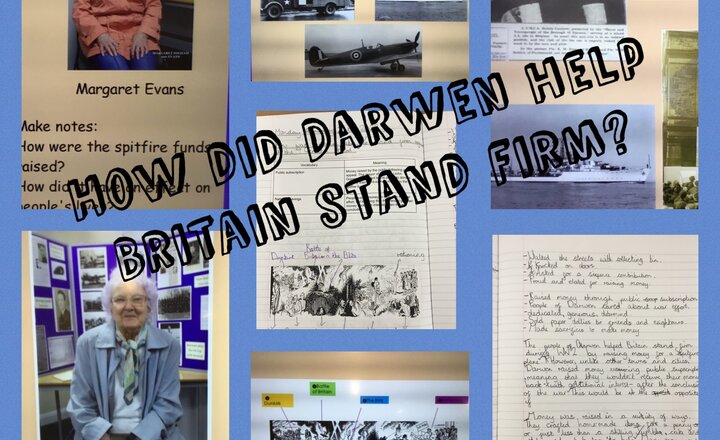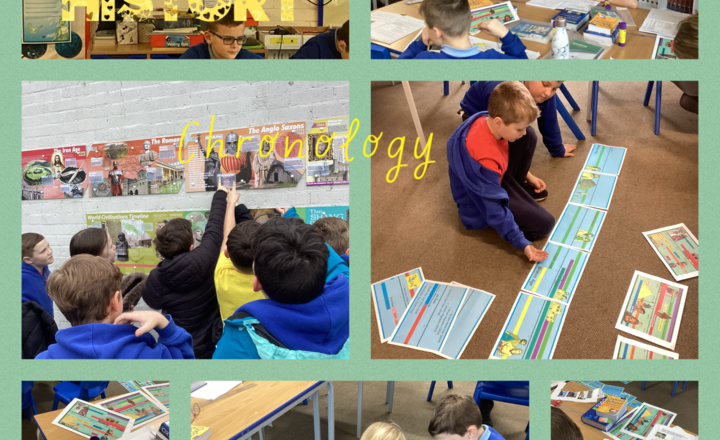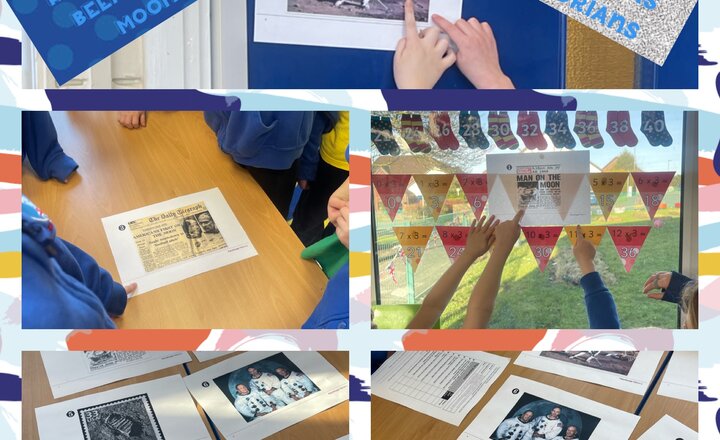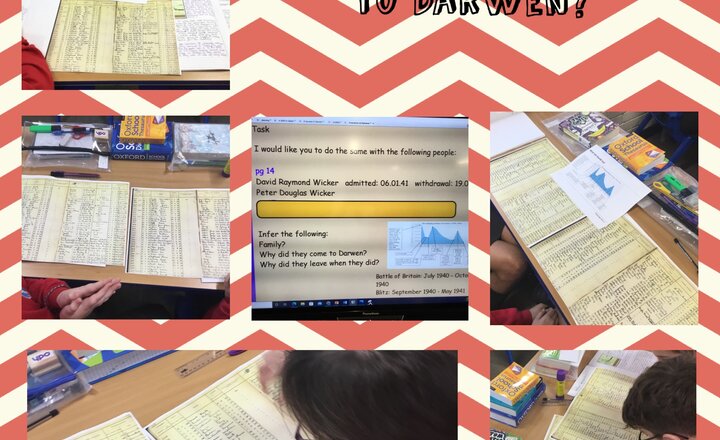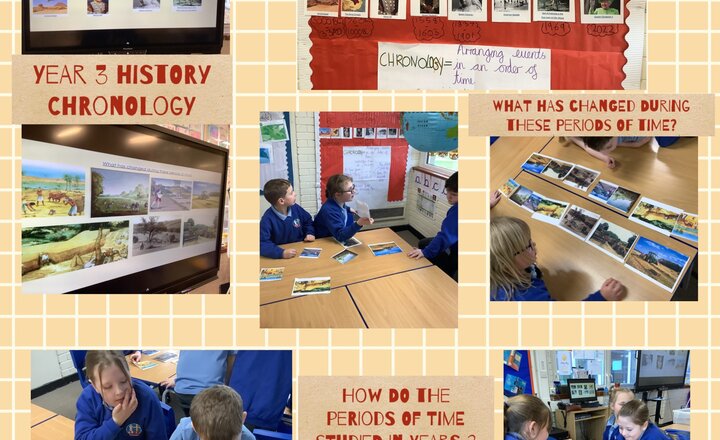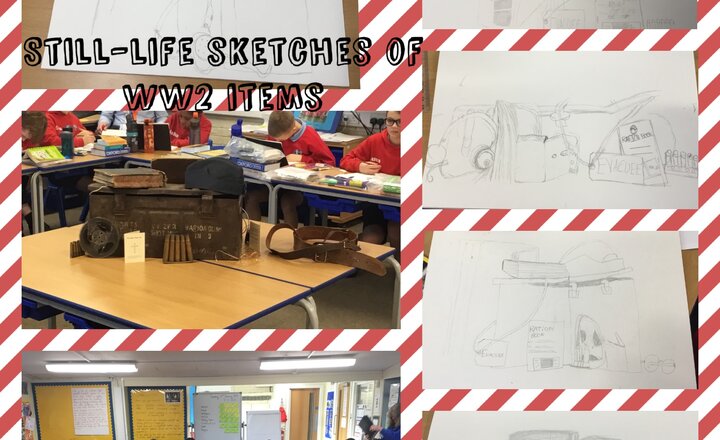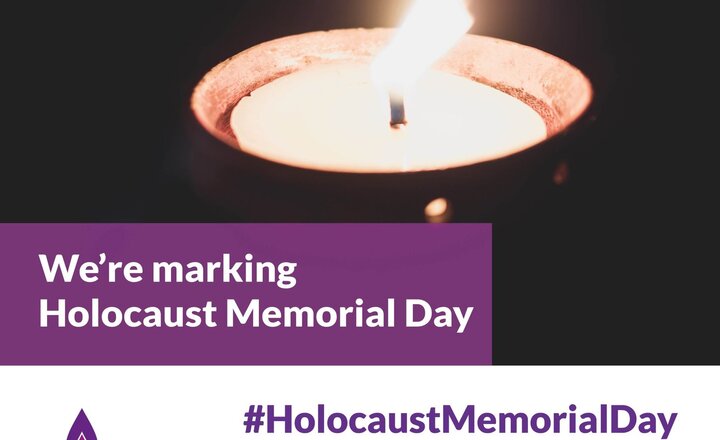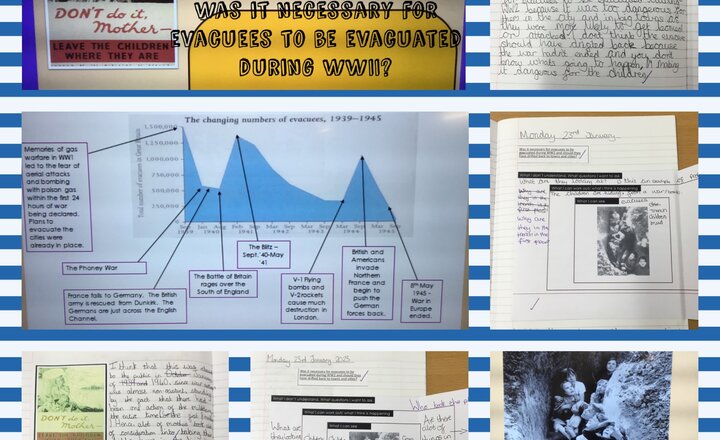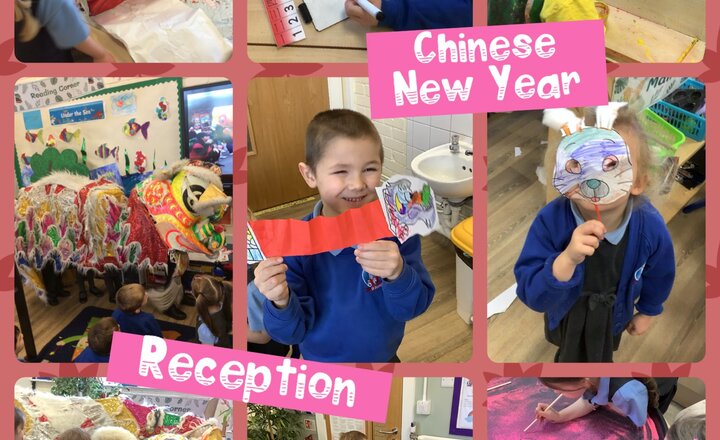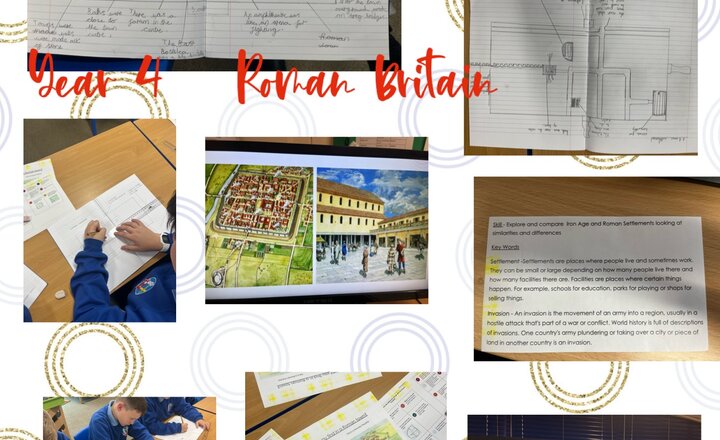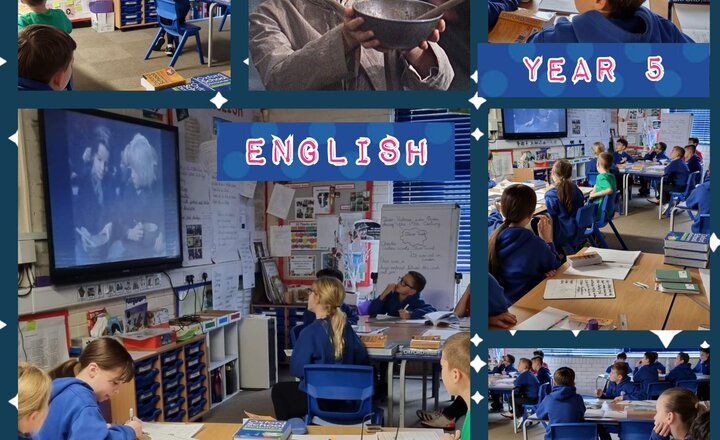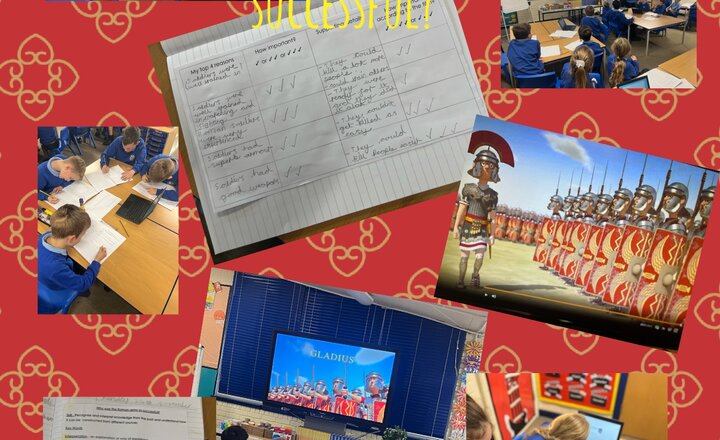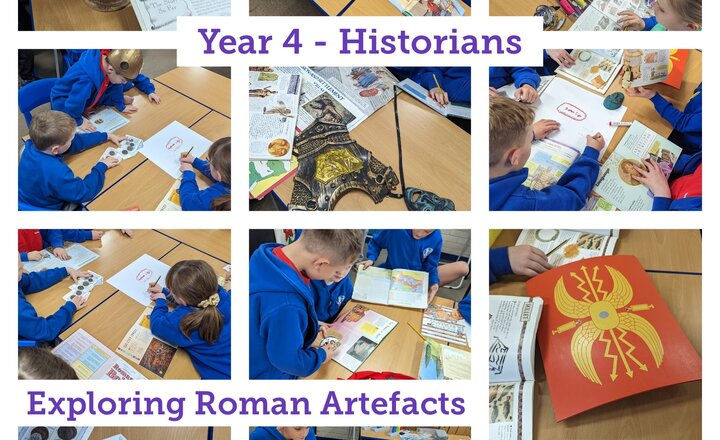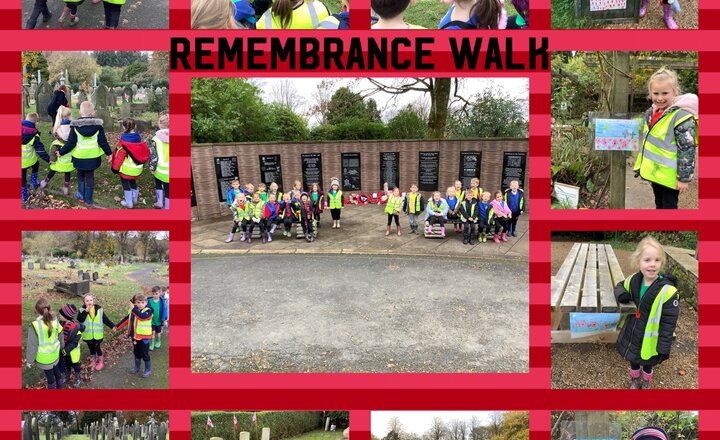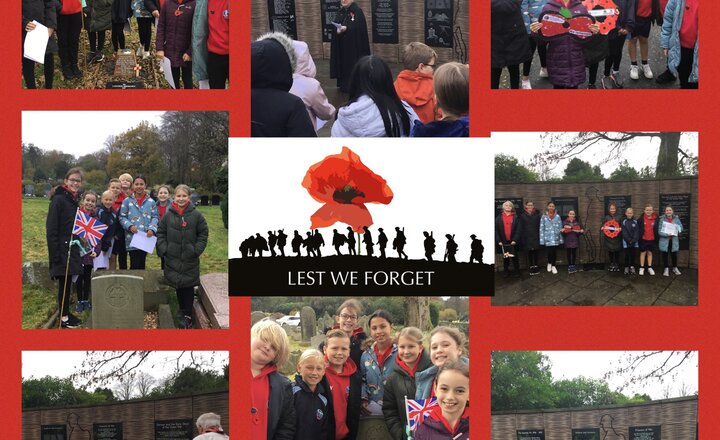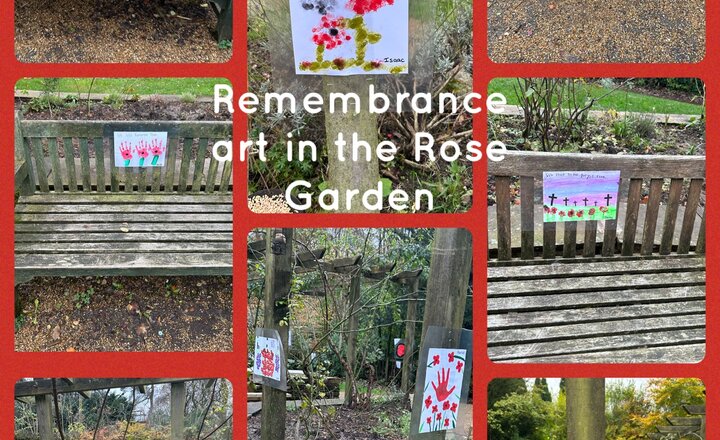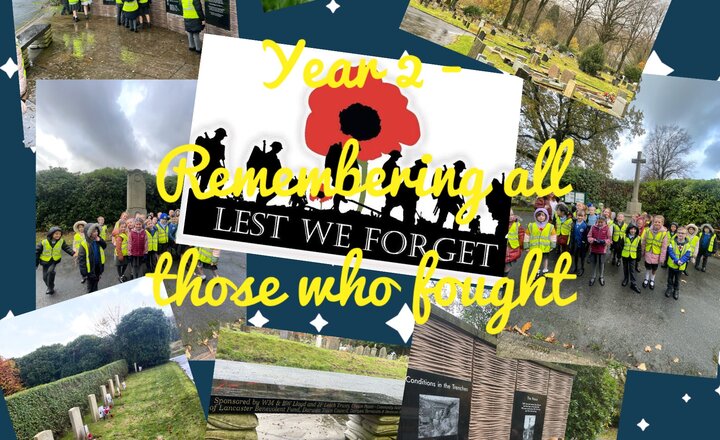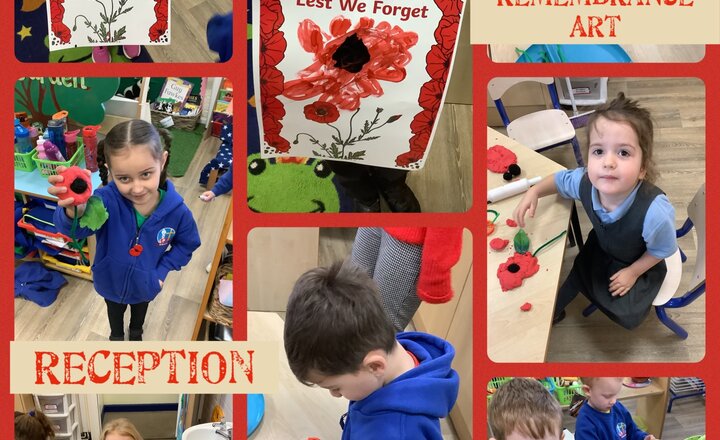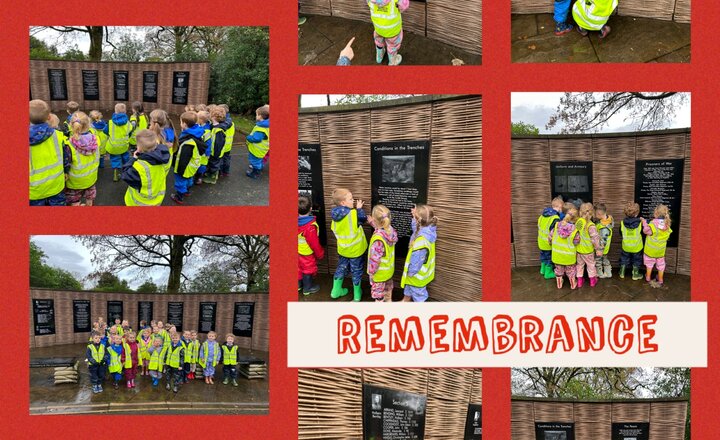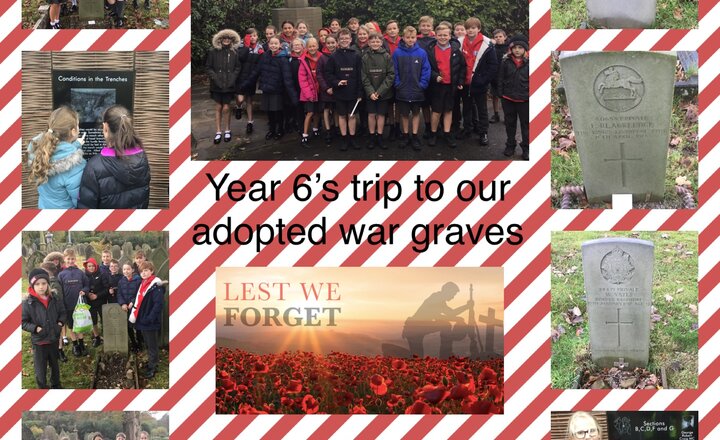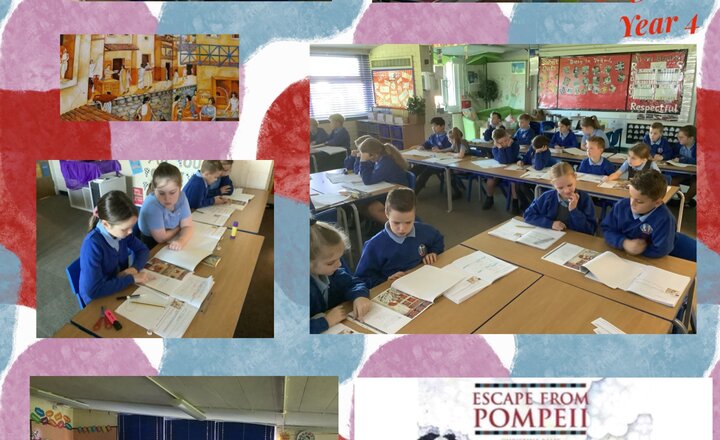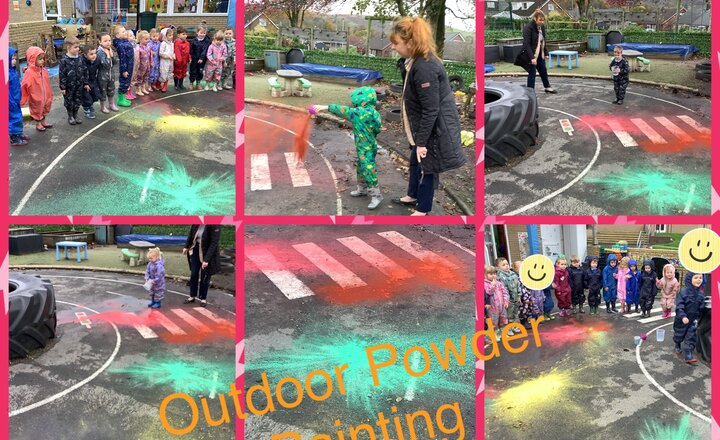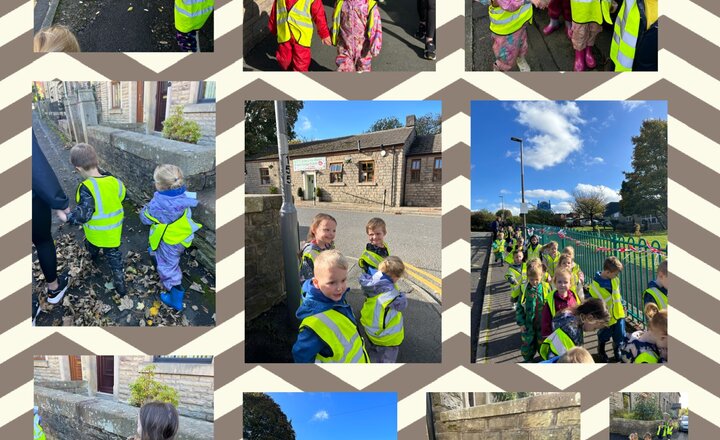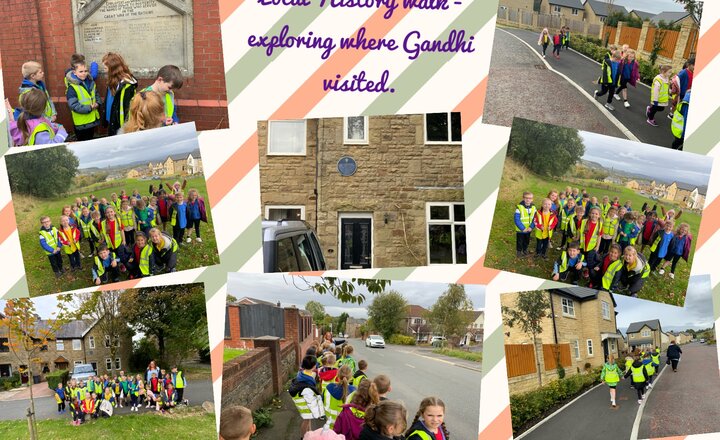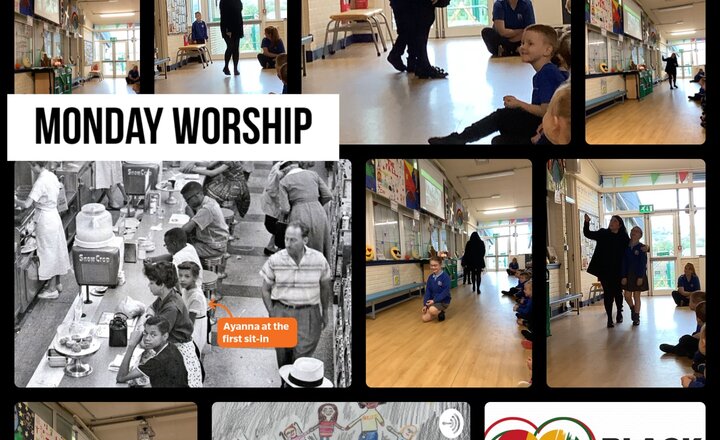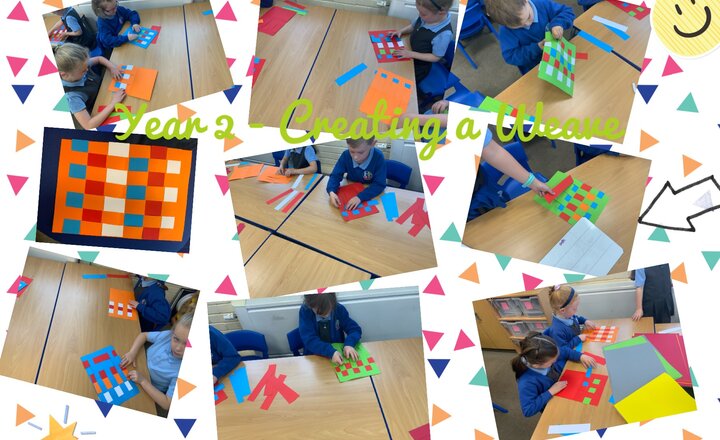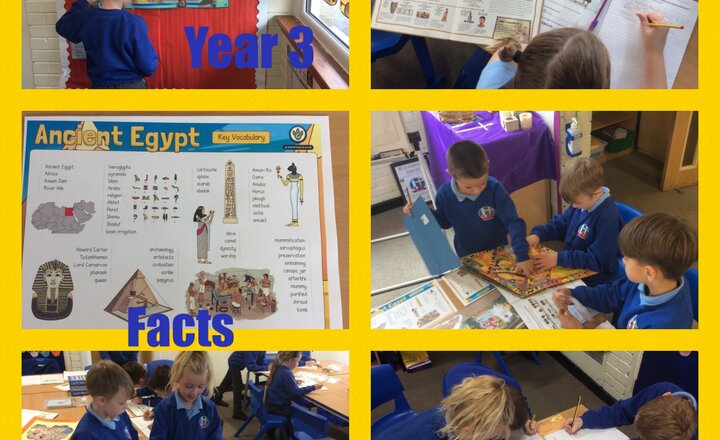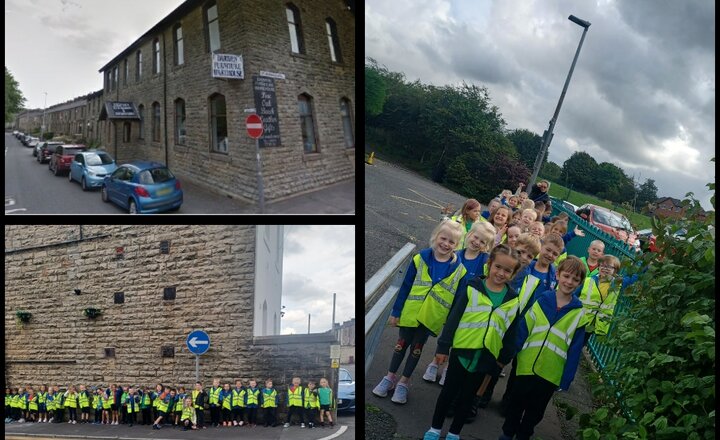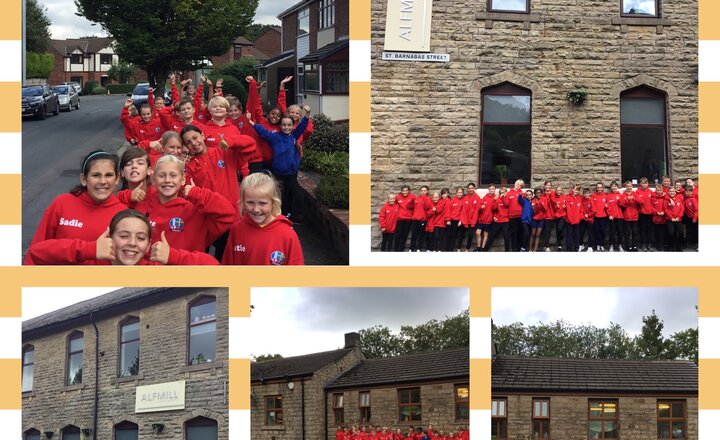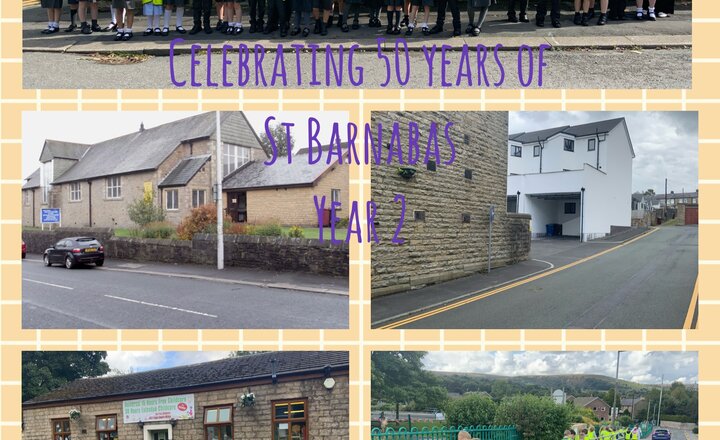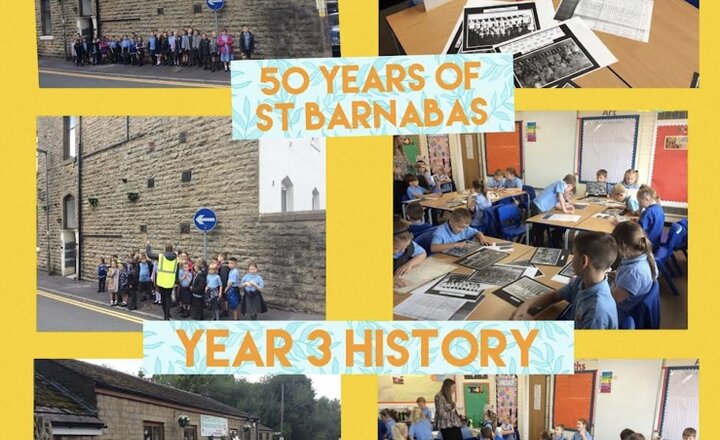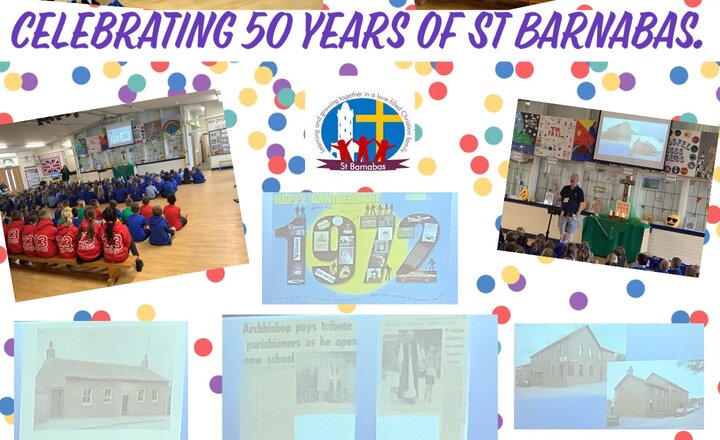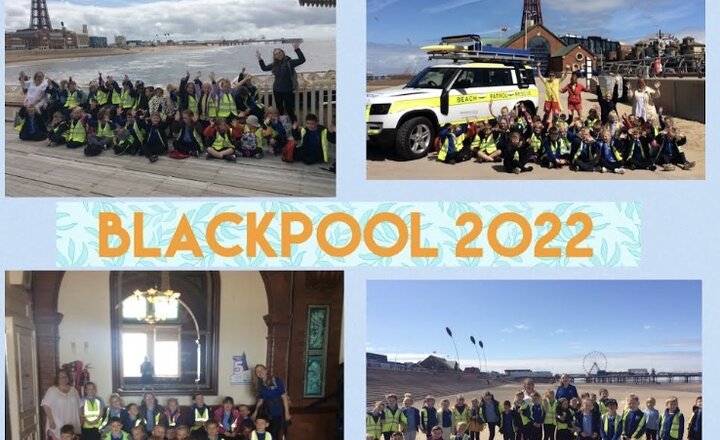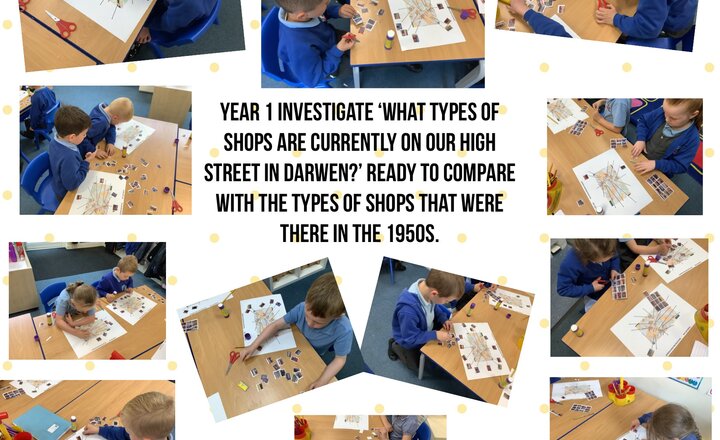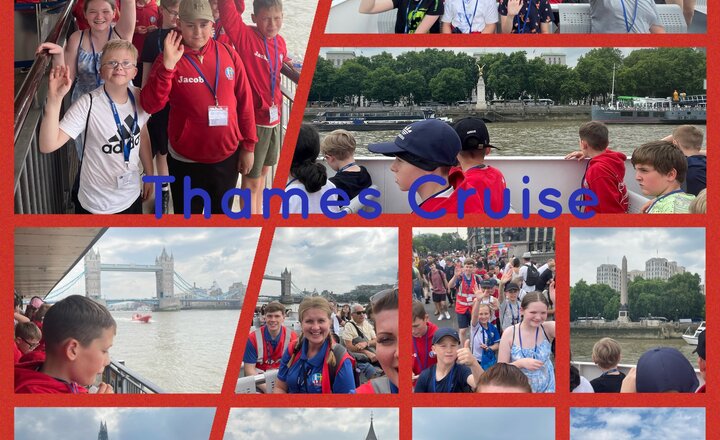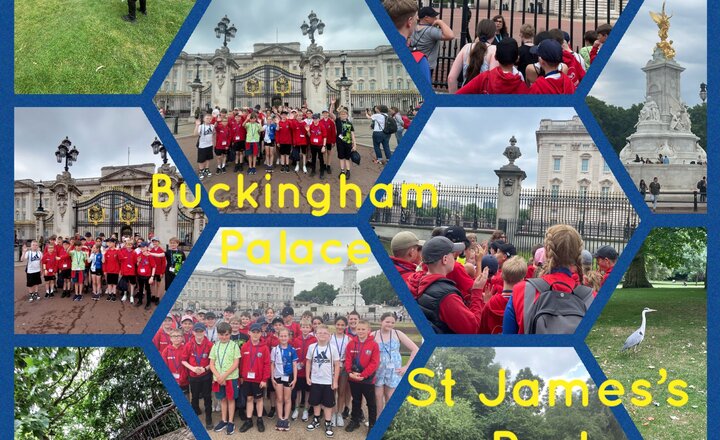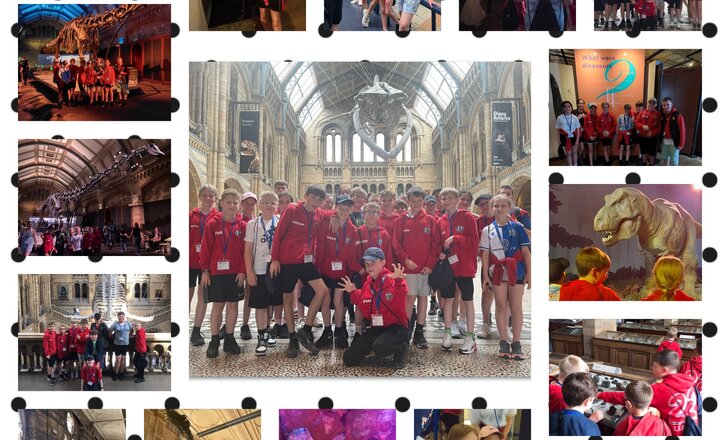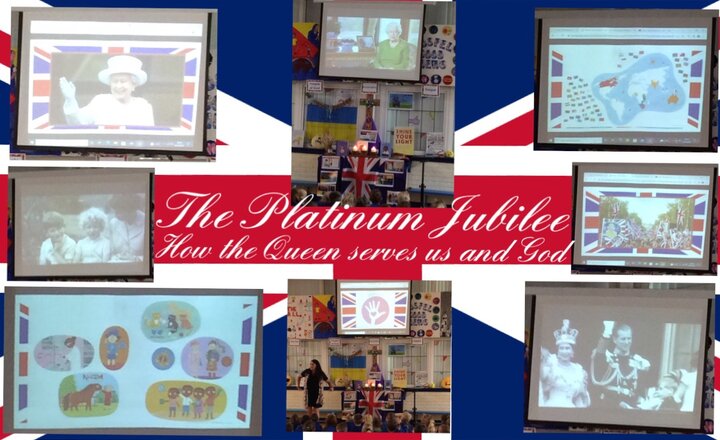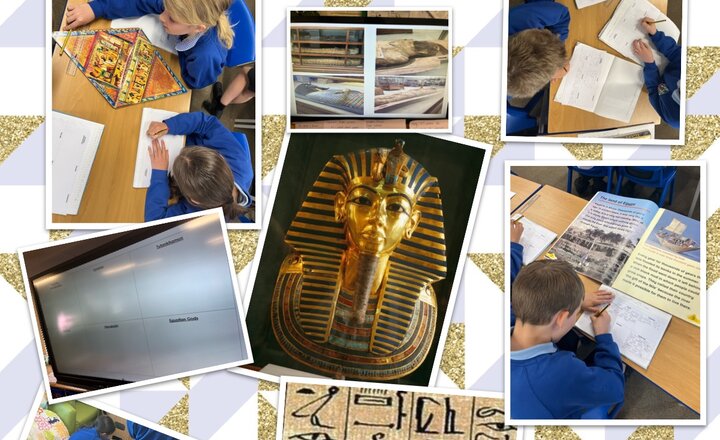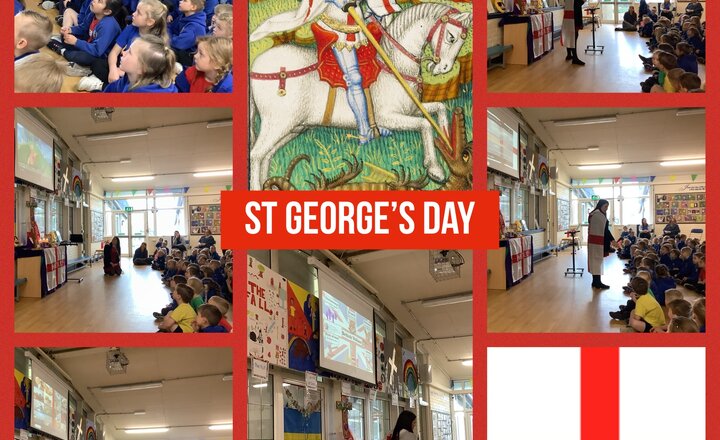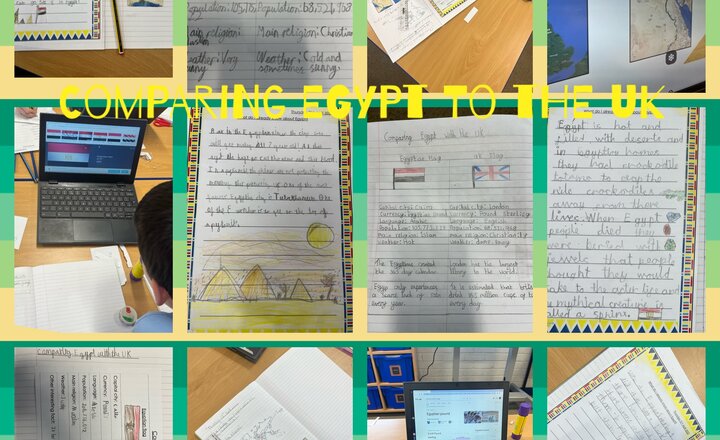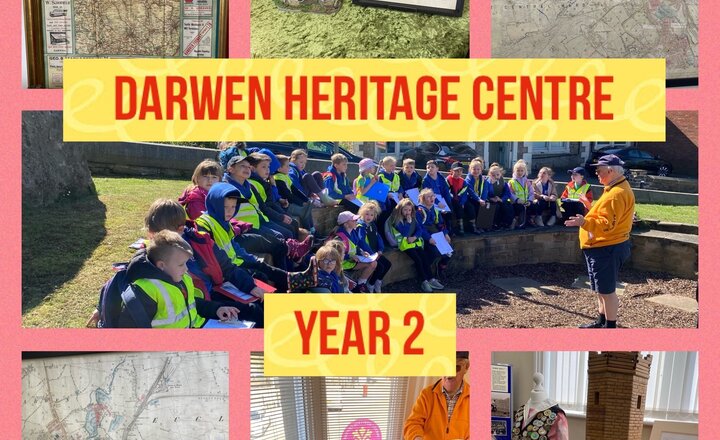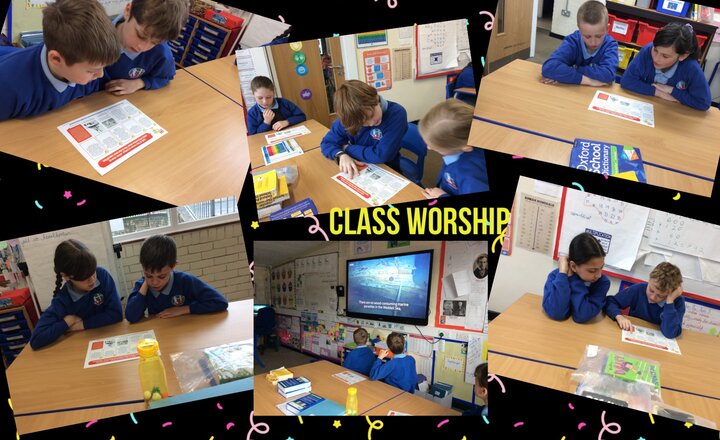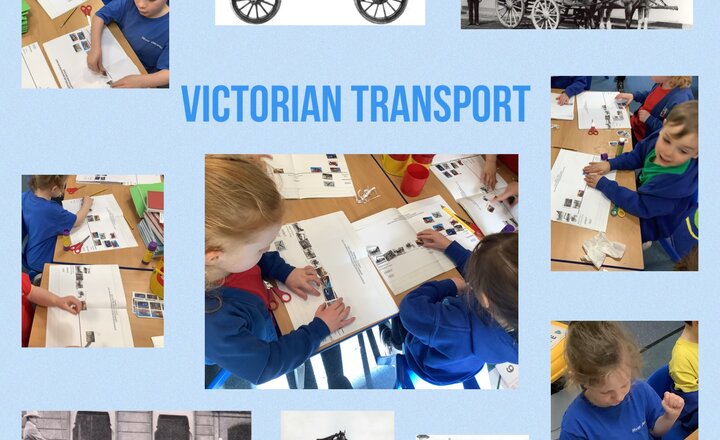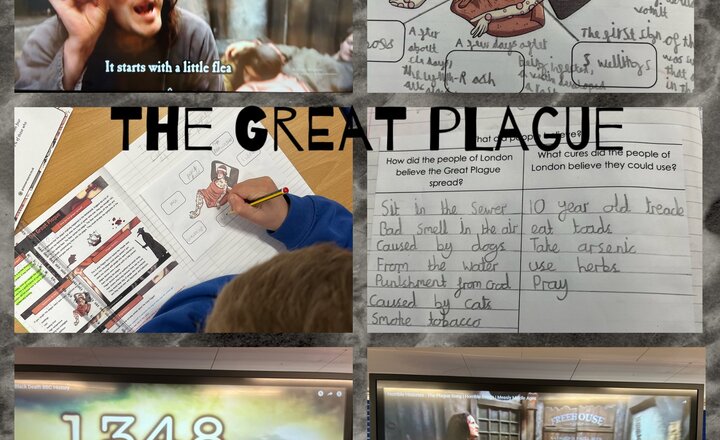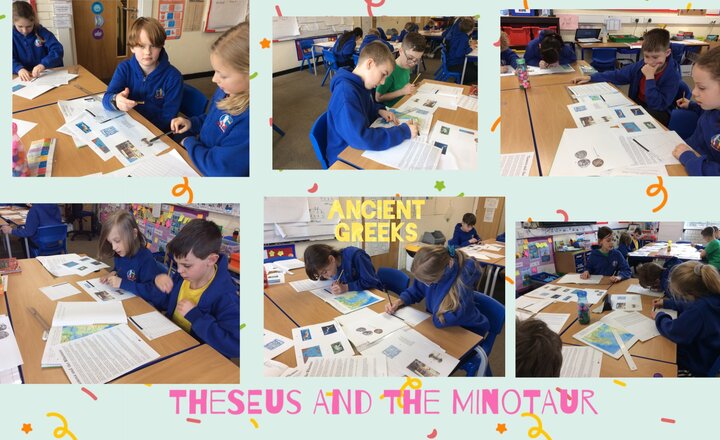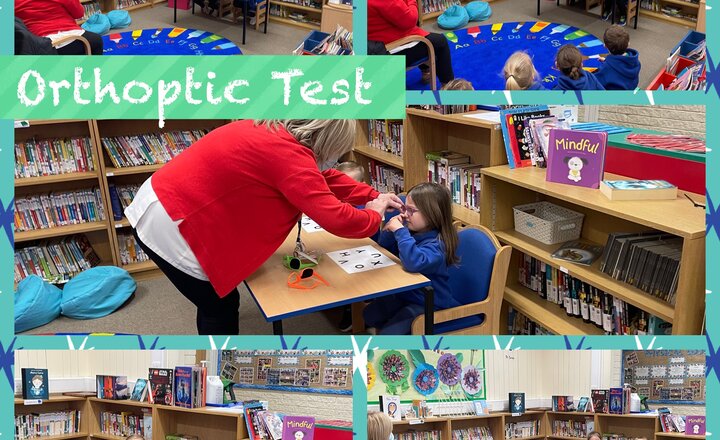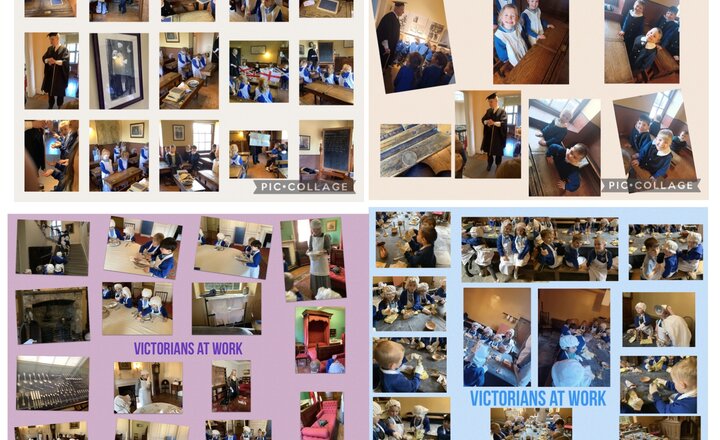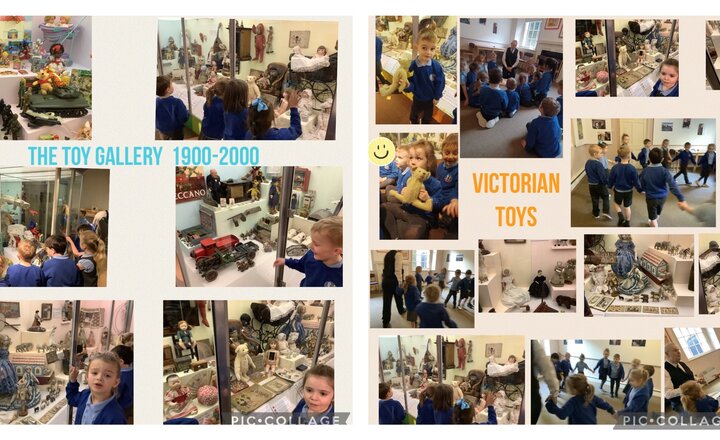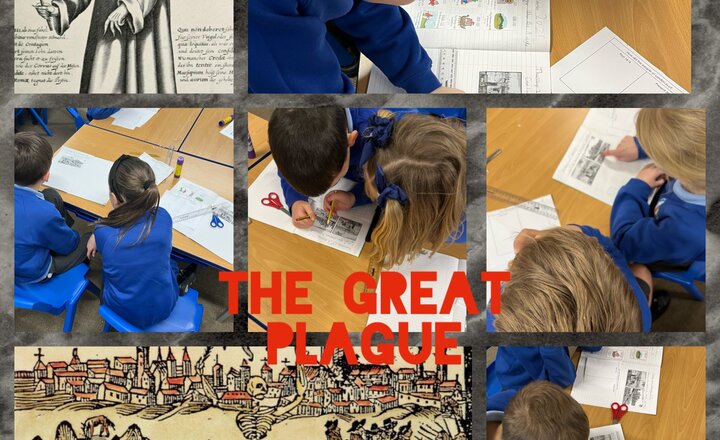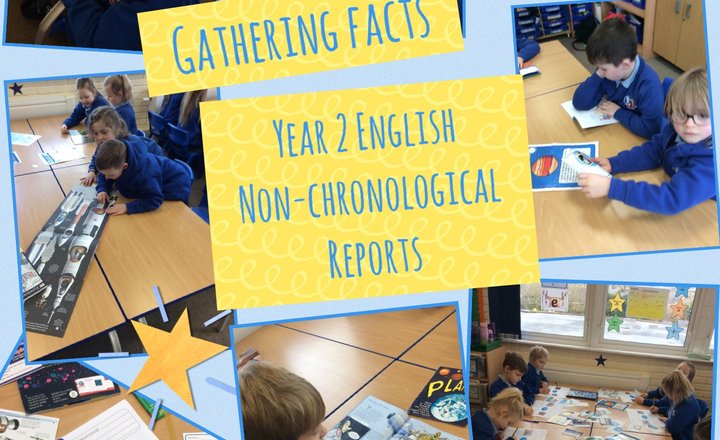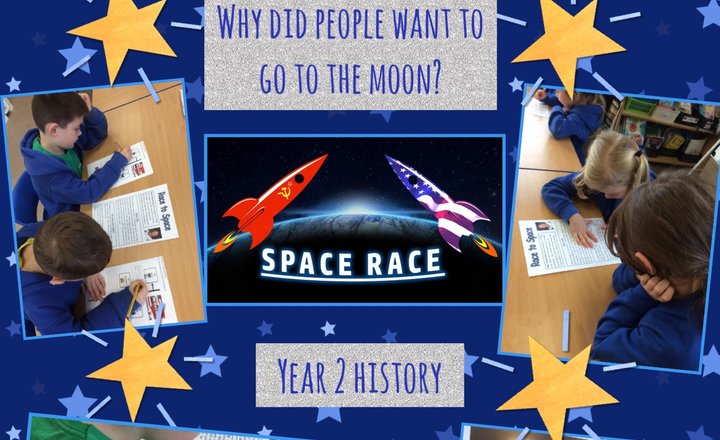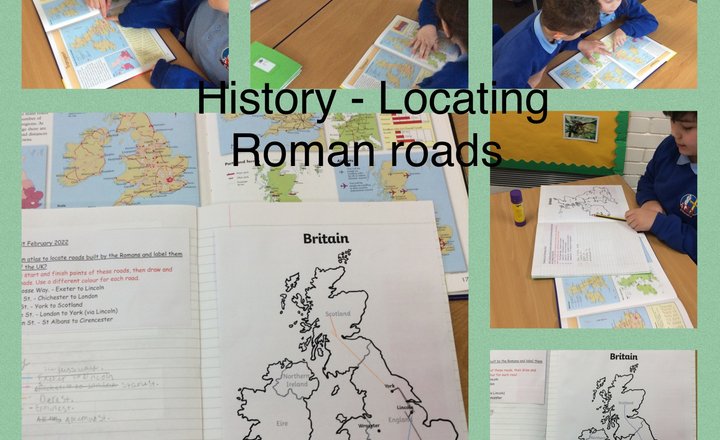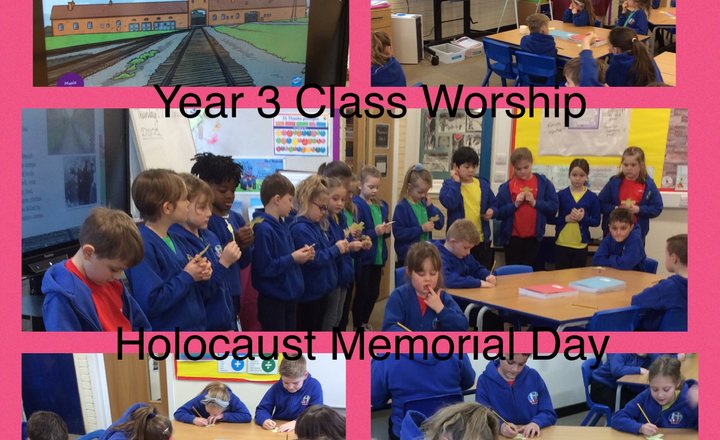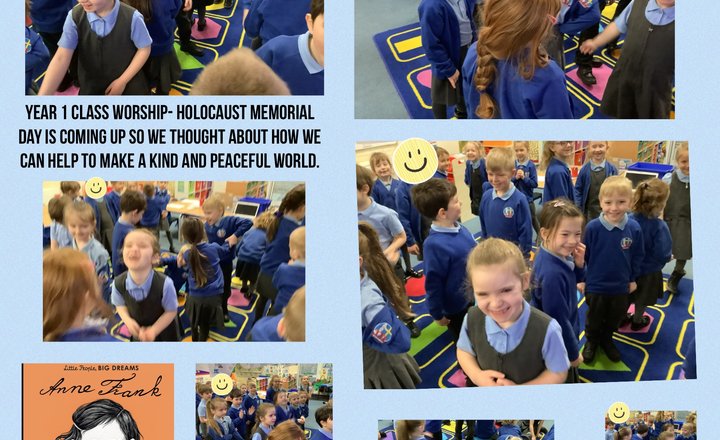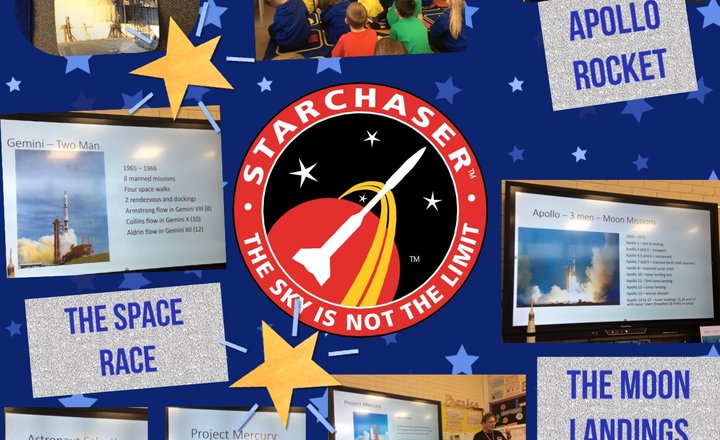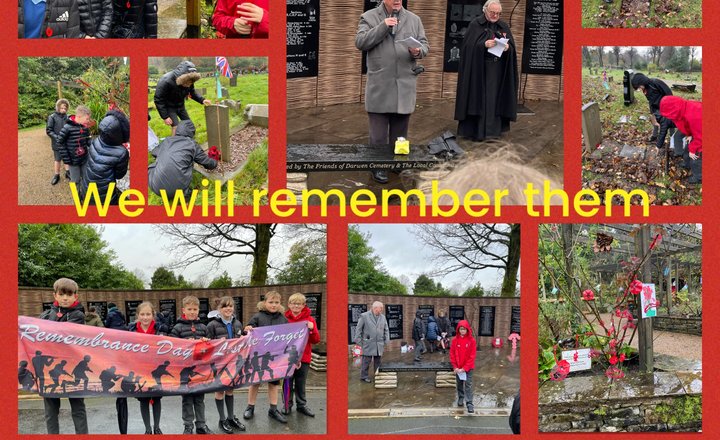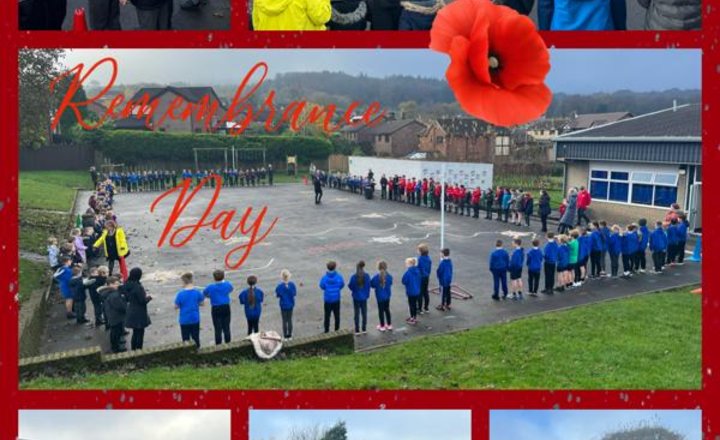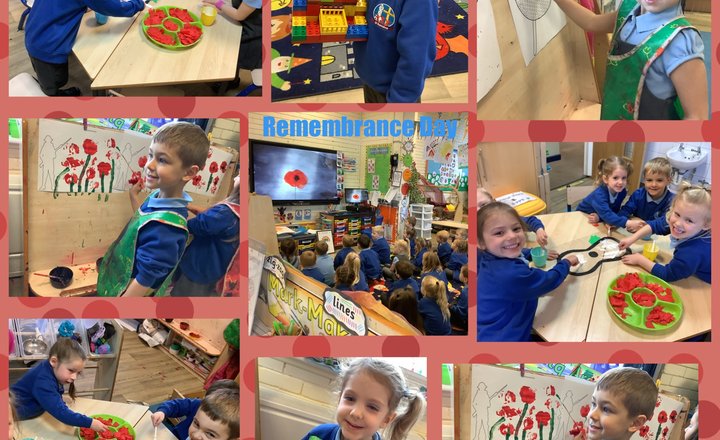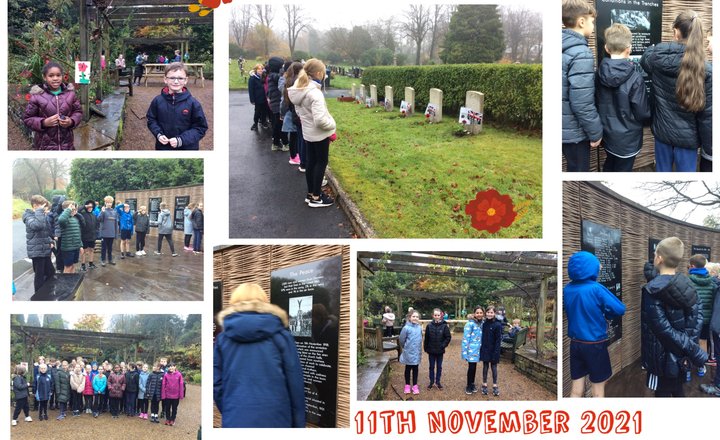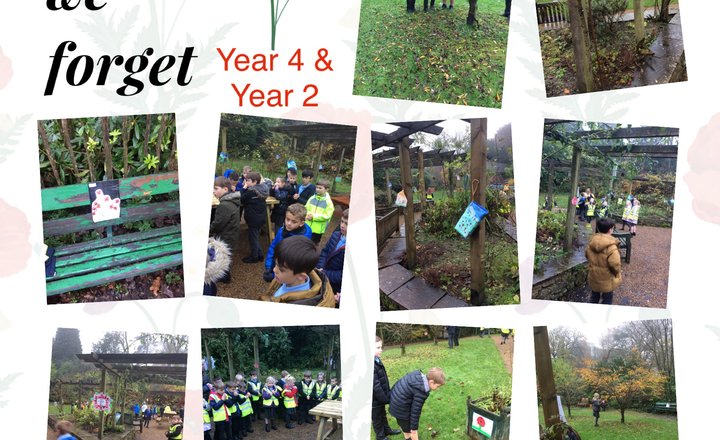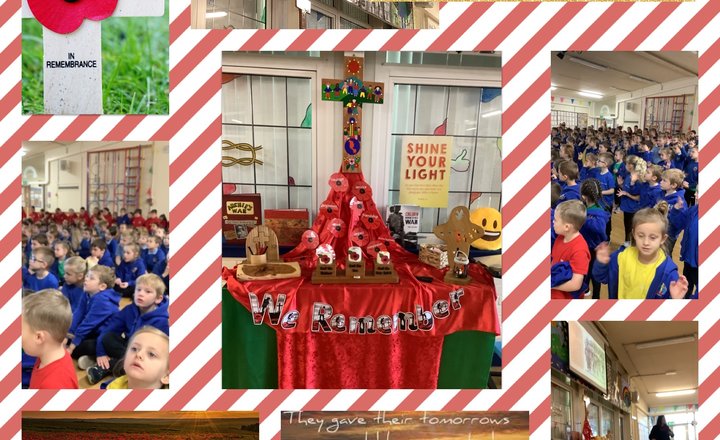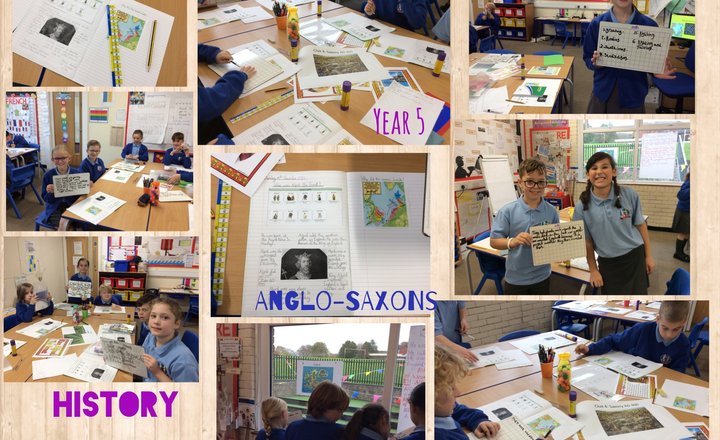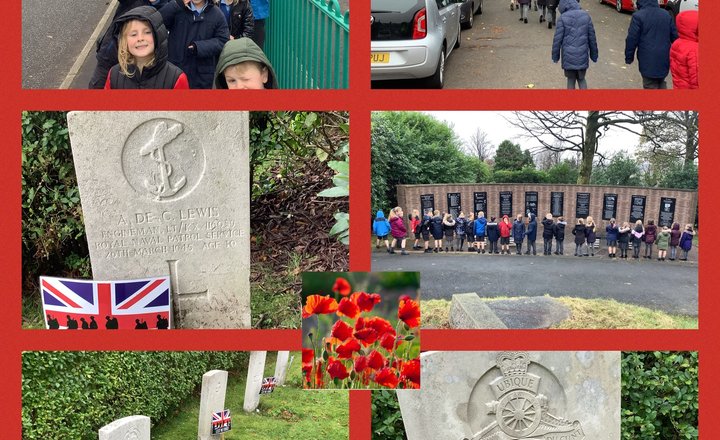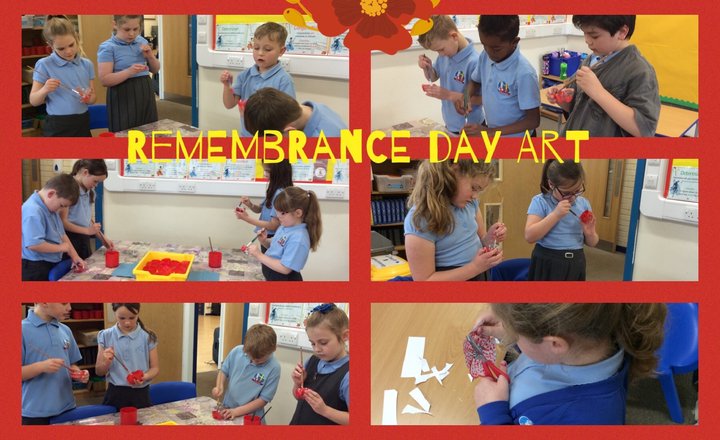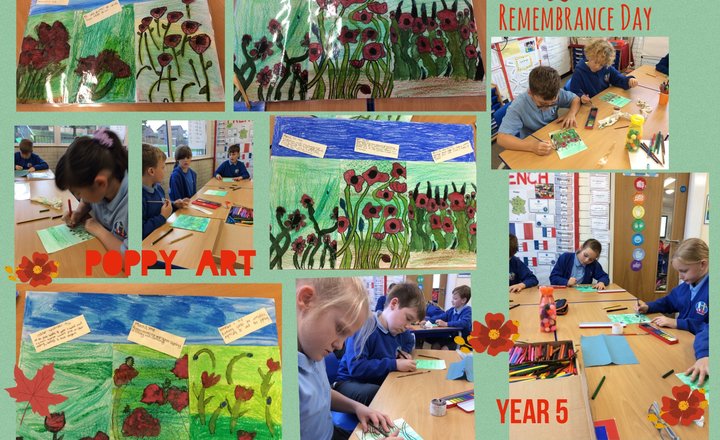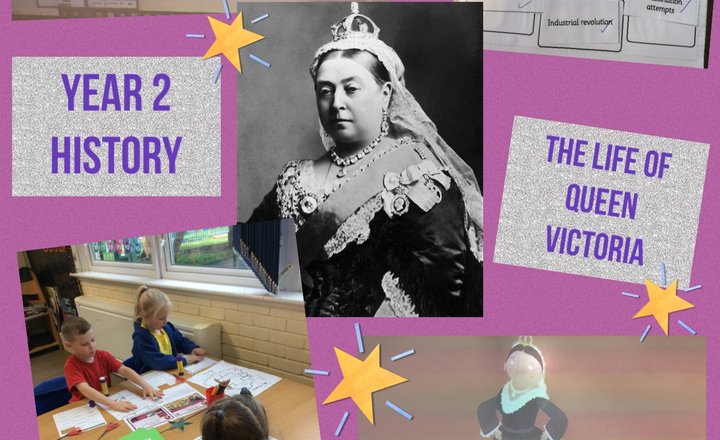Year 3 Present Their Learning: A Journey Through Victorian History to Year 2
Today, Year 3 had a fantastic opportunity to showcase their historical expertise by presenting their learning to Year 2. The children transported their audience back in time, sharing insightful details about the harsh realities of the Victorian era and the reformers who fought for change. The children shared fascinating facts about: The Factory Acts: They explained how these new laws finally made it illegal to employ children under the age of nine and limited the gruelling hours older children could work. Lord Shaftesbury: The class spoke about his tireless work as a reformer who believed every child deserved a childhood and an education. Ragged Schools: They described these free schools that provided food, clothing, and lessons to the most vulnerable children who couldn't afford a traditional education. Working Conditions: The children painted a vivid picture of the dangerous health conditions in Victorian factories, from the lack of ventilation to the "scavenging" roles children often performed under moving machinery. Whether presenting individually or in small groups, every child rose to the challenge, providing a brilliant boost for our Voice 21 initiative. It was a joy to watch them grow into confident speakers, using their oracy skills to teach others about the differences between the past and the present. Well done, Year 3.
Year 6 - What can we learn from a Census?
Today, Year 6 focused on what we can learn from a census. The children observed the 1851 Royal Census and carefully analysed the information recorded, including names, ages, occupations and places of birth. The children discussed how historians use census data as a primary source to build an understanding of daily life in the past.
Whole School Worship - How can we be peacemakers?
On Monday, during our whole school worship we came together to think about peace, how the bible tells us to show peace and also how we can learn from the past to ensure we create a world of peace and not war. Olivia and Desmond beautifully read our Peacemaker Bible readings from this week's kindness kite whilst we made doves, a symbol of peace, from our hands being linked together. We thought about world Holocaust Memorial Day, which is today, and reflected on how during that time peace and forgiveness were not shown and how cruel and unfair that was. We prayed for all those who lost their lives during the Holocaust and also asked God to help us to be courageous peacemakers when we see cruelty and also to love our neighbours and treat everyone with kindness and respect. We lit a special candle of peace for all those who cruelly lost their lives during the Holocaust and were shocked to learn that if we held a moment of silence for each person then we would have to be silent for 11 and a half years. We then sang a song about living without division but together, 'As One'.
Year 3- History-Investigating the Lives of Tudor Children
Today, our young historians took a step back in time to explore the lives of children during the Tudor period. We focused on the role of the apprentice, discovering how children learned essential trades and skills by working under a "master." Visual Evidence: By analysing historical images, the children identified the heavy labour apprentices performed, such as fetching water for farms or working in papermaking and printing shops. Working Conditions: Through video and audio accounts, we discussed the reality of Tudor life. The children learned that while wealthier children attended school, poorer children worked long, exhausting hours, cleaning, cooking, and farming, with very little time for play. Interactive Learning: Using the whiteboard, the children worked in pairs to match different Tudor occupations with their job descriptions. This allowed them to see the wide variety of trades available at the time.
Year 3 - History-From Tudors to Today: How Childhood Has Changed
Year 3 stepped into the role of historians this afternoon as we launched our new History unit! We have been exploring the similarities and differences between children's lives now and in the past. Using portraits of Tudor children as our primary sources, the pupils practised the art of observation and deduction. By observing closely what the children were wearing and playing with, our class made astute deductions about who was wealthy and how they spent their time. It was a brilliant way to see how much, and how little, life has changed over the centuries!
Year 4 History - what can artefacts tell us about the Romans?
In our history lesson today we looked at what artefacts can tell us about Roman times? The children covered deceiving an artefact, making observations and deductions. We finished by creating mini Roman soldiers and labelling the armour and weapons that they used.
Y4 History - Roman Formations
In our history lesson this week, we looked at Roman formations. The children created their very own shields and tested how effective the formations were whilst Mrs Gardner tried to break through with table tennis balls. The key formations are the testudo (tortoise), which is a defensive shell formed by soldiers holding their shields to create a roof and walls, and the wedge, an offensive V-shape used to charge and break. We had a great time and the children worked really well within their legions.
Year 4 - English: Roman Vocabulary
To start our new diary unit in English we explored a range of primary and secondary sources in order to build a bank of Roman vocabulary. The children will be writing in role as a Roman soldier describing a typical day at the start of the Roman invasion of Britain.
Year 1 History: Putting Out The Great Fire of London
Today, we examined evidence, primary sources and artefacts to help us understand how the people of London tried to put out the fire in 1666. We learnt that Samuel Pepys wrote a diary and buried it with wine and cheese, which we still use today to understand the events of the fire. We also used pictures and artefacts, such as a leather bucket to understand ways the fire was put out. We did some role play using our buckets and filling it with water from the River Thames and throwing it onto the flames. When that didn’t work, we used a water pump to try and extinguish the flames, but that did not work either. We started to pull down houses with fire hooks to create a fire break, which did help stop the spread of the fire. Ultimately, the fire ended as the wind stopped blowing and the fire was contained. Year 1 really enjoyed stepping into the role of the people in London and understood how tricky it was to put the fire out without fire engines like today.
Year 4 History - How did Britons respond to the Roman Invasion
In our second history lesson, we looked at how the Britons responded to the Roman invasion and in particular, Queen Boudicca who was in charge of the Iceni Tribe . Through research and watching video clips we learned that the Britons responded to the Roman invasion in different ways: some fought back, but many tribes made peace and agreed to obey Roman laws and pay taxes to keep their kingdoms. A famous example of resistance was Queen Boudicca, who led a major rebellion in AD 60 that destroyed Roman towns like Colchester and London before her army was defeated by the more disciplined Roman soldiers. The children also observed different perceptions of Boudicca and what they could take from photos of her statues. Focusing on both her appearance and personality.
Reception- Trekking Tuesday- Remembrance
Today we had our Trekking Tuesday forest school session and for the first part of the session we were thinking all about Remembrance Day and we created some lovely natural poppies. We then went on to have some free choice and exploration on this very muddy Tuesday. The children loved jumping in the muddy puddles, creating with sticks and hiding in natural dens.
Year 6: Remembrance Service
Our Year 6 children took part in the Darwen Cemetery remembrance day service this morning and we were so proud of the remarkable respect that they showed. A huge well done to Mason for his lovely reading and to all of our children for their maturity and compassion when placing crosses on the graves of the soldiers who bravely fought for our country. After the service the children learned that the piper used to attend St Barnabas as a child so he let the children try on his special hat. As a reward for representing our school so brilliantly, the children got to enjoy their break time on the play area in Whitehall Park. #WeWillRememberThem #remembrance #remembranceday #lestweforget
Year 4 English - Escape From Pompeii
Our new class novel is Escape From Pompeii by Christina Balit. In today’s sessions we have continued to use sentence stacking to develop and construct better sentences. We started by adding a fronted adverbial by watching the main character Tranio and recording how he feels about living in Pompeii at the start of the story. We then moved into a modelled sentence and then an independent one with a different fronted adverbial. In our next sentence, we referred back to our experience day and described the size of Mount Vesuvius using words such as colossal and humongous. Finally we used the same modelling to construct a sentence thinking about how Tranio feels about living in such a beautiful part of the world. The children produced some very effective sentences, using the success criteria to ensure they added all of the key parts.
Year 4 - English: Research
It was the start of our new English unit on Monday and the Year 4s were busy conducting research and collecting information about Pompeii and Mount Vesuvius. Their objective was to take keywords from each question and type them into a safe search engine in order to gather relevant information to answer the question. The children also used a range of primary and secondary sources to support their research. The children will be using this information to support their writing of stories based on a historical setting.
Reception: Muddy Monday
The children in Reception went to Jacks Key for their Muddy Monday session. They found lots of natural resources to build bonfires in preparation for Bonfire night on Wednesday. The children then went on a rainy walk and showed great perseverance and resilience. The children all worked well together and it is lovely to see them continuing to develop during these sessions.
Year 5 - History
We finished our history topic by considering the reasons why the Maya abandoned their cities during the post classic decline starting around 900AD. The children thought like historians, researching the evidence for and against possible explanations before deciding which theory they felt was the most plausible. The children discussed the relative impact of war, drought, deforestation and lack of water.
Year 3- Art- Egyptian Scroll Making
Throughout this half term, Year 3 has been exploring the fascinating world of Ancient Egyptian art. They have learned about the unique styles, patterns, and techniques used by the Egyptians. To display their knowledge and skills they have created their own scrolls on papyrus, which they created themselves using coffee and tea. They have carefully chosen colours and materials to make their scrolls visually appealing and historically accurate. They have also used sketchbooks to record their observations, experiment with different ideas, and plan their scroll-making process. By studying how artists in the past produced art, they have gained a deeper understanding of the influence and impact of historical methods and styles on contemporary art. This knowledge has inspired them to create their own unique and meaningful works of art.
Year 6 - History
Today, Year 6 had a visit from Diana Killey, who as a child, attended St Barnabas in the 1940s. She spoke to the children about what life was like growing up during that time and shared her experiences as a child of war. Diana described her daily life and spoke about the strong sense of community that developed during those years. The children were fascinated by her stories and asked many thoughtful questions, showing great curiosity and respect for her experiences.
Year 3- History/English-Exploring Ancient Egypt Through Explanation Texts
This week, Year 3 has started a new writing unit on explanation texts. In History, we’ve been learning about the beliefs of the Ancient Egyptians, the process of mummification, and the importance of the River Nile. The writers are now using what they have learned to write their own explanation texts, applying their knowledge of Ancient Egypt to build and develop their English writing skills.
Year 4 - Black History Month
In our class worship this week, the Year 4s joined in with the Great Big Live Assembly to learn about Black History Month. This year’s BHM assembly began with a look at current issues in our localities. They addressed the division becoming more apparent within communities and raised the questions: ‘What does the St George’s flag mean to you?’ and ‘How can we help to make everyone welcome?’ The children had some lovely, heartfelt answers about the flag being a symbol of pride, of peace and of our amazing sports teams. As usual, there were many ideas for welcoming visitors and people new to our school. Being welcoming is definitely a strength of our fantastic children.
Year 5 - History
In History, we studied examples of Maya cities including the building types, architecture and city layout. The children considered how their city would function, with temples to make offerings to the gods, roads for transport (sacbeob) alongside meeting places such as plazas and market places.
Year 3 Join the Great Big Live Assembly for Black History Month
Today, Year 3 took part in the Great Big Live Assembly for Black History Month 2025, hosted by Chris Kanday, Jeriah, and Gemma Hunt. The assembly explored the theme of “Standing Firm in Power and Pride”, celebrating the achievements and courage of Black individuals throughout history and today. Pupils learned about Rosa Parks and how one small, brave act helped spark huge social change. The presenters also discussed the St. George’s Cross, explaining how symbols can carry different meanings and how important it is that everyone in our communities feels welcome, valued, and respected. Through videos, discussions, and messages from inspiring guests, children reflected on how they can show kindness, courage, and fairness in their own lives. The children were thrilled, and a little surprised, when their class appeared on the big screen during the live broadcast! It was an exciting moment that made the experience even more memorable. They were inspired to speak up against injustice, celebrate diversity, and remember that even small acts of bravery and kindness can make a big difference.
Year 6 - Smart School Council Debate
This week’s Smart School Council debate was led by the children who took part in a thoughtful discussion on whether it’s more important to learn about past Black history or present-day Black history as part of Black History Month. The children shared a range of interesting opinions, with some highlighting the importance of understanding the struggles and achievements of the past, while others felt it was just as valuable to celebrate modern black role models who are making history today. The debate encouraged everyone to think deeply about how learning from both the past and the present can inspire a more inclusive and informed future.
Year 3- History-Exploring Ancient Egypt Through the River Nile
The Year 3 Historians investigated why the River Nile was so important in the lives and beliefs of the ancient Egyptians. They explored the interactive history timeline online and also looked at the timeline displayed in the school hall. They learned that the Nile was essential for many reasons: It provided water for drinking and washing. It supported farming, as the river flooded each year and left behind rich, fertile soil, perfect for growing crops such as wheat and barley. The children also discussed how the ancient name for Egypt, Kemet, meaning ‘black land’, referred to the dark, fertile soil along the Nile. They discovered that the Egyptians believed the yearly floods were a blessing from the god Hapi, whom they worshipped to ensure the river continued to bring life each year. They were fascinated to discover how the past could be presented in these different ways and worked brilliantly throughout the lesson.
Year 3- Art- Drawing Like the Egyptians
Today in art, Year 3 Artists travelled back in time to ancient Egypt. Before drawing their egyptian patterns and shapes, they prepared their sketchbooks by creating interesting surfaces to work on. Just like the ancient Egyptians who drew on papyrus, they transformed their white paper using chalk pastels last week to give it that special, papyrus-like texture. With the surfaces ready, they put pencil to paper today to draw beautiful Egyptian patterns, all while listening to some traditional Egyptian music in the background. The children's drawings have turned out absolutely amazing and they should be very proud of the surfaces and patterns they created.
Year 6 - Darwen Art Project
Year 6 had the amazing opportunity to take part in the Darwen Art Project. As part of this, our class worked together to design and create a stunning autumn-themed window display, showcasing our creativity and teamwork. Afterwards, we took part in a fascinating heritage walk around Darwen, where we explored the town’s past, discovered important landmarks and learned more about the history that has shaped our community. It was a wonderful experience that allowed us to celebrate both art and local heritage.
Year 5 History
Year 5’s new history topic is Who Were the Maya? Today, the children explored the timeline and achievements of the ancient Mayan civilisation. We are looking forward learning more about this fascinating period in history!
Year 1 History- The Types of Shops in Darwen Town Centre
As part of their history learning, Year 1 took a trip into Darwen Town Centre to investigate the types of shops found on the high street today. They recorded their findings using a tally chart, which revealed that takeaways and cafés were the most common, followed closely by hairdressers and beauty salons, supermarkets, and bargain stores. The children also spotted several pharmacies and a number of vacant shops. Next, they will use this information to compare the modern high street with the types of shops that existed in Darwen during the 1950s.
Year 3- Geography-Exploring South America in Geography
In today’s geography lesson, the children explored the continent of South America. Using atlases, they located South America on a world map and began identifying both physical and human features found across the region. Year 3 watched a short video clip to help bring the landscape to life. The children were amazed by the Amazon Rainforest, the towering Andes Mountains, and the powerful Amazon River. We also explored some of South America's remarkable human landmarks, including the iconic Christ the Redeemer statue in Rio de Janeiro, Brazil. Other stunning features that captured the children’s interest included Iguazu Falls, one of the largest and most beautiful waterfalls in the world, and the culture and history.
Collective Worship- Seeking Truth and Evidence
Today's worship began with the children singing the song "Jesus Strong and Kind." Following the song, James, Jack, and Lily from Year 4 signed the Trinity, adding a visual element to the worship. Next, the whole school participated in a "Spot the Difference" challenge. Rev. Matt then shared a message emphasizing the importance of delving deeper to find the truth, stating that the Bible provides accounts based on evidence, not made-up stories. He read the Bible story "The Earth Shakes," with children actively participating by acting out the movements described. To encourage reflection and the concept of "living life in all its fullness," the children paired up for a "Question Time," pondering how they could find out more about Jesus. The idea was put forward that we can learn about Jesus by doing what he did and by exploring historical accounts, reflecting how deeply faith is woven into our experiences. The worship concluded with a prayer asking for help to seek evidence.
Year 3- Picture News Worship-Curiosity and Faith
Today in class worship, we explored "a Picture News Worship" focusing on a shipwreck discovery and the Christian value of Wisdom. We learned about the SS Nantes, a ship found off the coast of Devon nearly 140 years after it sank. We discussed how exciting it feels to discover new things and why people enjoy solving mysteries. Isabelle read our prayer, thanking God for creating a world full of wonder and mystery, and asking for help to be curious and respectful as we explore His amazing creation.
Year 3-Exploring Spirituality Through Refugee Week
Today, as part of Refugee Week, 12 children from Year 3 visited a local church where they had the wonderful opportunity to meet refugees from 17 countries, such as Iraq, Palestine, Greece, South Africa, Afghanistan and Sudan. They listened to powerful, real-life stories of resilience, hope, and strength, gaining insight into these individuals' journeys and the challenges they have overcome. The experience helped to build empathy and deepen the children’s understanding of what it means to seek safety and rebuild a life in a new place. We ate food from Pakistan, Iran, Iraq, Palestine, Italy, Greece and drank Arabic coffee. The children sang songs for the refugees. Reverend Gilbert spoke to the children about how our donations to DARE - Darwen Asylum and Refugee Enterprise have helped refugees and ensured they are always welcomed, and they encourage more donations, etc. This visit linked beautifully with our Spirituality school model of Windows, Mirrors, and Doors. Through Windows, the children looked out and learned from the lives of others, seeing the world through different perspectives. Mirrors encouraged them to look inward, reflect on their own lives, and think about how they might feel in similar situations. Finally, Doors inspired them to step out and consider how they can live more compassionately, supporting others and making positive choices in their own lives. The visit was a meaningful extension of our R.E. learning but also connected closely with Mrs Ham’s worship this week, which focused on raising awareness and showing solidarity with people in need. It encouraged our students to reflect on how they can contribute to a more welcoming and understanding world. Overall, today’s experience supported our whole-school aim of helping children to live life in all its fullness, by inspiring them to be open-hearted, thoughtful, and active in making a difference. #RefugeeWeek
Year 3- French - Language and Culture
Today in French, the children began by exploring some interesting facts about French culture, then moved onto reviewing numbers through a song and game. They revised animal and number vocabulary by answering questions like ' What animal is it?' and 'How many are there? and recapped key grammar points such as adjectival agreement.
Year 4 History - What do artefacts tell us about the past?
In our final history lesson, we looked at how we may extract information from artefacts. The children worked in groups to decide what the artefact was, what it may be used for and what it was made from. We know that the Vikings came to Britain for many reasons and the artefacts that we looked at in the session helped to build our understanding of why and how they lived like they did. Finally, the children presented their learning to the other groups and posed questions related to each artefact example.
Year 4 History - Cause or Consequence?
As part of British History sessions, today Year 4 discussed the impact of events using cause and consequence. An example of this being that a cause was - The Vikings started to stay in Britain instead of raiding and leaving. The consequence was that parts of Britain then became controlled by the Vikings. We also found out that King Cnut was a king three times before he died in 1035.
Year 3- R.E-A Special Visitor: Learning About Judaism
Over the past two weeks in RE, Year 3 have explored different world faiths, learning about the similarities and differences within Sikhism, Buddhism, Islam, and Humanism. Today, we were fortunate to have Lennox's aunt, a follower of Judaism, visit our class. She shared insights into the history of her religion and spoke about her visit to Palestine. The children engaged thoughtfully, asking many insightful questions, such as what inspired her to embrace Judaism, why pork is not consumed in her faith, and the significance of Saturday as their special day.
Year 2 - Past and Present Monarchs
This afternoon, we continued to learning about monarchs. After learning about our current Monarch, we contrasted him to a previous Monarch William I. We used zones of relevance to describe monarchs. Powerful was an adjective we decided was very relevant and lazy was the adjective lots of us placed outside of the zones. Then we identified similarities and differences between how they ruled.
Year 3 - Class Worship- A new Pope has been elected.
Today in our class worship, we learned about the exciting news of the new Pope. Cardinal Robert Prevos, history’s first-ever North American pope. We discovered that the Catholic Church, a worldwide community, has a leader who helps unite everyone. We also touched on how there have been many Popes throughout history, each playing an important role. This leader helps Catholics worldwide feel connected and share the same beliefs. We took a moment to appreciate how important it is to have someone who works to unite people.
Year 3 - History- Creating a timeline from 4500 BC to the Modern Era
For our history unit this term, Year 3 are focusing on prehistoric Britain focusing on the Stone Age, Bronze Age and the Iron Age. We began by looking at how our visual timetable reflects the present and the past, before exploring the timeline in our school hall charting human history from 4500 BC to the modern era. The children chose facts that they found interesting and shared these with the class. We then created our own timelines recognising that we explore history from the present era of 2000AD and move back through time prior to the birth of Christ which we marked on our times as BC.
Year 3- Class Worship - Young Inventors
Today's Picture News class worship highlighted the inspiring ingenuity of three teenagers from India who developed a salt-powered fridge to aid hospitals in rural areas lacking electricity. Reflecting on this through the lens of "windows, doors, and mirrors" in spirituality, the teenagers' story served as a "window" into the needs of others and the power of innovation. We then considered the everyday items that ease our own lives, such as the convenience of a hairdryer, the ready access to running water, and the efficiency of an air fryer. This reflection acted as a "mirror," prompting us to appreciate the impact of even simple solutions on the quality of life. Inspired by the teenagers' creativity, which we saw as an open "door" of possibility, Year 3 resolved to embark on our invention journey, recognising our potential to make a positive difference in the world. This experience connected with the Christian value of hope and the biblical message of using our creativity to serve others. Isaac led a prayer thanking God for inspiring ideas and creative minds, emphasising the importance of using our abilities to make a positive impact, even through small acts of kindness and imagination.
VE Commemoration- Red, white and blue day
Today, our pupils and staff dressed in red, white and blue to commemorate the 80th anniversary of VE Day. We came together to remember and honour those who served, and to reflect on the importance of peace and unity. As part of our celebrations, we’re supporting the Royal British Legion. If you’d like to make a donation, you can do so easily via ParentPay. Every contribution helps support veterans and their families. Thank you for helping us make this day meaningful for our school family! #VEDay80 #StBarnabasRemembers #RoyalBritishLegion #RedWhiteBlueDay
Year 3 - VE 80 Great Big Live Assembly
Yesterday, Year 3 looked at a presentation that helped the children understand the lead-up to the Second World War. We reflected on the reasons for the World War and the devastation it caused. We recognised how the war ended after six years and listened to a man named Alan, who shared his personal memories of the War. We then discussed our own perspectives and why it is important to remember those who sacrificed their lives. Finally we ended the session with a quiz to test our knowledge about what we learned. Today, the children joined a special "Great Big Live Assembly" commemorating Victory in Europe Day (VE Day). This significant historical event, observed on May 8th, 1945, marked the end of World War II in Europe, bringing immense relief and joyous celebrations after years of conflict. The assembly helped our young learners understand the importance of this day, exploring why it was celebrated with street parties and flags, and underscoring the themes of peace, hope, and the resilience of those who lived through the war. By learning about VE Day, Year 3 gained a valuable insight into the past and the importance of remembering history to build a more peaceful future.
Year 6 - VE Day 80
This morning, year 6 took part in a live assembly to commemorate VE Day. They discovered that although it is a day to celebrate, the end of the war heightened the sense of sadness in people as they reflected on the people they had lost. The children were shocked to hear that 70,000,000 people worldwide lost their lives during the conflict. They also heard from Frank Chester, a 108 year old war veteran, who spoke of his experiences of WW2. A truly remarkable human!
Year 4 British History - Exploring the features of a Viking longboat
In our history lesson this week we have been exploring the features of a Viking longboat, describing how these features contributed to Viking success and identifying the most important parts of the boat. Whilst researching, we found that the Vikings built longboats to raid, battle, explore and transport goods. They were between 13 and 23 metres long and were long, narrow and light so they could move around quickly. The children worked hard to identity the key features by adding labels following watching a short clip.
Year 1 Collective Worship- VE Day 80th Anniversary
Today in class worship, Year 1 were introduced to VE Day and explored its meaning. They learnt that it means ‘Victory in Europe Day’ and how tomorrow (8th May) will mark this by celebrating 80 years since the end of World War II. Year 1 understood the significance and joy that this would have brought to everyone in Europe. They looked at pictures of people having street parties, dancing and singing and understood that this would have been a time of great relief and happiness where people could live more peacefully and not have to fear for their own lives or the lives of their friends and family. Year 1 are looking forward marking the occasion on Friday by wearing the colours of the Union Jack.
Whole School Worship - V.E. Day & The Lord’s Prayer
Our worship began with an introduction to V.E. Day. Mrs Ham gave a short explanation about the Second World War and the celebrations that took place after Europe’s victory in 1945. There will be a number of worships and activities taking place across the week to commemorate 80 years since the end of World War II, including our Red, White and Blue day on Friday. Mrs Ham and Mrs Araujo then launched this week’s Year of Prayer activities. Our focus was then directed to The Lord’s Prayer. Mrs Ham spent some time explaining the first few lines to make sure everyone in our school family understands what they are praying about when they recite The Lord’s Prayer. We focused particularly on the word “hallowed” and that this means holy. We shared our ideas of how we can carry out God’s wishes and that we can all try to be like saints. The children had some extremely thoughtful ideas about welcoming people and why it is important to make others feel welcome. We finished by reciting The Lord’s Prayer once more and then singing one of our favourite worship songs, My Lighthouse.
Year 3- Geography- Living Life to the Full-Comparing Darwen and New York
As part of our Geography topic on the United States of America, Year 3 have been investigating their local area, taking note of the physical and human features in their surroundings. During our walk, we stopped to talk with Mrs Singleton’s brother-in-law, who shared some fascinating facts about Darwen’s famous India Mill and its history. As we continued, we spotted an old tramline, a reminder of the past when trams used to travel between Blackburn and Darwen. We also noticed a boat in someone's garden, which sparked lots of excitement and curiosity! The children made some brilliant observations, noting that the streets in Darwen look much narrower compared to the wide, bustling avenues of New York. They also commented that the houses here are much smaller, and overall, Darwen feels a lot quieter and less busy than the lively streets of New York. Year 3 were living life to its fullest on this walk, embracing every opportunity to explore, learn, and wonder about the world around them. These real-world experiences will help the children when discussing the similarities and differences between Darwen and New York in class. Well done, Year 3, fantastic geographers in the making!
Year 4- Why did the Vikings come to Britain?
Today we started our new history unit - Vikings in Britain. We looked at reasons as to why the vikings invaded Britain, sequenced key events and then created a timeline. We worked in groups to mark the beginning and end of the Viking period from 793AD to 1066AD and then we worked and sorted through all of the events to ensure that they were in chronological order. Towards the end of the lesson, the children presented what they had found and shared key information about where the Vikings had come from, how they got to Britain and how things changed for the Anglo Saxons when they arrived.
Year 4 History - Was King Alfred really ‘ Great’?
In our history lesson this week we have been studying Alfred the Great. We were learning about the threat that the Vikings posed to the Anglo- Saxons, exploring sources for bias and deciding whether or not Alfred was a ‘great’ king. The children watched several clips in order to gather information about King Alfred and recorded their notes on whiteboards. Next they discussed key questions as to why he became king, which parts of England he ruled and who were his enemies. We found out lots of key facts and then added these to our sheets. We now know that King Alfred only became king as his two other brothers died and he was next in line, he ruled Wessex as it was the only kingdom left and Guthrum the Viking Leader was his arch enemy.
Year 1 History- Toys Past and Present
In history, Year 1 have been exploring toys from the past. Today, we got the opportunity to explore how toys have changed over the last 100 years. We discovered that all toys used to be made from wood, fabric and metal such as trains, dolls and board games before brightly coloured plastic toys became popular such as frisbees and Lego. We then learnt that plastic toys continued to be played with, electronics were made and became popular such as gameboys and battery controlled cars as well as toys that featured on our televisions such as Care Bears and My Little Pony. We know that this was around the time that our mummies and daddies were children. We then looked at the toys that we play with today such as figures and understood that they have become popular through being on our televisions and in storybooks. We also noticed how electronics have become more advanced as we now have app-based games. Super learning Year 1!
Year 6- Thames River Cruise
Our Year 6 children enjoyed seeing some of the famous sights of London from the River Thames. They also learnt about the history of the buildings from our tour guide. Can you spot any you know? All of the Year 6 London trip photos can be found here: https://www.stbarnabasdarwen.co.uk/photo-galleries/year-6-london-trip-2025
Year 4 History- Making Inferences about who was buried at Sutton Hoo
This week in history we have been trying to make inferences about who was buried at Sutton Hoo and what evidence it gives us about Anglo Saxon life. We researched artefacts such as a helmet, having bowl, shoulder clasps, belt buckles and sceptres. We each selected an artefact to look at in more detail and answered questions directly related to it. We described it, added what we thought it was made from, what it may have been used for, who its owner may have been and what it tells us about Anglo-Saxon England.
Year 6- Houses of Parliament
Our Year 6 class were so fortunate to be able to visit the Houses of Parliament to learn all about our British Values and in particular, democracy and the rule of law. We had a tour and watched a live debate in the House of Commons. The Foreign Secretary David Lammy also gave an announcement. We visited Westminster Hall, which we recognised from seeing on the news when the Queen was lying in State after her sad death. We then took part in a workshop about how laws are created and we learnt all about Parliament and the houses of Commons and Lords through a fun activities. We also got to explore democracy through voting and debating. Finally we were visited by our local Member of Parliament, Andy McNae and had a great question and answer session. We are so proud of the thoughtful questions the children asked him. We are sure that we have a few future MPs amongst our Year 6 class!
Year 6- Imperial War Museum
In History this term, Year 6 have been learning all about the Second World War and the part that Darwen played in it. It has been wonderful to visit the Imperial War Museum to learn more about the Second World War and the part that London played in it and contrast this to Darwen’s involvement. All of the Year 6 London trip photos can be found here: https://www.stbarnabasdarwen.co.uk/photo-galleries/year-6-london-trip-2025
Year 6- Natural History Museum
Our Year 6 class had a wonderful time exploring the Natural History Museum in London. They saw dinosaur and animal bones and fossils and lots of stuffed animals. They also went into the earthquake simulator shop and also enjoyed visiting the gift shop. For all of the Year 6 London trip photos, please click here: https://www.stbarnabasdarwen.co.uk/photo-galleries/year-6-london-trip-2025
Year 6- Singing the National Anthem outside Buckingham Palace
Our amazing Year 6 children drew quite a crowd when they sang their hearts out singing the National Anthem to King Charles outside Buckingham Palace. All of the Year 6 London trip photos can be found here: https://www.stbarnabasdarwen.co.uk/photo-galleries/year-6-london-trip-2025
Year 6- Mrs Doubtfire, Covent Garden & Trafalgar Square
Our Year 6 children enjoyed seeing the sights of Trafalgar Square and the street entertainers in Covent Garden. They then watched Mrs Doubtfire the Musical in the West End which they found really funny and entertaining. All of the Year 6 London trip photos can be found here: https://www.stbarnabasdarwen.co.uk/photo-galleries/year-6-london-trip-2025
Year 6- London Sightseeing
Year 6 saw lots of London's famous sights such as Buckingham Palace, 10 Downing Street, Big Ben, the Houses of Parliament , the Tower of London and we saw some of the changing of the guard at Buckingham Palace. All of the Year 6 London trip photos can be found here: https://www.stbarnabasdarwen.co.uk/photo-galleries/year-6-london-trip-2025
The Little Craft Club
This week at The Little Craft Club, they celebrated St Patrick’s day and had lots of fun together making Irish themed crafts.
Year 4 History - Developing our understanding of Continuity and Change in both Iron Age and Anglo Saxon Houses
Our history session today involved highlighting and developing our understanding of Continuity and Change in both Iron Age and Anglo Saxon Houses . We first identified key features of the houses such as building material/construction, hearth, bedding, doors and windows. Then we looked at what had stayed the same ( continuity) and what had changed between the Iron Age and Anglo Saxon periods. Finally the children labelled the key features of an Iron Age house which included a thatched roof, central open fire and wattle and daub sides.
Reception: Police Visit
Our Reception class loved their visit from the Police Community Support Officers today called Annie and Reece. They learnt about their jobs, who to call in an emergency and the different police vehicles. The children also listened to the police siren, saw the flashing lights and were all able to sit in the police car.
Year 4 History - Who were the Angles, Jutes and Saxons?
This half term we will be looking at how easy it was to invade Britain. Today we focused on the next period of history following on from Roman Britain which was the Anglo Saxon invasion. In groups we researched who the Angles, Jutes and Saxons were and which countries they came from. The children worked really hard to develop their understanding of the routes that each of the groups took and which parts of Britain they invaded first.
Year 1 History- Exploring the Characteristics of Our Favourite Toys
This afternoon, Year 1 started their new history unit, ‘How have toys changed?’ To start off their learning, they brought their favourite toys into school to show their friends. They thought about what materials their toy is made from, how it feels and looks, how it is played with and what features it has. We had a super variety of toys. Most of the toys we described as being made from plastic or fur, being played with by dressing them up, brushing their hair, cuddling them, driving them, building with them, play fighting or role playing with them and as having features such as buttons, wheels, eyes, legs, arms, mouths and tails. We are looking forward to comparing these modern day toys with toys from the past.
Year 6 English - “Goodnight Mister Tom”
Year 6 have begun their new English topic this week, based on “Goodnight Mister Tom”. The children watched the beginning of the film adaptation as a “hook” into their learning, which they really enjoyed. They then looked at vocabulary linked to the book and the topic, which they then placed onto a Zone of Relevance. This was all then linked to their grammar work on expanded noun phrases and how they make writing more effective for the reader. The children are also going to be linking their English work with their History unit on WWII. In a few weeks they will be visiting the Imperial War Museum in London too to learn more.
Mad Science Assembly- Whole School
Today, the children were treated to a spectacular science show by Scientific Sarah from Mad Science. Sarah, a trained professional in handling chemicals and fire, emphasized safety throughout the engaging and interactive presentation. Throughout the show, children were encouraged to make predictions about what might happen next, fostering their scientific thinking skills. The children couldn't stop laughing, and there were so many "wow" moments throughout the presentation. The show featured three exciting experiments. First, the children were highly amused by "Egg Bert," a boiled egg that initially resisted entering a glass cylinder. After removing the shell (humorously referred to as his "clothing"), Sarah demonstrated how air pressure, a principle discovered by Jacques Charles, could be used to force the egg into the cylinder. Heating the air inside allowed the egg to slip in, and then, following Charles' suggestion, Sarah introduced cold air to pop the egg back out, to the children's great interest. The second experiment showcased red cabbage juice, a versatile pH indicator discovered by Robert Boyle in 1664. With the help of James, one of the school's science ambassadors, Sarah peeled and blended the cabbage. She explained how adding acid or alkaline substances to the juice would dramatically change its color, creating another captivating visual demonstration. Cassidy also assisted with this experiment. Finally, Sarah performed a "fire hands" experiment. Referencing Doctor Walter Snell's work on storing gas in tanks, she again stressed the importance of safety. Sarah then created three fire bubbles on her hand, a truly mesmerizing finale. Flyers are going home today with details about a new Mad Science After School Club starting next half term, on Monday, February 24th. Importantly, the topics covered in this club are different from those offered last year, so even if your child has participated before, they are guaranteed to learn something new! Registration letters, also going home today, contain full course details and information on how parents can register their children online. The deadline for registration is Friday, February 17th. Interested parents can register online on a first-come, first-served basis at https://northengland.madscience.org. The entire show was a memorable and educational experience for the children, and we're excited to offer this after-school opportunity.
Year 3- Presentation of Learning- History- Past and Present
Over the past three weeks, Year 3 have been learning about how children's lives have changed over time, comparing the past and present. Today, we shared our findings with the whole school in History and Guided Reading. We discovered that childhood and adulthood were defined differently in various historical periods—Roman children were considered adults at 12 or 14, Tudor children started working as young as 7 or 8 and became adults at 15, while in Victorian times, adulthood was reached at 21. Today, the legal age of adulthood is 18. We also explored how daily life has evolved, from clothing differences in Roman and Tudor times to changes in communication, transport, and technology. In the 1930s, toys were homemade from wood, and before Sat Navs, people relied on paper maps to plan their journeys. Seatbelts and airbags were only introduced in 1959, and television was only available in black and white until the 1970s. In the 1990s, Sat Navs were invented, and home computers connected to the internet using phone lines. The children have been great historians, asking thoughtful questions and making insightful connections, and they are thoroughly enjoying this unit as they continue to explore how the past has shaped the world they live in today.
Reception: Presentation of Learning all about Chinese New Year
This week, Reception class have learnt all about Chinese New Year. Today, they presented their knowledge to the whole school. They shared what they had made and a little bit about Chinese New Year. We learnt that this year is the year of the snake. The children made some wonderful lanterns, wrote Chinese numbers and also painted the animals from the great race. Some of the children even took part in a dragon parade. Thank you for sharing your knowledge with the rest of the school Reception, we learnt lots!
Holocaust Memorial Day Worship
Our first collective worship of the week had a serious and somber tone as we held in our thoughts and prayers all of the Jews who suffered in the Holocaust. We looked out of our spirituality windows to learn how the Nazis did not show love to their Jewish neighbours like God commanded but instead treated them really badly during World War II. We watched a BBC interview with a Jewish survivor, who described some of the personal tragedies he faced at the young age of 6 when his family sent him away to save his life from the Nazi regime. He shared how he travelled on the Kindertransport and a British family showed him love and compassion and became the light in the dark. Through our spirituality mirrors we were able to reflect on how hearing of these events made us feel, and how the Jews must have felt back then. Finally, through our spirituality doors we learned of the many survivors who have worked tirelessly to make people aware of the devastation that was caused so that it would never happen again. We reflected on how we should always love our neighbours regardless of whether they look like you, pray like you, speak like you or think like you and stand up to anyone who is being mean to others.
Year 3- Art- Weaving inspired by Anni Albers
This afternoon in Art, Year 3 explored weaving techniques inspired by artist Anni Albers. Using thick card as their base, the children created woven pieces with wool and ribbon. To deepen their understanding, the children watched short video clips demonstrating various weaving methods and their historical significance: 'Carpet Weaving' 'Hand Weaving' 'Palm Weaving' These clips highlighted the long tradition of weaving, which has been practiced for thousands of years, using a wide range of materials, from natural threads to modern synthetic fibers. Before starting their projects, the children referred to the mood boards. They carefully selected a colour that matched the themes or emotions reflected in their boards. When weaving, they alternated the wool and ribbon strips in an under-over-under-over pattern, ensuring each piece was pushed tightly into the weave. They continued this process, repeating the pattern, until all the strips were integrated into their designs. They were thrilled with the outcome and in awe with they created.
Whole School Worship - Who Is My Neighbour?
In our collective worship, we were considering the question, “Who is my neighbour?” We discussed what it means to love your neighbour as yourself (as mentioned in parts of the Bible such as Leviticus and the Gospel according to Mark) and that there are times when it can be incredibly difficult. In hearing about the life of Martin Luther King Jr, as today is Martin Luther King Jr Day, we discovered that, even when it feels impossible to love our neighbour, when we are mistreated, ignored or disrespected as he and other black people have been, we must try harder to follow God’s greatest commandment, just like Martin did. Our children considered this and spent some time reflecting on the Christian Values that Martin demonstrated and the ways that they would like to make the world a better place and make a difference. Some of the children’s examples included: protecting nature, making peace when we have disagreements, putting a stop to pollution and eradicating poverty. We finished with prayers thanking God for Martin Luther King Jr and all that he did to the make the world a better place and asked Him to give us the courage to stand up for what is right. Rev Ben finished with a special blessing and we sang 'I can make a difference'.
Year 3- Class Worship- Love- Christmas Cards
In today’s worship, Year 3 enjoyed learning about the history of Christmas cards, from when the first postcard was made to how they’ve changed over the years. We talked about how things like rising postage costs have led to more people sending digital or hand-delivered cards. The children shared their own family Christmas traditions and thought about the real meaning of the season, focusing on the story of Jesus’ birth. Lyla ended the worship by reading a prayer, thanking God for all the joy and excitement that Christmas brings.
Year 1 English- Constructing Sentences
This week in Year 1, the children have been constructing sentences to retell the events of the Great Fire of London. They have been many groups of words that they have had to form into sentences. To do this, they needed to think about starting the sentence with the subject (who?) and learnt that this could be the name of a person, place or a thing and follow this on with what the person, place or thing is doing (doing what?) to create effective sentences. For example, Thomas Farriner left a spark in the oven and Saint Paul's Cathedral burnt down. Once they had put the words into the correct order, they had to write these sentences into their books ensuring that they used capital letters for the proper nouns.
Year 4 Roman Britain - Did we guess what the artefact was?
Following on from last week’s lesson when the children attempted to identify various Roman artefacts, the children found out what each individual item actually was. Not many of us guessed that artefact 1 was an oil lamp as we actually thought it was either a vase or a toilet! Following on from this, we watched a Horrible Histories clip which highlighted what the Romans actually brought to Britain which included roads, walls, food including olives and wine as they didn’t like the beer that was most popular with tribes.
Year 4- What do artefacts tell us about life in Roman times?
In our fifth session on Roman Britain we focused on analysing artefacts. Our success criteria was to describe an artefact, make observations about the artefacts and make deductions about Roman life. The children looked at various objects answering questions about each and their answers were really detailed and thoughtful.
Year 3- Big Debate Club- Can you ever truly know what happened in history?
The children had a big debate about whether we can truly know what happened in history. Some said we can, because we have things like old letters and pictures, and scientists can figure out how old things are. Others said we can't know for sure, because sometimes things get lost or people might not tell the whole truth. It's a tricky question, and it makes us think about how we learn about the past.
Year 4- Why was the Roman army so successful ?
The focus of our history lesson today was to find out why the Roman army was so successful. We looked at why the Romans needed a powerful army, identifying the equipment of a Roman soldier and Roman fighting formations. We learnt lots of new things including; that the Romans had the largest fighting force in the ancient world, they were the best trained, had the best weapons and were so good that even when they fought against armies that were ten times their size, they still won!
Year 1 History & Art- The Great Fire of London
This week in Year 1, we set the children a challenge to act out the Great Fire of London in our Role Play Area and decorate a Tudor style house in our Creative Area during their independent learning time. They absolutely rose to the challenge and wowed us with their knowledge of the Great Fire of London and their super drama and creative skills. Well done Year 1!
Reception: Birthdays
As part of our celebrations topic, we are focussing on birthdays this week. The children have enjoyed making birthday cards, birthday cakes, bracelets and birthday crowns too. They have been focussing on their fine motor skills to complete their challenges and also have been working really hard when writing their names. Well done!
Year 3- Guided Reading-A Poppy is to Remember
For our guided reading session today, Year 3 listened to a story "A Poppy is to Remember" by Heather Patterson and Ron Lightburn. This story helped the children understand the significance of Remembrance Day and the symbolism of the poppy. We reflected on the sacrifices made by soldiers for peace, listening to John McCrae's poem, In Flanders Fields.
Year 3- Interfaith Week- Prag's trip to India- Hinduism
Year 3 celebrated Interfaith Week by learning about Hinduism. Prags, who was born in East Africa, shared her experiences of visiting India. She showed pictures of both traditional and modern parts of the country, highlighting its diversity. Prags also discussed the importance of recycling and her love for visiting sacred sites like the River Ganges and the Golden Temple. The girls then wore colourful, sequined skirts while the boys wore jackets and they all learned a dance routine together. The children asked insightful questions about the language and clothing and enjoyed trying the vegetable samosas that Prags brought in. It was great to learn about the traditions and religious beliefs of Hinduism.
Darwen Remembrance Service
Our Year 6 class attended the Darwen Schools Remembrance Service this morning. They were so respectful when observing the two minutes silence and joined in the prayers with enthusiasm. Our head boy and head girl laid a lovely wreath that the class had created with Mrs Stanton which had special prayers for those who gave up their lives so that we could live ours. After the service we found out that the bagpiper used to attend St Barnabas when he was younger so he let us try on his hat. We then placed poppy crosses on our adopted war graves and took some time to say our own prayers for those who lost their lives in the wars. We also prayed for some of our children's loved ones who are buried in the cemetery. What a lovely morning of remembrance!
Reception: Visiting our Spiritual Garden
Today we are celebrating outdoor classroom day. Reception class are always on the go but we had a wonderful time to sit and reflect in our spiritual garden during our collective worship time. This serene outdoor space was perfect for our children to contemplate love, gratitude, and remembrance. The children were encouraged to reflect on the people they love to foster empathy and connection. The children said that they loved their family, friends and teachers. They also expressed gratitude for God’s beautiful creation, a reminder of the wonders that surround us daily. Beau said that she loved God, Ralphi said he loved the planet, Evie said she could hear the trees blowing in the wind and Oliver said he could hear the birds singing during our moments of silence. We then remembered our poppies and why we were wearing them. Will told everybody it was to remember the soldiers in the war. The class took a moment to remember the soldiers as a sign of respect. As a symbolic gesture, the children used a bubble machine to release bubbles into the sky to heaven. The children really enjoyed this spiritual experience and we are looking forward to the next time we can visit the garden.
Reception - Remembrance Poppies
Reception have been super busy creating poppies in our different areas for Remembrance Day. We will be learning about why the Poppy is an important symbol and why this is remembered each year.
Year 4 - How did Britons respond to the Roman invasion?
In our history lesson, we continued to focus on Roman Britain. Today we were introduced to Queen Boudicca who was Queen of the Iceni Tribe when the Romans invaded. We shared both primary and secondary sources, discussing how these portrayed Boudicca in different ways. To finish the lesson we created visual representations of Queen Boudicca.
Years 2 and 3-Outdoor Classroom Day- Remembrance Walk
This afternoon, Year 2 and 3 celebrated Outdoor Classroom Day by walking up to the WW1 Memorial Wall in Darwen Cemetery. As they gathered at the memorial wall, they paused to remember the brave soldiers who fought in the War. They thought about the sacrifices made and the courage shown by those for our freedom. Isaac, Bobby Ray, Lyla, Renee Archie, and Heidi shared heartfelt prayers and poems, honoring the memory of those who gave their lives for our country. As they walked back to school. they appreciated God's creation, the beauty of the trees, and the sweet songs of the birds.
Year 1- The Great Fire of London
This week in history, Year 1 have been learning about the Great Fire of London. They have been learning about where London is, why the Great Fire of London was a significant event and what happened on 2nd September 1666 and the days following it. They did a fantastic job at listening to and acting out the story and then filling in the gaps to an incomplete story of the Great Fire of London. They are excited about being able to act this out independently in our role play area next week. Well done Year 1!
Reception: Bonfire and Firework Safety
This week the children in Reception have been learning all about Bonfire night. They learnt how Guy Fawkes planned to kill the king using gunpowder. His plan failed and we now celebrate Bonfire night to remember. The children have learnt how to keep safe around bonfires and fireworks. We then created bonfires using playdough and fireworks using pens, pegboards, sand and paint.
Reception: Muddy Monday
Today for Reception’s Muddy Monday session, the children walked to Jacks Key. To celebrate bonfire night, the children collected twigs, sticks and leaves to create their own bonfires. The children had to work together as a team and did a brilliant job.
Year 4- Why did the Romans invade Britain?
Today we started our new history unit ‘Romans in Britain’. We looked at what an invasion is and explored vocabulary such as empire, celts, enslaved and chronology. The children highlighted key dates on a timeline from 55BC when Julius Caesar unsuccessfully invaded Britain, right up to AD 410 when the Roman army left. Finally we looked at the key reasons for the Romans wanting to invade Britain which included sourcing metals, natural resources and better farmland.
Year 4 - English: Researching Pompeii
It’s a new term and the start of a new English topic. All of our English this half term is based on the Romans, starting with a story with a historical setting - Escape From Pompeii. We began our topic by conducting keyword searches in order to find out a bit more about Pompeii back in 79AD and the eruption of Mount Vesuvius.
Year 5 - History
This week, Year 5 stepped into the role of historians to explore the fascinating decline of the Mayan civilisation. The children examined multiple theories as to why this once-thriving society no longer exists, including deforestation, overpopulation, breakdown of trade routes, warfare, drought, and water shortage. After investigating each possibility in depth, the children ranked these theories in groups and conducted further research to determine what they believed to be the primary cause. It was an engaging way for them to develop critical thinking skills, analyse historical evidence, and consider the complex factors that contribute to the rise and fall of the Mayan civilisation.
Year 3- English- History-Understanding Mummification Through Experiment
In History, this afternoon, Year 3 continued their learning on the Ancient Egyptians with a writing stimulus focused on mummification. To support their writing unit, where they’ll explain the mummification process, the children “mummified” an orange. They cut the orange in half and removed the inside (representing the internal organs), then carefully dried it using a mixture of salt and baking soda. After removing the insides of the orange (just like the Ancient Egyptians removed internal organs), the children carefully dried the inside of the orange using salt and baking soda. This mixture acted like the natron salt the Egyptians used to preserve bodies by drawing out moisture. Next, they filled the orange with more salt and baking soda to prevent decay and dryness. Finally, they wrapped the orange carefully in strips of cloth to resemble linen bandages, just as the Egyptians would have wrapped their mummies. Over the coming days, the oranges will be left to sit, allowing the "mummification" process to take effect. The children will observe any changes and use this experience to help explain the process of mummification in their upcoming writing unit.
Year 4 - The Great Big Live Assembly
On Tuesday morning, Year 4 joined the rest of the school and over 1000 other schools across the country for the Great Big Live Assembly online. The assembly was a celebration of Black History Month in which we heard from various black celebrities as they talked about people from the black community who have inspired them. There was a quiz about historical figures and a short interview with children from a UK primary school who said we should all be proud of who we are.
Year 6 - Black History Month Worship
Year 6 took part in a worship, that schools across the country joined, to celebrate ‘Black History Month’. We discussed how we can ensure that all children feel welcome in school and explored some inspirational figures. One Individual that stood out to year 6 was Ruby Bridges. She is an American civil rights activist who attended a formerly all-white school at the age of 6. Despite having to be escorted into school and jeered at daily, she battled adversity in order to get the best possible education for herself.
Year 1 Class Worship- Black History Month
This week in Year 1, we have listened to the stories of some extraordinary people in Black History. We watched a video about Olaudah Equiano who worked as a slave for many years before buying his freedom. We learnt that once he was freed, he was incredibly brave and fought for black slavery to be abolished. We also learnt about an inspirational man called Laurie Cunningham who fought against many challenges to become one of the first black footballers to play for England. Finally, we read a book about Rosa Parks who was a very courageous woman who made her famous stand (while sitting) on the bus, helping to bring about freedom and equality for black people. Year 1 are looking forward to reading more of the ‘Little People, Big Dreams’ books.
Reception: Black History Month Worship
Today we joined the Great Big Live Assembly all about Black History Month. The children found out that lots of people of colour do not feel safe in the place that they live.There are lots of black heroes such as Saka the footballer and Krish a television presenter who have gone on to be extremely successful regardless of the colour of their skin. We ended our worship with a prayer all about treating everybody equally no matter the colour of their skin. The belief that everybody deserves to feel safe and happy. It is important to make sure that everybody feels special and valued.
Year 3- Art- Ancient Egyptian Scrolls
Throughout this half term, Year 3 have explored the fascinating world of Ancient Egyptian art. They learned about the unique styles, patterns, and techniques used by the Egyptians. To showcase their knowledge and skills, they created their own scrolls on papyrus, which they created using coffee and tea. They’ve carefully chosen colours and materials to make their scrolls visually appealing and historically accurate. They’ve also used sketchbooks to record their observations, experiment with different ideas, and plan their scroll-making process. By studying how artists in the past produced art, they’ve gained a deeper understanding of the influence and impact of historical methods and styles on contemporary art. This knowledge has inspired them to create their own unique and meaningful works of art.
Year 3- Class Worship- Celebrating Black History
During our class worship, we honoured Black History Month by exploring the remarkable life of Olaudah Equiano. Once enslaved, Equiano overcame extraordinary challenges to become a prominent abolitionist. We also celebrated the achievements of Nigel Clarke, a pioneering Black footballer, and Betty Campbell, the first Black headteacher in Wales. As we reflected on their inspiring stories, some children shared their aspirations and dreams, such as footballers, teachers, hairdressers and a doctor. We also discussed the resilience and determination it takes to overcome adversity, drawing inspiration from Betty Campbell's journey. We thanked God for providing us with opportunities for education, sports, and loving families.
Year 5 - Mayan Workshop
Today, Year 5 visited Darwen Library to take part in an exciting Mayan workshop. Along the way, we took a moment to reflect on spirituality, encouraging the children to be mindful of their surroundings, appreciate the beauty of nature, and recognise the unique characteristics that make our town so special. This time of reflection helped foster a sense of connection to both the environment and their community. Once at the library, the children participated in a range of fun, creative activities. They worked together to find books to answer key questions, explored various sections of the library to locate different types of books, and engaged in a lively Mayan quiz to test their knowledge. The workshop not only deepened their understanding of Mayan culture but also strengthened their research and teamwork skills, making the day a fulfilling blend of learning, exploration, and reflection.
Year 5 - Comparing Mayan and Anglo-Saxons
In History, Year 5 have been comparing the similarities and differences between Mayan and Anglo-Saxon homes, exploring how both civilisations used locally available materials, the architectural designs suited to their environments, and the distinct ways each society organised their living spaces. The children discussed how these homes reflect the daily lives, cultures, and technological advancements of the time.
Year 5 - Mayan Challenges
This afternoon, Year 5 continued to explore the challenges the Mayans faced while living in the rainforest. The children learned about the difficulties the Mayans encountered, such as the dense forest environment, lack of resources, and the need for sustainable farming. Before discovering the historical solutions used by the Mayans, the children engaged in critical thinking, offering their own creative solutions to these problems. Afterward, they compared their ideas to the actual strategies the Mayans employed, deepening their understanding of how this ancient civilisation adapted to their challenging environment.
Year 3- Creating Ancient Egyptian Art
This afternoon, Year 3 started their first art lesson by learning about Ancient Egyptian art and how it was made. They discovered that the Egyptians didn't use plain white paper but used papyrus instead. They also learnt that the Egyptians always painted figures sideways and the most important people were shown as the largest and prominent figures. To recreate this, Year 3 artists made interesting surfaces in their sketchbooks using water-based paints, tea bags, and coffee. After watching a demonstration, they tried making their surfaces to draw Egyptian patterns and shapes and their work turned out amazing!
Year 1 Local Geography
This week in history, Year 1 compared a map of Darwen Market St in the 1950s with a map of Darwen Market St in 2024. They spotted noticed lots of differences such as the high street used to have several tailors, shoe shops and banks. Whereas now we don’t have any of those and instead we have takeaways, supermarkets, bargain stores and charity shops. They did notice a similarity which was both the high street in 1950 and the high street now have a pharmacy.
Reception: Our New Classroom
The children in Reception have loved our new outdoor canopy that was built last week. This has extended our classroom to provide an outdoor area that the children can access in all weathers. Our indoor classroom has also had a refresh and the children have loved exploring all of the areas!
Year 3- History-Explain the limitations of archaeological evidence
Today in history, Year 3 explored the limitations of archaeological evidence using digital dwellings at Skara Brae. They examined a hearth in the middle of a room and discussed what they could see. They learned that clear evidence proves the object was a hearth, which they concluded was used for heating and cooking. They justified this by noting its central location and practical uses. The class completed three columns: one with certainties (e.g., the hearth and the Neolithic people hunted, they used the antlers from deer for making tools and jewellery, another with possibilities (e.g., a place to clean yourself or sleep), and a third with their questions about Skara Brae. They also watched clips and learned that Skara Brae is located on the Orkney Islands, off the north coast of Scotland and was the home of a Neolithic farming community.
Year 1 History- What types of Shops are on Darwen’s High Street?
As part of their history unit, Year 1 are comparing Darwen’s high street in the 1950s to present day. This morning, they went down to Darwen Town Centre to explore the types of shops that there are on Market St and Duckworth St and tally the types of shops that they could see e.g. pharmacy, supermarket, takeaway/cafe and charity shop. They noticed that there are a lot of takeaways, hairdressers, barbers and beauticians in the present day compared to none that we could see on the photographs of the 1950s, they noticed that there were more banks in the 1950s and there were a lot of tailors and shoe shops in the 1950s compared to none that we could find today.
Year 3- History- Creating timelines
Year 3 created a history timeline using a toilet roll, with each sheet representing 100 years. This activity helped them visualise how long ago prehistory was. They also learned how BC and AD divide history into distinct periods. Some of the events that they were fascinated about were 'The Invention of the Printing Press (Around 600 years ago)' and the Internet was invented, (1980-1990s) which changed how people communicate, learn, and share information. Today, we use the Internet for almost everything!
Year 4 Designing and Making Viking Longships
What a great ending to our History unit on The Vikings. Today we created our very own Viking longships and the children were really enthusiastic and creative. It has been wonderful to see how much they have learned about this topic and how they have created lots of cross curricular pieces of work around it.
Year 6 History
Today, year 6 devised some questions to find out more about Jack Banks. With these questions, they then carried out some research to form an explanation about who he was. He was an extremely courageous young man who actually lied about his age in order to get accepted into the army. Tragically, this led to his death at the tender age of 16.
Year 4 History - Extracting and Interpreting information from Viking Artefacts
As part of our final history lesson, we looked at how we can make observations about artefacts and how to deduce information about Viking life. The children worked hard to complete knowledge tables on what the artefact was, what it was made from and what it could have been used for. We have really enjoyed our history unit on the Vikings and loved linking it to our fact files in our English lessons too.
Reception: Active Explorers
It has been wonderful to see how our Ducklings are developing in problem solving and how they are all actively exploring all areas. They are constantly wanting to improve their work and are able to complete tricky tasks independently. This week, our Ducklings are learning all about dinosaurs and have created some fabulous Diplodocuses, labelled dinosaurs, created a dinosaur habitat and painted some marvellous dinosaurs whilst telling the class some wonderful facts about the knowledge they have learnt so far. Keep it up!
Year 6 History
In history, year 6 started to look at the impact air raids had on the town and people of Darwen during WW2. They looked at eye-witness accounts and realised that, although on a smaller scale to other towns and cities, Darwen was affected a great deal by air raids. There was death, destruction and injuries, but in a time of peril the town pulled together to support each other.
History - Exploring the features of a Viking Longboat
In our history session today we have been exploring the features of Viking longboats. We looked at how each feature was used such as the sail, rudder, hull, oars and bow. We then went on to design our very own fact file. We found out that the longboats could carry about 100 men and were up to 30 metres long and in good weather conditions, they could reach speeds of up to 17 knots!
Year 6 History
In year 6, we continued our unit, which focuses on the impact of World War Two on Darwen, by investigating some attendance registers used by St Barnabas school (then Culvert school) during the war. We found out that evacuees came from London and attended the school and this may have happened due to events taking place in London at the time.
Year 3 - Art- Prehistoric Palette- Create paints using all natural ingredients as prehistoric artists did.
In ancient times, people had to get creative with their art supplies since they didn't have paints like we do today. They used things from nature, like crushed berries, burnt wood, and plant extracts mixed with animal fats, to make colours. That's why they collected leaves and other natural materials—they were their art-making tools. Today, Year 3 artists explored this ancient technique. They went on a nature walk to gather leaves, mud, twigs, and flower petals for their artwork. Back in the classroom, they mixed flour and water to make their paint base. Adding spices like turmeric or paprika gave them colours such as yellow, red, brown, and purple. Back in class, they used their homemade paints in their sketchbooks. They made marks, noting down the process for each colour they created. Through simple shapes, intricate patterns, and symbols.
Year 5 - History
Today, Year 5 have been working on looking at the royal progress that took place in 1575 when Elizabeth I took her progression to Worcester. The children analysed many sources and records from that time period and they were able to gain an idea what they were like. The children interpreted the sources well and were very inquisitive about records containing: plans, amendments, itineraries and jobs that each individual person had.
Year 4 History - King Alfred the Great
In our History lesson today we looked at various interpretations of Alfred the Great . We started in 793AD when the Vikings sailed down from Scandinavian lands to the North East coast to Lindisfarne. Here they savagely attacked the monks and robbed them of their treasures. 50 years on over 3000 Vikings arrived but King Alfred had something to say about that! He gathered his army and they fought a gruesome battle and this is when Alfred gained his King Alfred the Great title. One that no other king has ever received.
Year 2 - History
After the Battle of Hastings, William I built many castles across England. This week, we explored the different types of castles we might find in this country. We compared different castles from different time periods. Then we drew our own castle which included many of the features we identified. The children made sure their castle had lots of features so it could defend itself against a potential invasion!
Year 6- Imperial War Museum Visit
In History this term, Year 6 have been learning all about the Second World War and the part that Darwen played in it. It has been wonderful to visit the Imperial War Museum to learn more about the Second World War and the part that London played in it and contrast this to Darwen’s involvement. All of the photos can be found here: https://www.stbarnabasdarwen.co.uk/photo-galleries/imperial-war-museum
Year 6- Thames River Cruise
Our Year 6 children enjoyed seeing some of the famous sights of London from the River Thames. They also learnt about the history of the buildings from our tour guide. Can you spot any you know? For all of the photos, click here: https://www.stbarnabasdarwen.co.uk/photo-galleries/thames-river-sightseeing-cruise
Year 6- London Sightseeing
Year 6 saw lots of London's famous sights such as Buckingham Palace, 10 Downing Street, Big Ben, the Houses of Parliament , the Tower of London and we watched the changing of the guard. For all of the photos, click here: https://www.stbarnabasdarwen.co.uk/photo-galleries/london-sightseeing
Year 6- Houses of Parliament Visit
Our Year 6 class enjoyed a wonderful visit to the Houses of Parliament. They went on a special guided tour and got to go into the House of Lords. They finished the visit in Westminster Hall and looked at where the late Queen Elizabeth II was laid in state. All of the photos can be found here: https://www.stbarnabasdarwen.co.uk/photo-galleries/houses-of-parliament-visit-1
Year 6- Natural History Museum
Our Year 6 class had a wonderful time exploring the Natural History Museum in London. They saw dinosaur and animal bones and fossils and lots of stuffed animals. They also enjoyed visiting the gift shop. Click here for all of the photos: https://www.stbarnabasdarwen.co.uk/photo-galleries/natural-history-museum
Year 1- Local History Walk
In their history lessons, Year 1 have been learning about the positive impact that Queen Victoria had on Britain during her reign. They learnt that Queen Victoria and her husband, Albert, supported Britain in becoming more developed. During her reign, trams and trains being developed meant that people and goods could move around the country and machinery that could be powered by coal and water could produce materials such as cotton, paper and metals very quickly that could then be shipped to other countries to support Britain becoming wealthier. Today, Year 1 went on a walk around Darwen to see the impact that Queen Victoria’s reign had on their hometown. They saw many factories that have now been repurposed but were once cotton or paper mills such as Radford Mill on Bolton Road, Hilton’s Old Paper Mill which is now Kenleys and Brittania Mills. They also saw several sights were cotton factories used to be that are now housing estates such as the site where Bowling Green Mill used to stand and where Waterfield Mill used to be. From visiting so many locations where cotton and paper mills used to be, it helped year 1 to understand just how much of a part Darwen used to play in producing cotton especially. They also learnt that this cotton used to get shipped over to India to make Britain wealthier and this is why Ghandi visited Darwen. As well as this, Year 1 also saw the original tramway track which was built and in operation during Queen Victoria’s reign and the concrete capping on Clough Street which tells us that there was a coal mine in his area which would have been used to generate the power for both the trams, trains and machinery. Year 1 walked over 3 miles during our local area history lesson which is a great contribution to our ‘Big Lent Walk’ challenge too- well done Year 1.
Year 2 - History
This week in History, we continued our learning looking at Monarchs. In previous lessons we learnt about our current monarch King Charles III. This week we went back nearly 1000 years to 1066 and the Battle of Hastings. We looked into the Norman Conquest and the events that occurred leading to William of Normandy becoming king. We then looked at the Bayeux Tapestry which shows scenes from the Battle.
Year 3 - The History of Women’s Football
Today during class worship we looked into the history of women’s football. Year 3 were very interested in learning about what women have faced in the past and how the game is evolving to include women. We discussed the importance of encouraging and supporting each other. The boys in class can’t wait to cheer on the girls on Friday when they take part in a football tournament in support of International Women's Day.
Year 4 History - Who were the Anglo Saxons and the Scots?
We started our new history topic on Anglo Saxons this afternoon where we looked at identifying where Angles, Saxons and Jutes came from and then we went on to why Anglo Saxons chose to invade Britain. They travelled on longships and some of them were invited by the Romans but some were raiders. Britain offered plentiful resources and the children worked hard to investigate other reasons as to why invading our land was so popular.
Year 2 History
We began our new History topic of Monarchs by looking at what a monarch actually is and what they do. We discussed our current monarch King Charles III and his roles and responsibilities. We designed a crown with symbols that represent what a Monarch’s job is. For example, writing a speech, money to show wealth, handshakes to show him meeting with other people and a bible to show their faith.
Year 2 - History
We have loved learning about how we learned to fly over the past 5 weeks. From the Wright brothers first flight in 1904 to the moon landing in 1969. The children have been fascinated by how certain people were able to invent new ways to fly that hadn’t been thought of before. This week, we combined all of our learning and put it on a time line so we can see the events in chronological order.
Year 3- History-Why did Tudor children work and what was it like?
This afternoon, the young historians delved into the Tudor era, exploring the lives and working conditions of that time. The children were amazed by the differences in daily life. Girls didn't attend school; instead, they assisted with household chores such as cooking, cleaning, and looking after younger siblings. Meanwhile, boys often apprenticed with blacksmiths, learning to craft tools, horseshoes, and more using metals to bring money for the family. They often worked long hours often cramped and uncomfortable environments. They weren't privileged to attend school as we do, and their toys and clothes were simpler. Despite these differences, they still found ways to have fun and enjoy their time like us!
Year 2 -History
Over the past 3 weeks, we have been looking at famous explorers. In particular, explorers who helped us learn how to fly. From the Wright Brothers flight in 1903 which lasted 12 seconds, to Amelia Earhart’s brave mission across the Atlantic and Pacific Oceans. We have found this very interesting and are looking forward to exploring the next step in aviation.
Year 2 - History
Our new History topic for this half term is Explorers! We began by looking at what an explorer is? What do they do? Why are they important? We also discussed the equipment that explorers may need in order to go on long, hard journeys. We touched on famous explorers that we will look in more detail at such as Christopher Columbus and Tim Peake. To finish we thought about where we would like to explore in the world. We had many ideas such as The African deserts, Antarctica and Mountains in Norway. We discussed what we might find in these interesting places. We then drew our rucksack full of the equipment we would need on our adventures.
Y4 English - The Diary of a Roman Soldier
Over the past few weeks, the children have been working hard on sentence stacking to develop their diary writing skills. We focused on the life of a Roman soldier and our success criteria included using personification, adverbs, fronted adverbials and inverted commas. They have now published these on the chrome books and we look forward to passing them on to another class to read and evaluate.
Roman Battle Formations in Year 4
In our history lesson this week we discussed why the Roman army was so successful. We looked at why they were so powerful and disciplined. We then looked at how they used manoeuvres and drills to create various formations so that they could protect themselves from every angle in battle. We finished with a real life drill to see if Mrs Gardner could get through the children’s wedge formation that they created with their own shields. Not one boulder (ping pong ball) got through so well done Year 4 - it was a huge success!
Year 4 History - Why was the Roman army so successful?
In today’s history lesson we focused on why the Roman army was so successful. We investigated how the army was broken down into units with a legion having 5000 men, Cohorts then had 480 men and Century’s had 80 men in each group. Finally this was broken down into 10 groups of 8 soldiers who lived, ate and slept in tents together. We also looked at tactical Roman manoeuvres such as the Wedge and Testudo formations. The children can’t wait to finish their shield designs so we can try out the formations to see which would have worked the best in keeping the enemy at bay!
Year 6 History- Evacuees
Today, we concluded our unit on propaganda and how it has been used throughout the ages. Our focus today was how it was used during WW2. Year 6 discovered that it was used to persuade parents to send their children to the countryside so that they were safe. Therefore, many pictures of evacuees shows them smiling. However, year 6 are now aware that this may not have reflected their true emotions as they will have left loved ones and special possessions behind.
Year 4 - English: Researching Roman Soldiers
Year 4 had a great time exploring the Roman history box today. The children watched videos, examined artefacts and researched from information books to find out about what life was like for a Roman soldier in Britain during the 1st century AD. They will be using these facts to help them write in role throughout this English topic.
Year 1 History- What happened on 2nd September 1666?
As part of history unit on the Great Fire of London, Year 1 acted out what happened during the 2nd September through to 6th September 1666. We had the baker Thomas Farriner going to bed and leaving a spark in the oven which then caused a fire to break out, children acting as the fire jumping from house to house, children using leather buckets, water squirters and fire hooks attempting to put the fire out and others escaping London in boats on the River Thames just as residents did at the time of the GFoL, children acting as the fire getting ever nearer to the Tower of London where people had stored their possessions for safekeeping, children acting as St Paul’s Cathedral and being defeated by the flames, children acting as King Charles II ordering gunpowder to be used, children acting as the buildings which were blown up with gunpowder to create a fire break to stop the fire and finally children acting as the last flames which died out.
Reception: Muddy Monday
Today our Ducklings visited the war memorial at Whitehall park. We had a look at the photographs and pictures of soldiers, their uniform and their armour. We noticed that there were only boy names so we discussed why. A few of our children found their forenames too! We then walked back to school through Jack Keys so we could get a little muddy!
Year 6- Remembrance Service
Some of our Year 6 children took part in a special service of Remembrance this morning at Whitehall Cemetery. We are so proud of the way they joined in the service showing their respects and thanks to those who lost their lives during the world wars. After the service they had to find our adopted war graves plus two others and laid special poppy crosses on them. We took a few moments to pray for all of those who gave up their lives for us and also remembered loved ones that might have passed away who are laid to rest in the cemetery.
EYFS/KS1 Remembrance lunch time crafts
Our EYFS & KS1 children really enjoyed creating Remembrance themed crafts at lunch times. St Barnabas remembers!
Reception: Remembrance Day
Reception have been learning all about Remembrance Day. They created poppies in provision using playdough, creative materials, felt tips and paint.
Poppy Appeal 2023
From Monday our Heads and Deputies will be selling Poppy Appeal merchandise at break times. The suggested donation for zip ties and reflectors is 50p, standard wristbands £1.00 and slap bands £1.50. Poppies will also be available to purchase for a small donation. Next week we will be focusing on Remembrance Day in our Worships and our Year 6 Heads and Deputies plus some of our WOW group members will be taking part in a special Remembrance Service in Darwen Cemetery. We will remember them.
Why did the Romans invade Britain?
Today we have started our new history unit on Roman Britain. We focused on why the Romans came to Britain. After watching a video, we added our ideas to a mind map. We found out that the Romans came for our natural resources including iron, wool, tin and gold. They invaded over 2000 years ago but we now know that after Julius Caesar failed, Emperor Claudius was successful.
Dance Warriors in Year 4
We began our new dance unit today in PE and linked this to our history topic based on the Romans. We watched different examples of choreography and then selected which piece of music we would like to perform to. The majority of the children chose ‘Warriors’ and then we worked both individually and in pairs to create exaggerated movements that a soldier makes.
Year 5 - Maya Gods
This week Year 5 have been exploring what the Maya believed in? The children were exposed to a variety of gods that the Maya worshipped and the children created their own fact file on their favourite God. The children focussed especially on the human and animal characteristics of their chosen god and these gods were important to the Mayan civilisation.
Reception- Powder Paint Fireworks
Reception class had lots of fun learning all about Guy Fawkes and the Gunpowder plot. They then created their own firework patterns using powder paints. They tried hard to create lines, circles, spirals and stars.
Reception: Muddy Monday
We had a very busy Muddy Monday session today! We started the session with Mrs Ham. We discussed signs of Autumn and enjoyed singing Autumnal songs. We then went to a woodland area with Mrs Wilkinson and collected sticks to make some bonfire pictures this week. We enjoyed playing in the mud and the stream and even had a go at climbing trees!
Year 2 - Local History
This afternoon, Year 2 set off on a local history walk to explore the events that happened when Gandhi came to visit Darwen in 1931. We visited the lodges that were home to mill workers and this was also the place that Gandhi stayed during his visit. The children learnt why Gandhi was invited to Darwen by Percy Davies the owner of Greenfield Mill. We walked past where this mill used to be and there is now a stone in place to show where it once stood (see photo). Mill workers wanted to speak to Gandhi to discuss his campaign for Indian independence from the British Empire which resulted in the cotton boycotts. One Darwen lady said ‘your boycott is putting us into poverty’. I’ll let the children tell you how Gandhi responded. The walk was really enjoyable in the sunshine, we ended with a story in Jacks Key. The story explores the remarkable life of Gandhi and the interesting events of his life.
Year 3- History- How and why did the Egyptians mummify people?
In our history lesson today, Year 3 explored the reasons behind the ancient Egyptians' practice of mummification and discussed the methods they used to preserve human bodies.The children were fascinated by the additional information they discovered through books, including the intriguing fact that ancient Egyptian priests kept the heart inside the body for the afterlife.
Monday Worship: Black History Month
This month it is black history month. Mrs Ham told us how some African children were sold as slaves and would have to work and could not go to school. They would not earn any money but were forced to be slaves. The Underground Railroad and Harriet Tubman wanted to make a difference and stop slavery. In 1863, Abraham Lincoln, the president of the USA stopped slavery and freed them all. Black history month reminds us of all the black people who made and continue to make a difference to change the world such as Martin Luther King Junior, Rosa Parks and Nelson Mandela. We watched a video to find out more information about a group of black children who made a difference in their town by having peaceful sit ins in restaurants that were just for white people. They had to show our Christian value of courage when standing up for what was right. We ended our worship by reflecting on how we can stand up to things that are unfair and we sang 'I can make a difference'.
Year 2 - History
Our History topic this half term is exploring the history of our local area. This lesson we concentrated on the history of our school. It was fascinating to look at the log books dating back to the 19th century. The children loved looking at the different sources that helped us to understand how our school got here. We found out that our school was originally called Culvert School until 1978 when it was reopened as St Barnabas. We created a list of similarities and differences between how our school use to be and how it is now. We really enjoyed exploring the history of our school!
Year 6 History
In year 6, we have been focusing on the theme of propaganda and how it has been used across the ages. This week, we focused on Elizabeth I and how her portraits made her appear younger towards the end of her reign. This was because she wanted to be flattered, but she also wanted to be seen as a strong monarch, especially after the Spanish Armada. At this point, she took control of the portraits that were painted of her.
Year 3- What did the ancient Egyptians believe?
Today, Year 3, as historians, explored the world of Egyptian gods and goddesses. They discovered why these gods and goddesses were so important to ancient Egyptians, using the Egyptian creation story as an example. They also learned about the extraordinary qualities that made each god and goddess unique. Additionally, they discovered the meanings behind the symbols and characteristics associated with their chosen god or goddess.
Year 4 Art - The role of a curator
In our art session we explored the role of a curator and the skills required to do this role. We then created our own gallery with various pieces of artwork and sketched this using different grades of pencils.
Year 3- P.E- Playground games in the 20th century
Today, in our PE lesson, the children played games like the ones kids played in the past, like in the 1940s, 1950s, 1970s, and 1980s. A group of 5/6 taggers chased after the other children and tried to tag them. When a child gets tagged, they have to stand with their feet apart and their arms stretched out to the sides. Another child can free them by running under their arms or crawling under their legs. The children had an absolute blast! For the warm-up, the children played a fun game led by Mr. Frostie and Mr. Sunshine. The game involved running, jumping, skipping, galloping, and hopping around.
Viking Longboat Challenge
To complete our history unit on the Vikings, we complete a longboat challenge. The children worked in teams to design and make their very own boat, featuring key pieces such as oars and rudders. These were then evaluated using the success criteria. What a fantastic way to finish the unit and well done to the children for working so well in their teams.
Year 1 History Walk in Darwen High Street
Year 1 have really enjoyed walking around Darwen High Street identifying different types of shops and finding out which type of shops used to be around many years ago. With the help of an expert from the Darwen Heritage Centre, they were shown different places that used to be bakers, butchers, grocery stores, pharmacies, shoe shops or different types of clothes shops (such as hat shops). They also walked through Darwen Market Place and found some placards explaining which shops used to exist in the 1800s.
Year 1 Local History Lesson in Darwen Heritage Centre
Year 1 had a super history lesson learning about the changes that have happened within Darwen Town Centre in the past couple of centuries. Our expert (Albert) from the Darwen Heritage centre showed the children a range of different historical images and photographs of the town centre many years ago and was able to explain what is in place of them geographically today. The children couldn’t believe that a few live bears and their keepers roamed the streets of Darwen for entertainment purposes years ago, or that the butchers hung their meat outside their shops! They got to handle and see artefacts including olden day money and a wooden cash register too.
Year 1 History Challenge in the Darwen Heritage Centre
After their super history lesson at the Darwen Heritage Centre, Year 1 were challenged to find the words for different types of shops around the two rooms inside the centre and also the corridor linking them. They were looking for these particular words: baker, boots & shoes, butcher, chemist and clothes. They had to tick how many words they could find on a worksheet. The exact amount of shops in Darwen from the olden days had been put around the rooms. The children found that they all had the most ticks for the clothes shops. They also really enjoyed looking at the giant models of Darwen Tower and all the unique historical artefacts that the heritage centre has within in.
Year 5- English- A visit from Salma (Sudanese refugee)
Today, Year 5 had a special guest, a Sudanese refugee visitor who shared her remarkable journey and life experiences with us. She spoke about the journey she undertook with her four young children when they were forced to flee their home country due to injustice and an oppressive regime. She spoke about the challenges she and her family have faced while adapting to life in the UK. The weather, the food, and the language barrier have posed significant adjustments for them. However, it was inspiring to witness the resilience and determination with which they have approached these challenges. The children were incredibly engaged and displayed remarkable curiosity. They asked numerous insightful questions, delving into the details of her experiences and seeking to understand the impact of her journey on her life and her children's lives. We want to say a big thank you to our visitor for sharing her story with us. It was an important lesson for all of us about how strong people can be, even when things are tough. We also want to thank John East for helping to arrange this visit.
Year 1 Visit to St Barnabas Church
Today Year 1 went to St Barnabas Church as part of their RE unit: Our world, Jesus’ World. Rev Ben helped us to learn more about Jesus’ world and let us think and discuss how it is different living on Earth today compared to when Jesus was alive. The children really enjoyed listening to the story of the prodigal son and either watching others act out the story or being actors and actresses themselves. They looked for images of Jesus within the church and we looked at the clothes and signs of different lifestyles people would have had back then. Year 1 have certainly enjoyed having their RE lesson with Rev Ben in church today.
Year 3 History: Who were The Celts and how did they survive in The Iron Age?
This term in History, Year 3 have been learning about historic Britain and how it evolved from The Stone Age, through to The Bronze Age and The Iron Age. This afternoon, we learnt all about The Iron Age and The Celts. We then completed a research activity, where the class had to investigate how The Celts survived, during the Iron Age.
Year 3 History: The Stone Age
This term in History, Year 3 have been learning all about the changes from The Stone Age, through to The Iron Age. This week, we Iooked at what changed for people living in The Stone Age, from the Palaeolithic age, through to the Neolithic age. We learnt how weapons and clothing had developed and how at the beginning of The Stone Age, hunter gatherers would move around often, in search for food. As we approached the end of The Stone Age, people lived in settlements and would farm their animals and crops.
Year 5- Identifying Greek language
This afternoon the children looked at two different stories of 10 year-old children, buried in which were 20-odd words that derive from Ancient Greece. Working in pairs, against the clock, they had to not only spot the words with Greek origin but also, by means of extension for the most able, to use an authoritative dictionary, or the internet, to explain what the words actually means e.g. Brontosaurus = thunder lizard.
Year 4 History - How did the Vikings Travel? Investigating Longships
In our history lesson today we have learnt all about methods of travel and in particular the use of longships. We looked at the key functions of the boats, labelling a diagram and then adding further details from researching. In the next part of the lesson we will be designing and making our very own longships which we are super excited about.
Year 4 English - Information Texts
In our English lesson today we have been developing our ideas for question research. We looked at ‘Viking Weapons’ and ‘Viking Jobs’. The children added lots of detail to their research banks and then selected relevant key pictures and captions.,
Year 4 English - Exploring Fact Files
In our English session this morning we have started our new Non-Fiction unit on Fact Files. We explored various examples all about the Vikings as this is what we are studying in our History lessons. We discussed what they are for, their purpose and what a good one looks like.
Year 4 History - Viking Chronology
In history today, we have been looking at key words to do with Viking invasion, matching these to their definitions. We then looked at a timeline placing events chronologically. The children worked extremely hard to develop their knowledge about the Viking invasion, what happened at Lindisfarne and how this impacted on following events.
History - Why did the Vikings come to England and then settle here?
In our history lesson this morning, we have been looking at who the Anglo Saxons were and why the Viking’s came to invade and eventually settle in our homelands. We also mapped out their journey from Sweden, Denmark and Norway.
Year 3: King Charles III
This afternoon for class worship, we spoke about the coronation of King Charles III and the different events that are taking place to celebrate this exciting event. We also thought about how we should show mutual respect and tolerance to others and respect how we choose to celebrate the coronation.
Rev Ben Worship: Kings Coronation
Today, we thought about the kings coronation. We began our worship by playing a game. The teams from years 5 and 6 had to get their captains ready for the kings coronation. The children voted for their favourite and it was an even split. Well done to all of the children for being great sports! Rev Ben asked the children to think about what makes a good king. The children said the king has to be kind, generous, honest, dedicated, responsible and respectful. In the bible, Jesus explained how a king is a servant. King Charles needs to serve by showing justice and mercy just like Jesus did. Thank you to Rev Ben for leading our worship today. We are looking forward to our coronation celebrations in school this week.
Year 5- History- Who were the Ancient Greeks?
This term in history, the children will learn about how did Ancient Greece influence other societies and life today? This afternoon, we looked at a Relief Map, a map indicating hills and valleys by shading rather than by contour lines alone. We then explored some of their greatest achievements and what they are still remembered for, such as ; literature, theatre and modern drama.
History in Year 4 - Anglo Saxon and Viking Settlement
Today we started our new history topic - Anglo Saxon and Viking life in Britain. We looked at who they were, why the vikings chose to come to Britain and reasons why they settled here.
Year 4 - A great start to our new English topic
In Year 4, we have started our new English topic based on the book ‘How to be a Viking’ by Cressida Cowell. We had great fun using clues to predict events in the story and using the dice to summarise events in the story.
Year 6 History trip to Darwen Heritage Centre
This week, year 6 visited Darwen Heritage Centre to find out a little bit more about the impact WW2 had on the town of Darwen.
Reception- Continuous Provision- The Royal Family
This week the children have been learning all about the royal family. During continuous provision the children haven carrying out different activities in our areas which are all linked to the royal family. We have been painting King Charles in the painting area, we’ve had Buckingham palace and a London scene set up in the small world area, we have been building Buckingham palace in the construction area and we have been making cakes for a royal afternoon tea in the malleable area. We have been really interested in asking and answering lots of questions about the royal family.
Year 1- History walk
In history this afternoon we went on a walk to see the Steam Tram Turning Triangle. It was one of the first steam trams to open in the whole country during the Victorian times. We are currently learning about inventions in the Victorian times in our local area.
Year 6- London Sightseeing
Whilst in London, our Year 6 class have seen many famous sights. These included Big Ben, the Houses of Parliament, Downing Street, Buckingham Palace, Trafalgar Square, Covent Garden and the River Thames. Most of our children had never been to London before so we hope this has given them a taster of London and hope they choose to visit again with their family.
London 2023
We are off! Our Year 6 children, Mrs Ham, Mrs Price, Mr Prescott and Mr Tierney are so excited for their trip to London. We can’t wait to visit the Natural History Museum, Houses of Parliament tour and workshop, Lion King Musical, Science Museum, Imperial War Museum and a tour of London sights.
Natural History Museum
Our Year 6 class had a brilliant time exploring the Natural History Museum in London. They saw dinosaur and animal bones and fossils and lots of stuffed animals. They learnt about evolution, earthquakes and volcanoes and extinction.
Year 6- Imperial War Museum
In History this term, Year 6 have been learning all about the Second World War and the part that Darwen played in it. It has been wonderful to visit the Imperial War Museum to learn more about the Second World War and the part that London played in it and contrast this to Darwen’s involvement. We also visited some other galleries including one about the war in Ukraine to highlight that war is still happening. We will shortly be having some Ukrainian refugees visit our school to talk to us about their experience of war and to thank us for the fundraising we have done for DARE (Darwen Asylum and Refugee Enterprise). We also visited a gallery about online gaming that showed that children have always been fascinated by war, good stories always have conflict and children have always played war games.
Year 2 - Christopher Columbus
During our history lesson in year 2 we have begun to look at our second famous explorer, Christopher Columbus. We had a look a various pieces of historical evidence from the 1500’s to work out what Christopher Columbus was most famous for. The children were great at using their detective skills to work out what he explored and why he became a world wide name.
Year 6 history
In history, year 6 have been looking at the impact WW2 had on the people and the town of Darwen. This week they looked at a significant individual named Jack Banks. Jack was only 16 when he lost his life in the conflict and actually lied about his age in order to join the armed forces. Year 6 started the lesson by asking historical questions and then used a variety of sources: commonwealth war graves website, Darwen Heritage Centre research and newspaper articles to gain a better understanding of who Jack Banks was.
Reception: Designing a fire engine
As part of our learning all about superheroes, we have been making fire engines in our malleable area. Before the children could make their fire engine, they were set a challenge of designing their fire engine and labelling it. They then followed their design to build their fire engine. Super work!
Year 6 History
This week, in history, year 6 used eye witness accounts to help them describe the impact that air raids had on the town and people of Darwen during World War Two. They found out that businesses and homes were destroyed, 7 people lost their lives and that generally people were in a state of shock. Despite this terrible event, it also brought out the good in people and everyone did their bit to help. One example of this was an injured man being transported to the infirmary on the back of a milk truck.
Year 6 London Trip Information Meeting
Dear Year 6 parents and carers, thank you so much to everyone who attended the London meeting this evening. I hope you found it informative and it's great to see how excited the children are. If you weren't able to attend, please see the powerpoint and letter on class dojo for further information. I will also send home a printed copy with your child tomorrow. If your child has medical needs and/or needs medication whilst in London,please complete the following google form. https://forms.gle/NYfrcLW56bhGrWvH6 If you haven’t done so already, please complete the google consent form ASAP so that we have emergency contact numbers, information on allergies etc https://forms.gle/3X7NzNskihd1dX4y8 If you have any questions or queries, please do not hesitate to contact me. This trip is a great way to develop their independence and resilience before they go off to high school, as well as having lots of fun with their friends. We are sure that all of the children will have a wonderful time and will make memories that will last a lifetime.
Year 6 History
In history, year 6 have been focusing on how Darwen helped Britain stand firm against the German threat during WW2. We found out that the people of Darwen raised funds for a spitfire plane through public subscription and that they also raised money for a warship and three tea wagons through national savings. The people of Darwen thought of many creative ways of raising money: collecting tins, selling paper dollies and jumble sales.
History- Year 5- Sequencing events in a Chronological order
This afternoon, the Year 5 Historians have sequenced events and periods using appropriate terms e.g. chronology, legacy, continuity, change, and trends. The children used our outdoor history timeline to support them with their learning. They looked at the key dates and events that occurred during these periods. We then identified the changes during these periods of time. The children compared cobbled roads and Celtic homes, (Roman period) and the great inventions of the Vikings such as wooden combs and Viking longships.
Year 2 - Has man ever been to the moon?
During our history lessons in year 2, we have been looking at explorers. We looked at many different sources and worked as historians to discover how we can prove that man has actually been to the moon and what source best suits the statements children were presented with.
Year 6 History
In year 6, we have looked at some of the war-time admissions at St Barnabas (then Culvert School), and noticed that some evacuees actually attended after being evacuated from their homes that were more at risk of being attacked.We used this and the key events of the war to infer why they might have moved to Darwen and why some evacuees may have stayed longer than others.
Year 3 History - Chronology
Year 3 have been busy during history organising pictures into chronological order, comparing pictures and discussing their ideas within their groups. They answered the questions; 'How do the periods of time studied in years 2 and 3 fit into a chronological framework?' and 'What has changed during these periods of time?'.
Year 6 Art- Still-life sketching
In Art, year 6 have been creating their own still-life sketches of WW2 items. We decided on this as our focus because of our local history topic in which we will look in more detaIl at the role Darwen played in WW2.
Holocaust Memorial Day
Today our thoughts and prayers are with the 6 million victims of the Holocaust and their families. This morning in Worship we lit a special candle and held a moment of silence to remember them.
Year 6 History
In history, year 6 investigated whether it was necessary for evacuees to be evacuated during WWII. They also looked into whether the number of evacuees stayed the same during the war or whether it was dependent on circumstances.
Reception - Chinese New Year
This week, we have been learning all about Chinese New Year. We have practised writing Chinese numbers, tasted different Chinese foods, learned all about the famous dragon parades and even made our own dragon! We have really enjoyed learning all about the traditions of Chinese New Year and comparing them to our own experiences and celebrations.
Year 4 History - Comparing Iron Age and Roman Settlements
In our History lesson today, we looked at both Iron Age and Roman Settlements. We highlighted the similarities and differences between the two and then moved on to creating our own version of a Roman settlement which included an amphitheatre, baths and an aqueduct.
Year 5 - English- Analysing a film clip
Over the next few weeks, the children will be writing a short narrative based on the film 'Oliver Twist. In our English lesson today, the class explored the historical context of Oliver Twist, learning about the Victorian Era and the author Charles Dickens. The children then moved on to analysing a film clip and creating their own sentences using expanded noun phrases and adverbs.
Year 4 History - Why was the Roman Army so successful?
In our lesson today we looked at how to find supporting evidence to back up assertions made about the power of the army and how these may be prioritised. We also looked at how the army was able to expand and what factors were most/ least important.
Year 4 Researching Roman Life
This week in English, Year 4 have been researching life in Ancient Rome in preparation for our 'Day in the Life of a Roman Soldier' diary entry. We have loved handling artefacts and using text books to find out more about the Roman way of life.
Year 1- Remembrance walk
On Friday afternoon we visited Whitehall park and Darwen cemetery to pay our respects for Remembrance Day. We are so proud of year 1 for showing lots of respect!
Remembrance Service in Whitehall Cemetery
Our Year 6 Heads and Deputies along with some of our WOW (Worship Our Way) group attended the special service of Remembrance on Armistice Day at Whitehall Cemetery. They laid a special wreath and poppy from St Barnabas and also placed poppies and crosses on our special adopted war graves. We will remember them.
Remembrance Day Art in the Rose Garden, Whitehall Park
We have been overwhelmed with the entries for the Remembrance Art competition. We have displayed some in the hall and some in the Rose Garden in Whitehall Park. You are welcome to view the entries in the hall tomorrow morning in celebration worship and I’m sure the children would love to visit the park over the weekend. It has been extremely difficult to judge them as all of the entries are so unique and special. We will be revealing the winners next week when Mrs Govan and a member of FOSB are in school. I won’t be in school tomorrow as I’m attending a training course but Mr Prescott and Year 6 will be leading our celebration worship and will be holding a two minutes silence for Armistice Day.
Year 2 - Remembering all those who fought
Year 2 took a trip to go and see all the war memorials that are in Darwen cemetery. We looked at all the people who fought and took part in the war from Darwen, we discussed the conditions and respected all those that gave their lives for us.
Reception: Remembrance Art
The children in Reception have been practising their expressive arts and design skills. They have been joining materials to create poppies in the malleable area and have been selecting the correct colours to accurately paint poppies. The children were able to explain why we wear poppies.
Reception: Muddy Monday
This week, Reception visited the war memorial at Whitehall park. We looked at the names of some of the soldiers and what the soldiers wore. The children took time to reflect and said thank you to the soldiers.
Year 6’s visit to our adopted war graves.
Year 6 today visited our school’s adopted war graves to give them a tidy up in preparation for a special service at Darwen Cemetery on Remembrance Day this Friday.
D.T- Year 5
Year 5 thoroughly enjoyed their first lesson in design and technology today. Prior to our lesson, the children learnt about the different types of cushions from different time periods around the world, leading up to the present day and the wide and varied range we have now. They have been developing their knowledge of, and skills in different sewing techniques. They will use these skills to design and create their Christmas-themed cushion. They have also been investigating and analysing various types of pillows, this will allow them to be creative and imaginative when they make their cushion.
Escape to Pompeii - English -Year 4
In English this week, we have started a new story called ‘Escape from Pompeii’ by Christina Bali’s. In todays session, we have focused on conveying the thoughts and feelings of a character from the story. We looked at how Tranio would feel about living in the beautiful city of Pompeii, developing our own sentences around this.
Reception- All about Bonfire Night
Reception have been learning about Bonfire Night this week. Today, we looked at the importance of staying safe around bonfires and fireworks. For example, we discussed how only adults can set off fireworks, how we should stand well back and the importance of wearing gloves. We then went outside and used the powder paint to create our own colourful fireworks.
Year 5- Class Worship- How do you think rules should be decided?
During our class worship this morning, the children were fascinated to learn about the history behind the Lindt chocolate bunnies. The first Lindt bunny saw the light of day in 1952 inspired by a father and a young daughter. Over 150 million chocolate bunnies are produced and distributed in 50 countries. However, Lidl (supermarket) were offering a cheaper alternative to shoppers, therefore Lindt took Lidl to court and won the case. This then opened a discussion about rules, how rules are decided, whether we should follow rules and what might happen if rules were broken. The children agreed that rules are in place to keep us safe and if there were no rules things could get chaotic. ”It's about having the freedom to do what you want as long as it's within the law and you're safe” (British Value)
Reception: 50 years of St Barnabas
This year, St Barnabas primary school is 50 years old. We walked to the old school which is now Barnabas House nursery. Lots of the children recognised this building as they used to go to the nursery. We discussed how small it is compared to our big school.
Year 2 - Local History Walk
In our history lessons we have been focusing on local history and the cotton industry. At this point in history, we have looked at why Gandhi visited Darwen. We have begun to explore the reasoning behind his visit- to allow India to become independent and free to make and sell their own cotton. As this was his mission, we went on a walk and explored where the Greenfield Mill used to be (where Gandhi visited) and the house in which he stayed in.
Monday Worship- Black History Month
Last week we focussed on being kind to our neighbour. When we came into worship, we listened to ‘Respect’ by Aretha Franklin. We discussed what this meant and looked at how it was one of our Christian values and our British Value, mutual respect. Mrs Ham told us about how many years ago, Africans were captured and taken to America to be slaves. The children all agreed that this was unfair. Mrs Ham then role played with Declan and Elsie to show the children how slaves were treated. They weren’t treated nicely which was very unfair. In 1865, slavery was completely banned. In 1926, Carter Woodson created black history week and now we celebrate black history month every October. We watched a video which showed how Ayanna Najuma who was just 7 years old changed the world! Ayanna did a peaceful protest and went into a white only restaurant and waited until they were served. Ayanna asked for a hamburger and a coke but the waitress said no. They went back on day 2 and 3. By day 3, they were served food and the restaurant became integrated. Ayanna said “my voice was little but it was just as important as everybody else’s voice”. Martin Luther King Junior also stood up for what was right and he fought for a long time for everybody to be treated equally. Finally we watched a song video about Rosa Parks and how she fought for change. This week, Mrs Ham asked the children to reflect on anything that we have experienced that seemed unfair. Did we have the courage to speak up? Can we do this going forward? We finished our worship by singing ‘Make a difference’.
Year 2 - Creating a weave pattern.
Year 2 created their own weave patterns using different coloured card to create their own unique pattern. This weaving linked in well with their work on local history and the cotton industry.
Year 5 - History - Ancient Maya
This term in history, Year 5 are learning about Ancient Maya. We are having a big focus on how does our own history differ from that of the Mayans? In today's lesson, the children looked at Maya's writing and compared it to our writing. We learnt that the Maya wrote on standing stone slabs (stelae), walls, pottery and on sculptures.
Year 5- P.S.H.E- Happy being me
During our P.S.H.E lesson today, the children explored some of the ways similarities and, more importantly, differences can affect people’s attitudes and behaviour. We looked at reasons for people being discriminated against and how it made them feel. We also looked at the early life of Rosa Parks, thinking about the lives of all that suffered during the segregation period. We spoke about the importance of respecting others, even when they are very different from them (for example, physically, in character, personality or background), making different choices or having different preferences or beliefs.
Year 3- What can we find out about Ancient Egypt?
Year 3 used different resources to find facts about Ancient Egypt and copy their most interesting ones in their books.
Year 5- R.E- Faith Walk
Year 5 have been on a faith walk around Darwen with John East as part of our RE curriculum, to visit churches from different denominations of Christianity. We visited St Joseph's, the United Reform Church on Duckworth Street and Spring Vale Methodist. The children had lots of opportunities to ask thought provoking questions which they had prepared earlier. They also had the chance to look around the church, explore the symbols displayed, do a quiz, look at artefacts and experiment a pretend wedding by two of our class pupils. During the walk, we stopped and looked at some of the historic buildings and ruins that are still standing to this date.
HM Queen Elizabeth II - Year 5
Year 5 have paid their respects to Queen Elizabeth II by placing their handwritten prayers on the school fence which we have turned into a prayer space. We have spent time in class and worship learning about all the wonderful things that she has done for us. She will be forever in our hearts and missed by all.
Year 1- 50 years of St Barnabas
This afternoon we had a walk to the old sites of St Barnabas and observed some changes such as the old school (old culvert school) now being a Nursery and the old St Barnabas across the road is now apartments and St Barnabas house nursery being the old canteen where the school children had to cross the road to collect their dinner. We also talked about how different our school is as we have much more space and many more facilities.
Year 6 local history walk
A short walk to see where the old St Barnabas schools used to be located. This week we have celebrated the 50th year anniversary of our current St Barnabas school building.
Year 2 - Celebrating 50 years of St Barnabas
Year 2 exploring the wonderful and 50 year anniversary of St Barnabas. We went down to the old school and discussed the differences between the two schools and we enjoyed celebrating the history of St Barnabas.
Year 3 History: 50 years of St Barnabas
This afternoon, Year 3 went for a walk to see the original St Barnabas School buildings. We then came back to class to look at pictures and school artefacts from 50 years ago to present. Some of the children found their grandparents names on some of the pictures and we thought about how the school has changed over the past 50 years!
Celebrating 50 Years of St Barnabas- Year 5
Celebrating 50 years of St Barnabas. During worship this morning, Mrs Ham showed us old pictures about what our school looked like 50 years ago. We compared prices of food, fuel, cars and houses from then and now too. In the afternoon in our classes we looked at old newspaper articles, log books and registers. One of the books had a lock which children were very inquisitive about. We also went for a local walk to look at buildings that used to be St Barnabas. The children were super excited to find out about the nursery they had attended used to be St Barnabas.
Our First Whole School Worship- Celebrating 50 Years of St Barnabas
This morning, Years 1-6 gathered together for our first whole school worship of the new academic year and it was wonderful to have all of our children back together again looking smart in their school uniforms. Mrs Ham told us all that our current school building was 50 years old yesterday and this week we will be taking part in some activities to celebrate this. Please click to read more.....
Year 2 Blackpool Trip!
Year 2 had a fantastic day at Blackpool on Tuesday! Our class topic this term is ‘Beside the Seaside’ so the aim of the trip was for the children to experience a day at the seaside and think about the activities that we do now at the seaside and comparing this to the Victorian’s. We played on the beach, listened to a talk about beach safety, went to the the top of Blackpool Tower and walked along The North Pier! The children showed so much respect to the general public and represented St Barnabas brilliantly! Well done Year 2!
History- Year 5
The children in Year 5 have been exploring how the Maya civilization grew so strong when the odds against it were so huge. We have been using our outdoor History timeline to gather information and looking at our gallery in the classroom. I displayed a number of images relating to the Mayan civilization of approximately, 1,000 years ago. The children worked in pairs to spot what they thought might be important indicators as to why the Mays civilization grew so strong.
Year 1 Local History
Year 1 have been exploring modern-day Darwen. We have been looking at the different types of shops that we currently have on our local high street, and we will be comparing these to the types of shops that we had in the 1950s. We discovered that we have takeaways, supermarkets, shops that sell electronics, pharmacists, hairdressers, beauticians, charity shops and discount stores. We wonder how this will compare to the 1950s?
Year 6 London Thames River Cruise
Our Year 6 children enjoyed seeing some of the famous sights of London from the River Thames. They also learnt about the history of the buildings from our tour guide. Can you spot any you know?
Buckingham Palace & St Jame’s Park
We’ve just had a singalong of the National Anthem in front of Buckingham Palace! We’ve learnt so much from our guide Liz.
Natural History Museum
We had a quick whistle stop tour of the natural history museum and some children spent some of their money in the gift shop. We managed to see Dippy the dinosaur too.
London Sightseeing Tour
We have seen lots of sights around London and have been learning all about the History of London from our tour guide Liz.
Year 2 History
This week in History, we started our Victorian Seaside topic. To start, we thought about the things we think of when we think of the seaside. We then discussed together the places we think of, when we think of the seaside. Over the next few weeks, the class will be exploring what seaside resorts were like in the past and comparing them to now.
Whole School Worship - The Queen and Service
Today, we came together to think about service and how the Queen has served her people and God over the past 70 years. We learned about how our country has changed over this time and how much the Queen has sacrificed to support people, charities and communities all over the world.
Year 4 Information Texts - Ancient Egypt
We have been looking at Information texts in English this week. We have started our sessions by looking at key elements of texts and summarising key information under headings such as mummification, gods, Tutankhamen and the pyramids.
St George’s Day Worship
As we entered worship today, we listened to ‘Jerusalem’. On Saturday it was St George’s day. We discussed what we think of when we think about England. Carlton said “football”, Ted said “the sea”, Jake said “Formula 1” and Oscar said “our home” to name a few! We looked at a few favourites from England which included apple crumble, roast beef dinner, cups of tea, Charles Dickens, the white cliffs of Dover and Stonehenge. We looked at how things have changed in England. In the past, ladies did jobs at home whereas now ladies can have careers. We used to have lots of factories for workers but now many people work in jobs to provide services. We learnt about St George. St George died from what he believed in. He believed in God and St George stood up for what was right. We looked at our British values and how we follow them in school. We discussed how we are tolerant, how we respect each other, how our opinions are important, how we can make our own choices and how we need to follow the rules in school. During our reflection we thought about when we have had to show courage. This week we re going to focus on showing courage and standing up for what is right.
Year 4- Comparing Egypt to the UK
Year 4 have started our new history topic- Ancient Egypt today. In our first session we have been comparing Egypt to the Uk looking at key differences and similarities.
Year 2 visit Darwen Heritage Centre
Year 2 learnt all about the history of Darwen at Darwen Heritage Centre. Thank you John East for being an amazing historian guide.
Year 5 - Class Worship
During our class worship this morning, we have been reading through the information about the recent discovery of the shipwreck, Endurance, which sank over 100 years ago. We learnt about Sir Ernest Shackleton and his extraordinary expeditions and his life. We also learnt about his amazing crew that trusted the choices that he made to keep everyone safe and calm.
Year 1 History- Victorian Transport
As part of our history learning in Year, we 1 have been learning about the Victorians. We have already explored Victorian toys and schooling and compared these to modern day toys and schooling. Today, we explored Victorian transport. We created a timeline to see how Victorian transport developed during the Victorian times from 1837 to 1901. We looked at how to the early Victorians travelled by steam train and horse and carriages and then how the horse and carriages evolved into omnibuses. We looked at how the later Victorians had cars. We also compared Victorian transport to modern day transport. We talked about how technology has evolved and today we have electric cars and trains.
The Great Plague - Symptoms and how it spread
Today we have been learning about the symptoms of the plague. The symptoms ranged from feeling delirious, vomiting and even buboes! We watched a Horrible History’s clip that showed how it spread and what people believed were cures such as eating arsenic and sitting in the sewers. Did you know that the famous song ‘ Ring o roses’ comes from the plague and the ring was the swelling or buboes?
Year 5 - History
Today, Year 5 had a role of detectives trying to prove that the legend Theseus and the Minotaur may actually have been a fact. They looked at what evidence might have survived ( images) that were part of the story and put the pieces together.
Reception Vision check
Today the children met a real life superhero! Before they went to have their vision screening check, they met an orthoptic assistant who showed the equipment she uses to check the children’s vision.
Year 1- A trip to Judges Lodgings Museum to learn about the Victorians.
Yesterday, Year 1 visited Judges Lodgings in Lancaster. They got into character as Victorian children at school and Victorian slaves at work. They learnt lots about Victorian schooling such as sitting sensibly at desks, saying prayers, recalling times tables, writing on blackboards, learning about Queen Victoria and what would happen if you misbehaved. They learnt about the jobs of those who were slaves for the judge such as polishing candle sticks, kettles and cutlery, emptying buckets that Victorians did their toileting in, setting the table for the judge and his guests and folding napkins. Well done Year 1.
Year 1-A trip to Judges Lodgings Museum to learn about toys from the past.
As well as learning about Victorian work and schooling, Year 1 also learnt about toys from their past on their class trip. They played some Victorian style games and explored the toy museum. In the toy museum, they looked at toys ranging from the 1900s to the year 2000. They had to think about which ones were the old ones and which ones were the new ones and why. We now have a Victorian toy museum in our class and we are looking forward to playing with some of the toys that the Victorians played with such as the cup and ball, spinning top, whip and top, whizzer, yo-yo, Jacobs Ladder, marbles and lots of others.
History - The Great Plague
We have started our new history topic today - The Great Plague. We started by by looking at a picture of London from 1616 drawn by Claes Jansz Visscher. We discussed how it looked, what we think will be different now and what religion was like in 1666. We then compared this with a picture in the same place but from 2016 drawn by Robin Reynolds. We used Visscher’s picture as a historical source to help us look for clues about how the people of London lived back then, compared to now.
Year 2 Non-chronological reports
This week, Year 2 have been busy gathering facts about Neil Armstrong and Space, ready for when we write our non-chronological reports!
The Space Race! Year 2 History
This term in History, Year 2 have been learning about The Moon Landings and Neil Armstrong. This afternoon, we thought about why people wanted to go to The Moon and The Space Race! We completed a timeline, putting the events of The Space Race in chronological order.
Year 3 - History - locating Roman roads
Year 3 have been using atlases in order to locate roads built by the Romans in England.
Year 3 - Holocaust Memorial Day Class Worship
We took part in Holocaust Memorial Day by praying for all those Jewish people who died during World War II .
Year 1 Class Worship
Following on from Mrs Ham’s whole school worship on Monday, Year 1 learnt some more information about WWII and how the Jews were mistreated. We learnt that the Jews had little freedom and were banned from doing certain jobs, from having pets, from going to parks and restaurants, from schools and from riding a bike amongst lots of other things. We reflected on how this must have made them feel. We also read a book about Anne Frank and the children were shocked to find out that she and her family along with many other Jewish families had to stay in hiding for a long time in fear. We then sang a song about peace and thought about how we can help to make a kind and peaceful world. We talked about sharing our beautiful smiles, helping each other, greeting each other kindly and sharing with each other regardless of people’s race or religion. We finished with some beautiful prayers for those who lost their lives and were mistreated in WWII and praying for a more peaceful and kinder world. Well done Year 1.
Holocaust Memorial Day Worship
This week in our whole school and class worships, we are learning about the Holocaust and what we can learn from it. This morning we watched a video with some school children interviewing a survivor of the Holocaust, Stephen Frank. We learnt how he had such a happy life with his family until he was taken away to a concentration camp because he was Jewish. We reflected on what it must have been like to be taken away from your friends and family and to be treated so terribly. We then thought about how we can be strong, courageous and kind when we see people in our lives being treated cruelly. We then prayed for all of the victims and survivors of the Holocaust. We were shocked to hear that if we had a minutes silence for each of the 6 million people who died then we would have to be silent for 11 and a half years.
Year 2 Starchaser visit
Year 2 have had a great afternoon, learning all about rockets, space shuttles, the space race and the Moon landings, with Clare from Starchaser! The class asked some great questions and we will be carrying on with our learning about Neil Armstrong and the Moon landings in History this term.
Year 1- Great Fire of London Workshop
Year 1 throughly enjoyed a visit from The Freshwater Theatre company this afternoon. Alison the facilitator was amazing and she took the children back in time to 1666 where they heard from Mary Porter who had experienced the fire first hand. They took part in various drama activities to really bring the topic alive. It was a wonderful experience.
St Barnabas Remembers
Our Year 6 heads and deputies plus Year 5 and 6 WOW group members paid their respects on Friday in a special remembrance service at Darwen Cemetery. They laid a wreath made of poppy prayers, remembrance poems and art work. Please remember to come along to the Rose Garden in Whitehall Park to see a selection of remembrance artwork from each class.
St Barnabas Remembers
Today we all met on our Junior yard to observe a special two minutes silence to remember the soldiers that sacrificed their lives for our freedom. We prayed for peace in our world and sang ‘a song of peace’. Several of our classes have visited the cemetery this week to pay their respects and have admired our Remembrance Day artwork in the Rose Garden in Whitehall Park. #wewillrememberthem
Year 2 Remembers
This afternoon on Remembrance Day, Year 2 paid their respects, by visiting the Rose Garden in Whitehall Park and viewing all of the beautiful remembrance art, created by each class in school. We also shared some special remembrance prayers with Year 4 and looked at some of the different war memorials in Darwen. The children were so respectful and we are so proud of their brilliant art work!
Reception Remembers!
Today the children have celebrated Remembrance Day by learning all about the meaning of poppies. They learnt that poppies are a symbol of the fallen soldiers from the war. To remember the soldiers, the children took part in taking 2 minutes of silence at 11 o,clock. We also said prayers for our soldiers together. Throughout the rest of the day, the children have been creatively making poppies in lots of different ways.
Remembrance Day - Year 5
Year 5 really enjoyed the walk to Darwen Cemetery and the Rose Garden. We spent some time looking at the war graves and the Remembrance Wall. It was a lovely opportunity to remember the people who have died in wars around the world.
Year 4 & Year 2 visit the Rose Garden
We loved our walk to the Rose Garden for Remembrance Day today. We chose our favourite poppy art, read poems and said prayers for those who have lost their lives due to war. A very peaceful, reflective afternoon.
Remembrance Worship
This morning we learnt all about the meaning of Remembrance Day. We found out that some children pretended to be older so that they could become soldiers to protect our country. They were very brave. We learnt about Walter who became the first black British officer. The army changed their perception and looked at everybody as equal. Walter was a wonderful soldier and stood up for what was right. He didn’t give up and became a soldier. People came from lots of different countries and from lots of different religions to help our country to fight in the war. Some of the children discussed how we should treat everybody equally. The children said “we are all equal…you might need help so we need to be kind to everyone…we need to do the right thing”. Women were not allowed to fight but now they are. Our children didn’t think that was fair. One lady called Flora managed to fight in the army and won a medal for her bravery. All of the soldiers showed the Christian values of courage and service. There are many memorials around the country to remember those who died in the war. Our children have been creating their own poppy artwork. Please take your children to go and have a look at the wonderful art work that the children have created in the rose garden at Whitehall park.
Reception visit to the Rose Garden
Reception really enjoyed looking at all of the poppy art work to remember all of the soldiers. They will be having an activity day on Thursday to learn all about the meaning of the poppy.
Year 5- History
This half term, we will be exploring ‘Anglo Saxons’ and ‘ The Vikings’ in history. This afternoon, we have been learning about ‘Alfred the Great’ and looking at clues to find out why the Saxons invaded.
Remembrance Day Walk
In Year 3 we walked to Darwen Cemetery to look at the war graves and Remembrance Wall. We spotted different war graves across the cemetery of fallen soldiers from both the First and Second World wars. We also noticed that many of the soldiers who died were very young. Lest we forget ❤️
Year 3 Remembrance Art
Year 3 have been working hard on their Art work for Remembrance Day. They have used acrylic paint to decorate the bottoms of bottles and then some more paper versions using pointillism.
Poppy Art- Year 5
Georgia O’ Keefe inspired Poppy Art. The children drew poppies and then experimented with adding colour using different media, (oil pastels, water colours and wax crayons). We began by discussing the historical context of poppies as a symbol of remembrance, the end of conflict in the First World War.
Year 2 History!
This afternoon in Year 2, we have been finding out key facts about the life of Queen Victoria, as part of our History topic this term! #monarchs
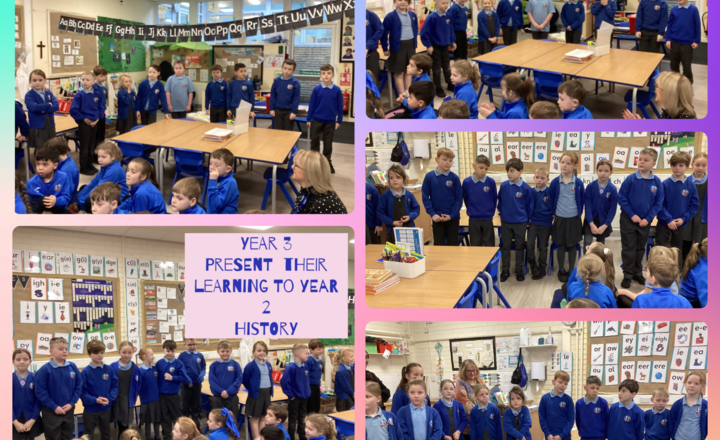
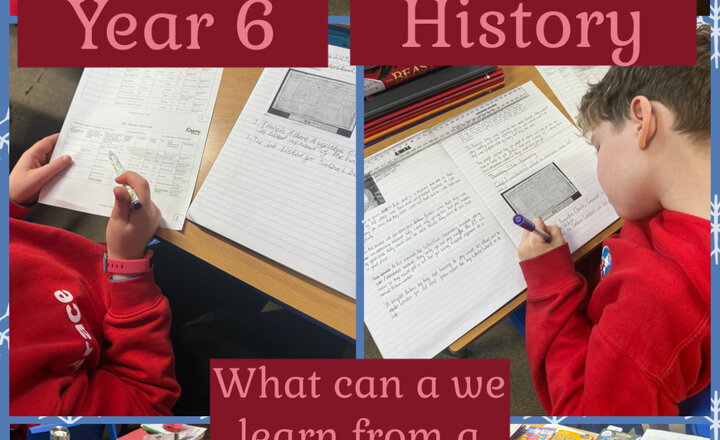
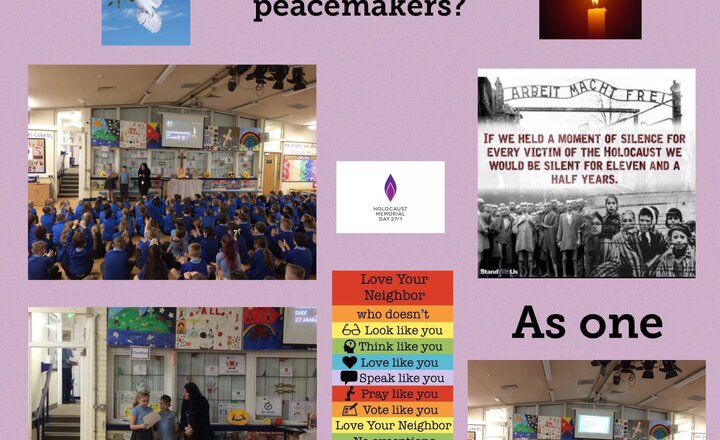
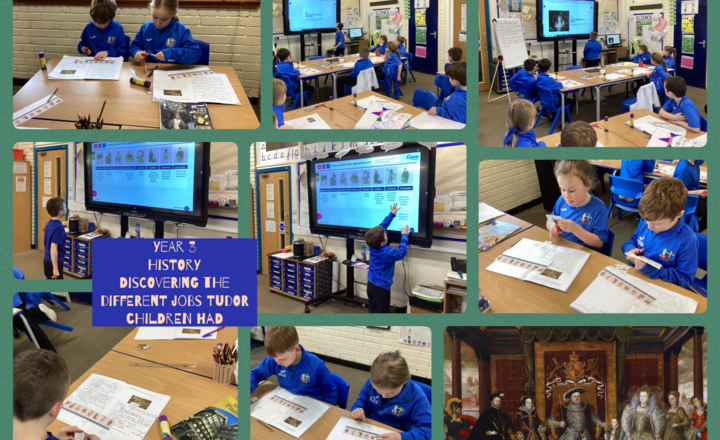
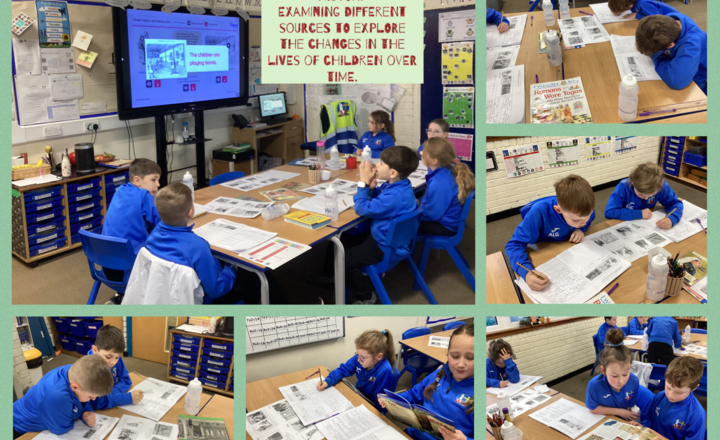
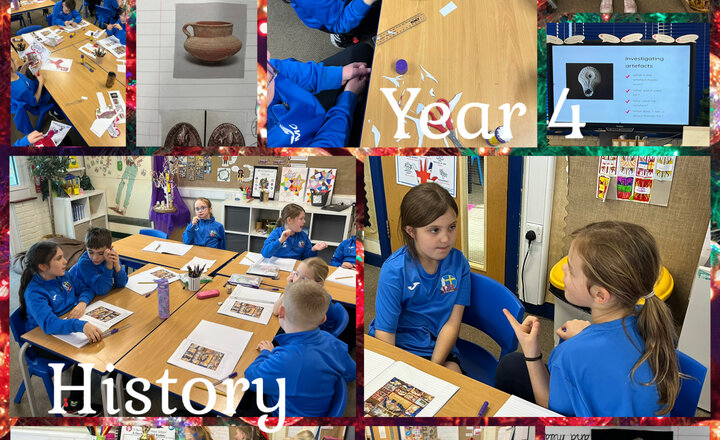

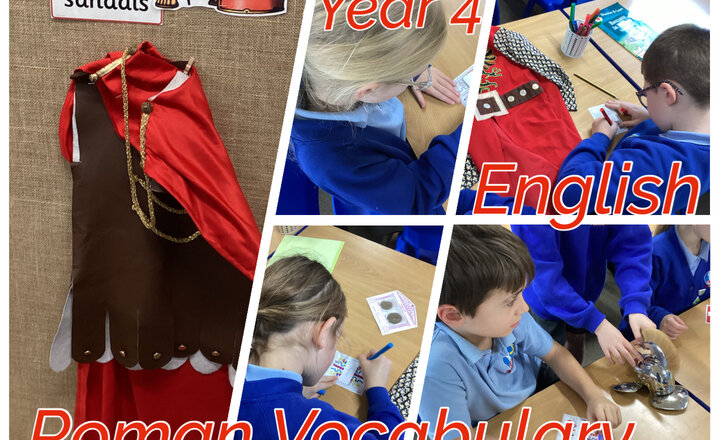
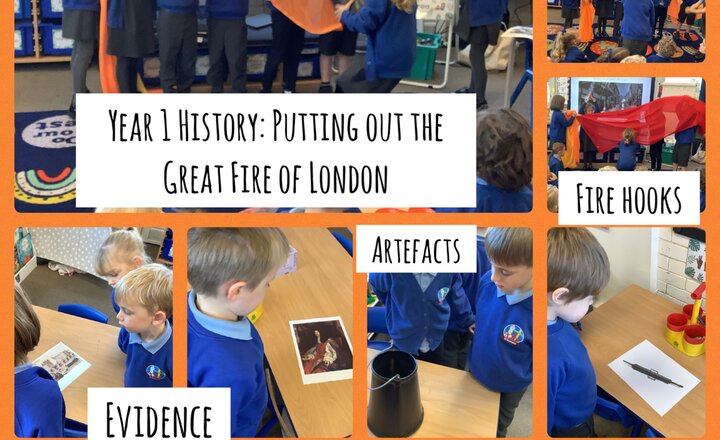
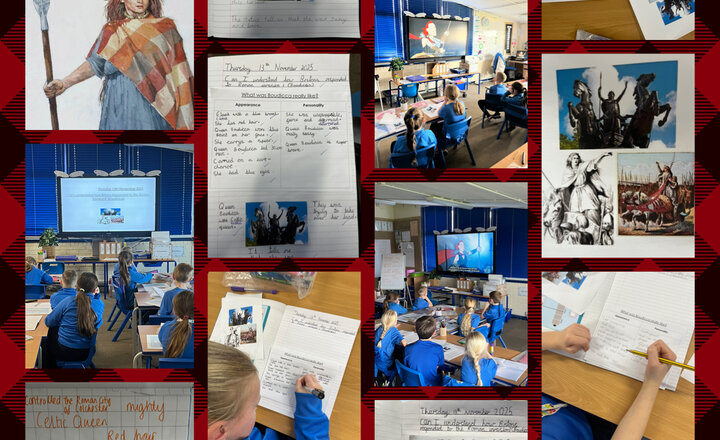
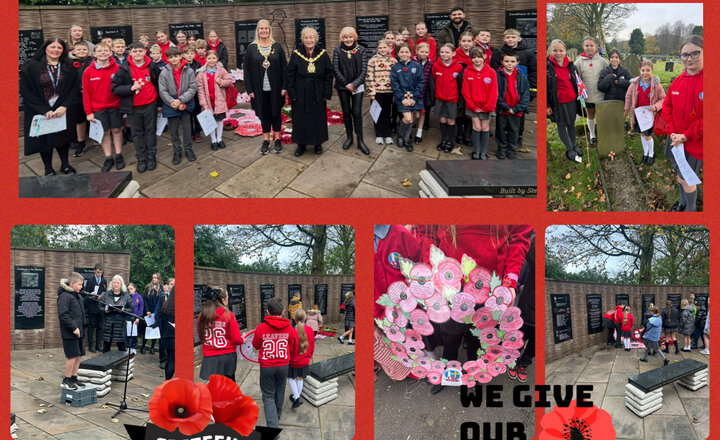

.jpeg)
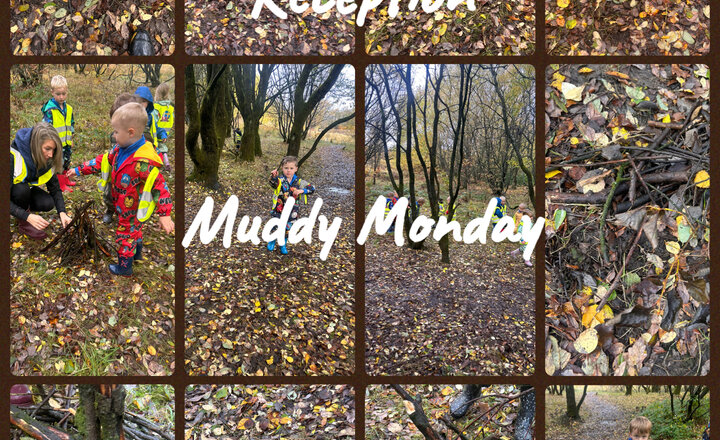
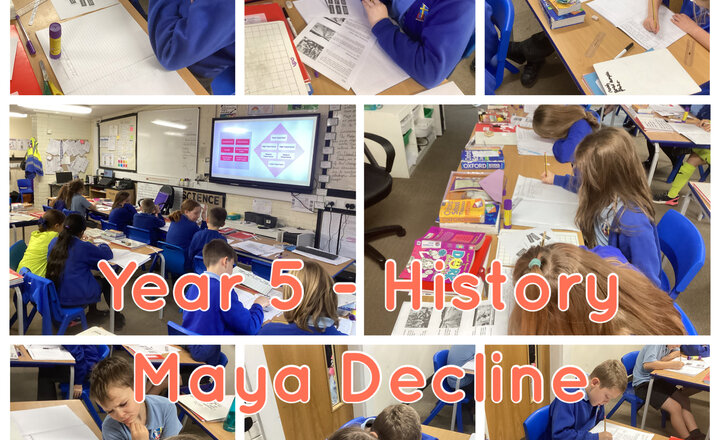
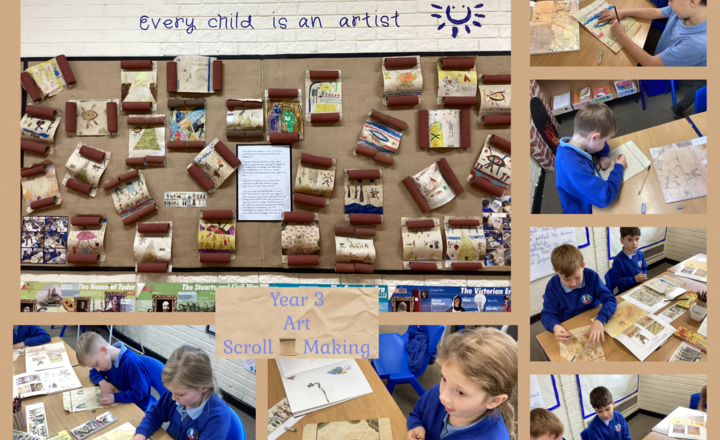
.jpeg)
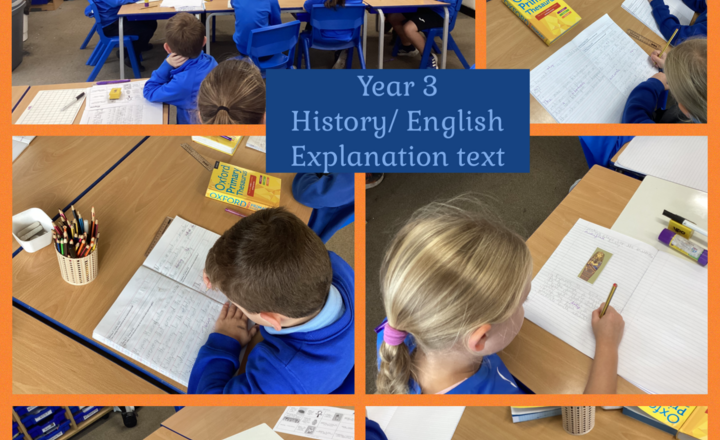
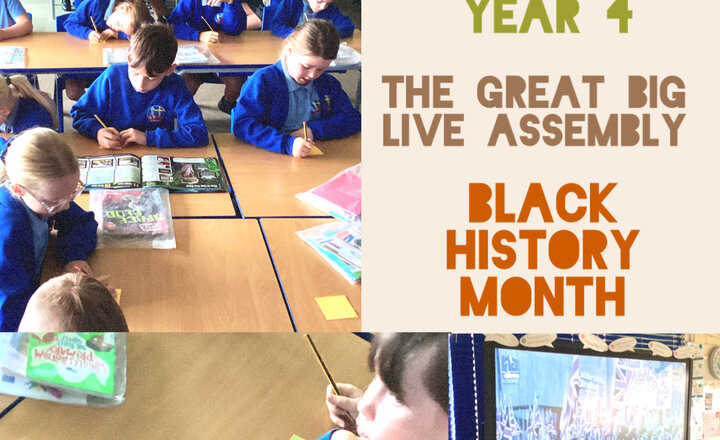
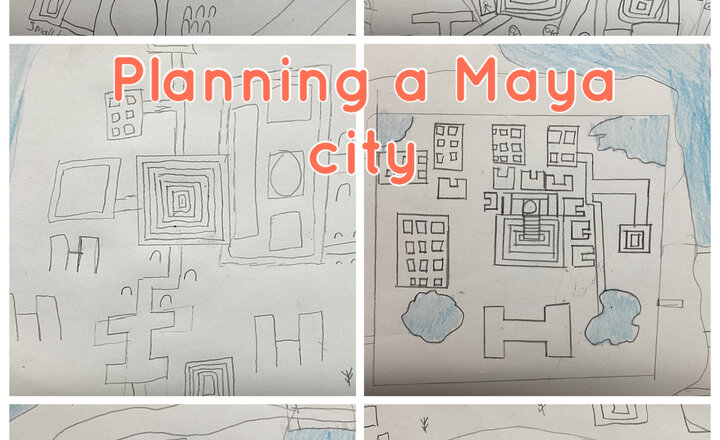
.png)
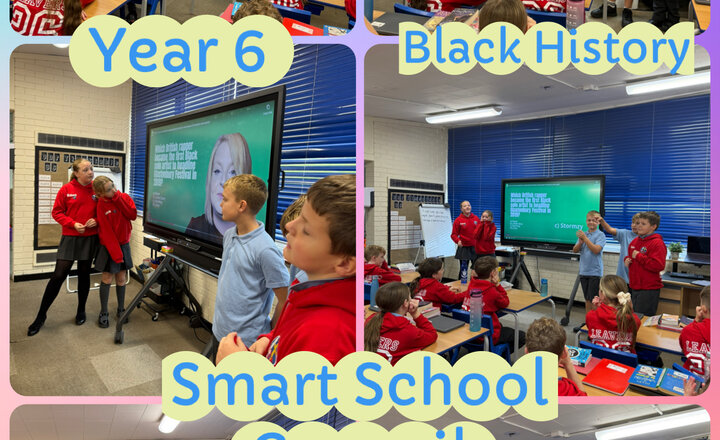
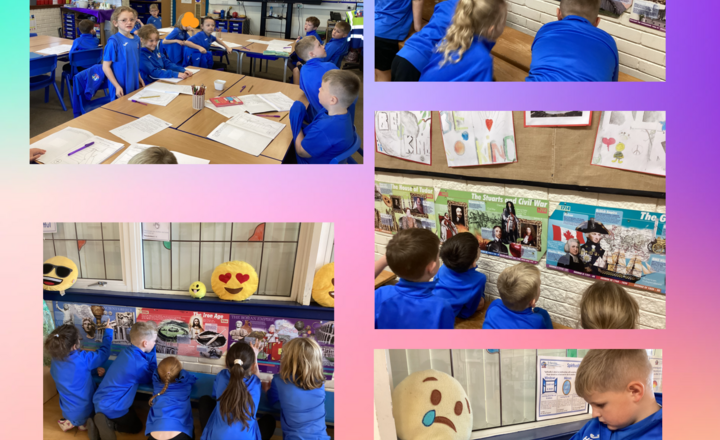
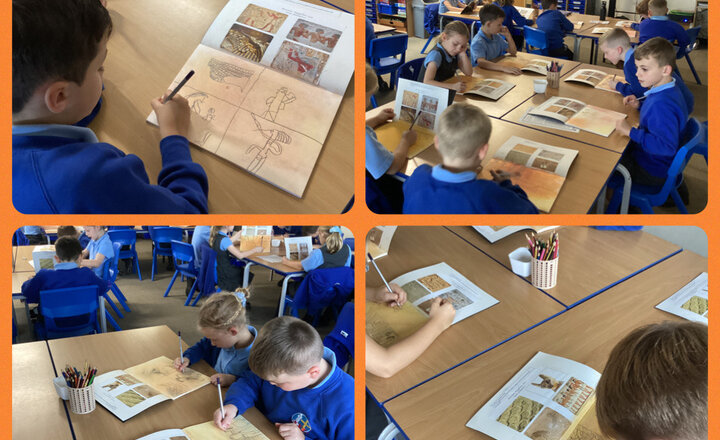
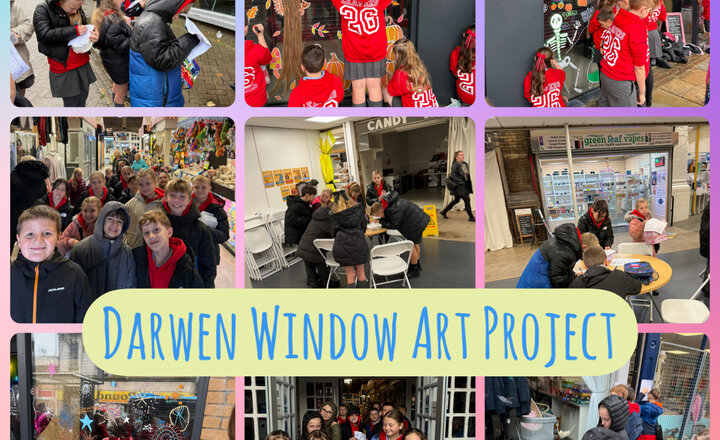
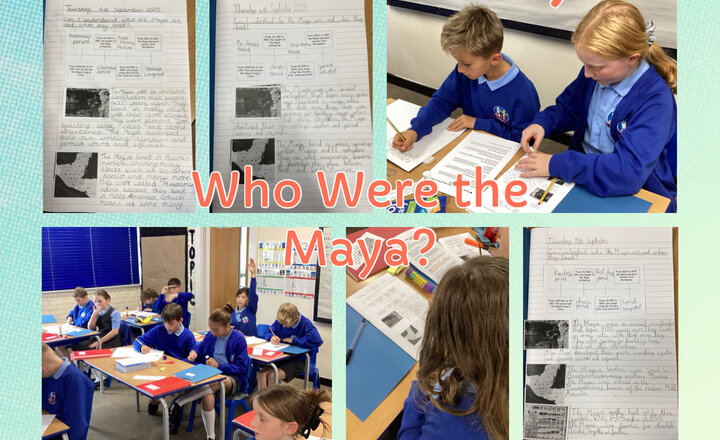
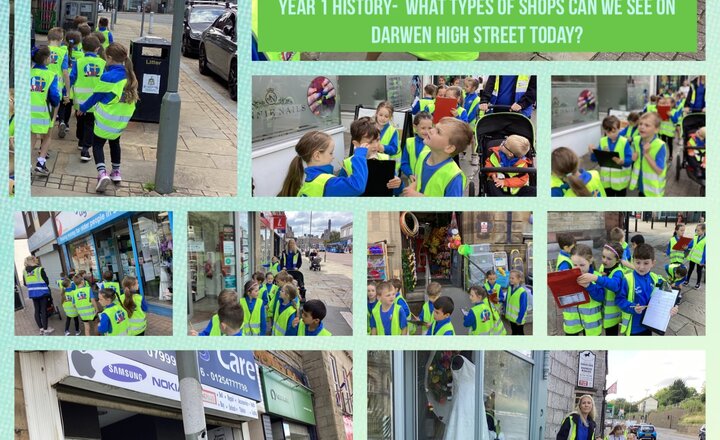

.png)
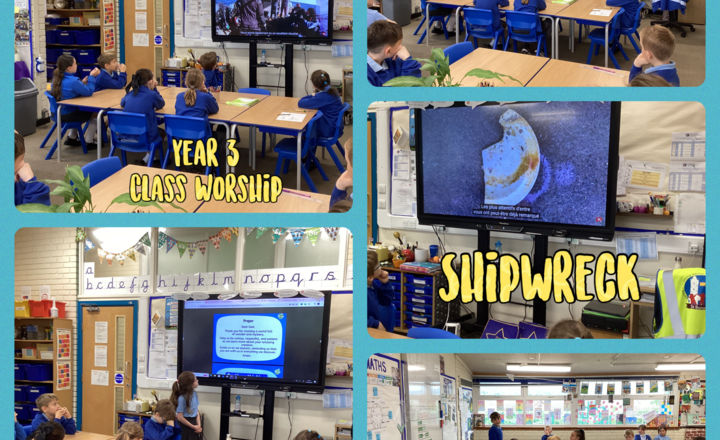
.png)
.png)
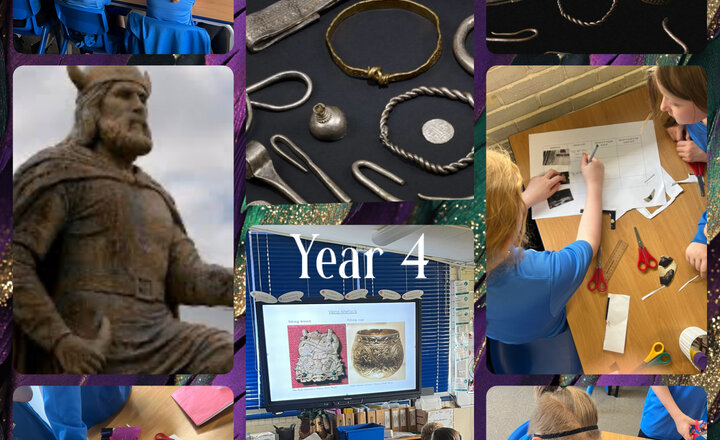
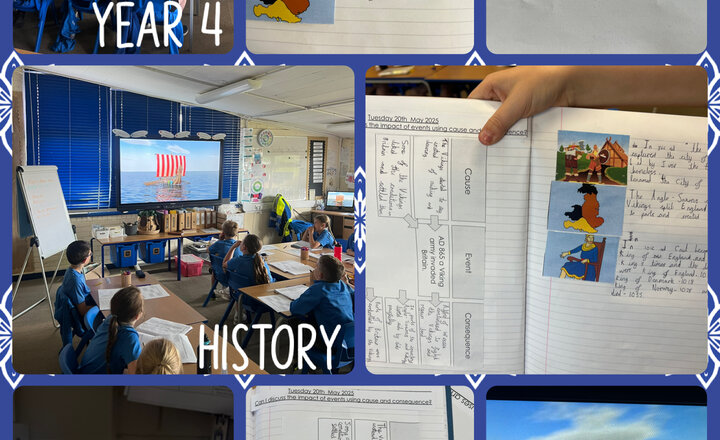
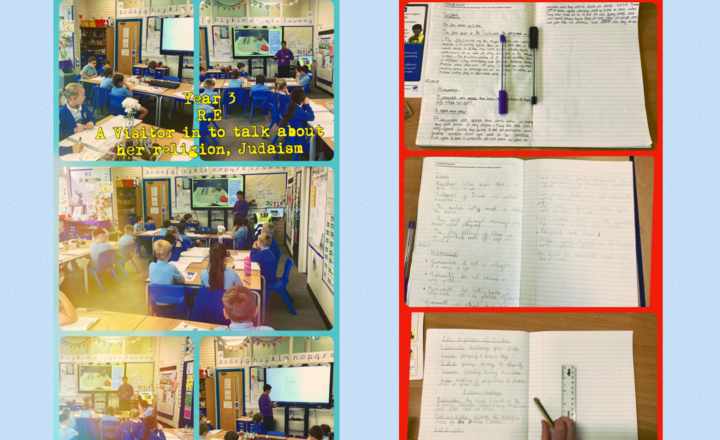
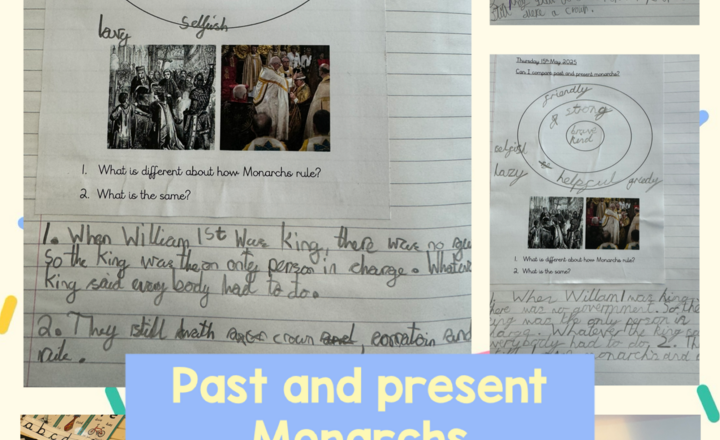
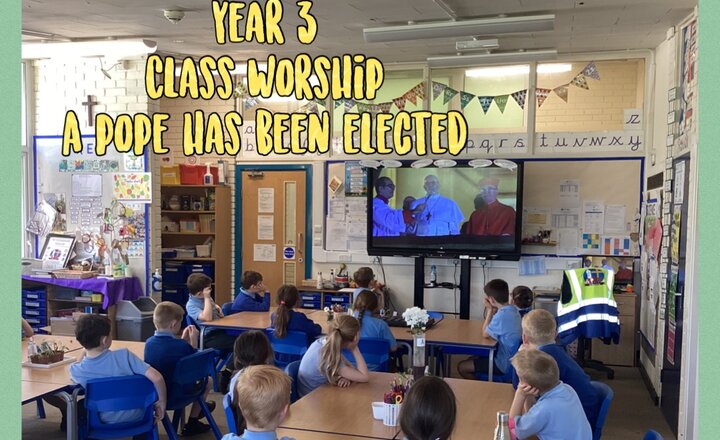
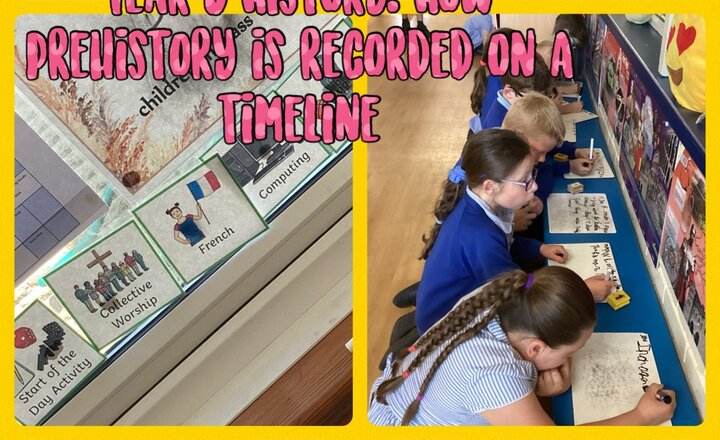
.png)
.jpeg)
.png)
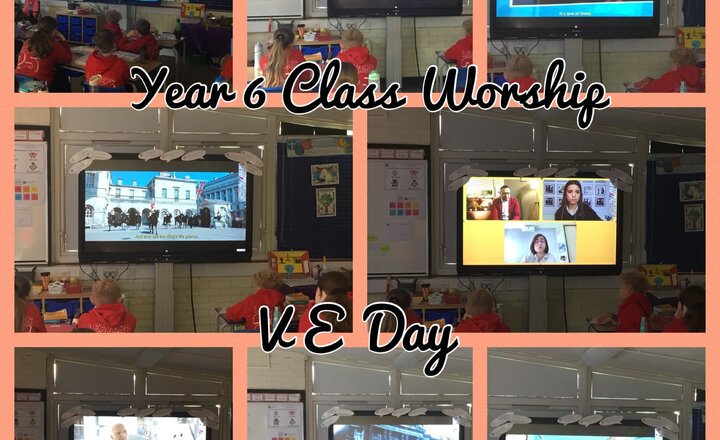
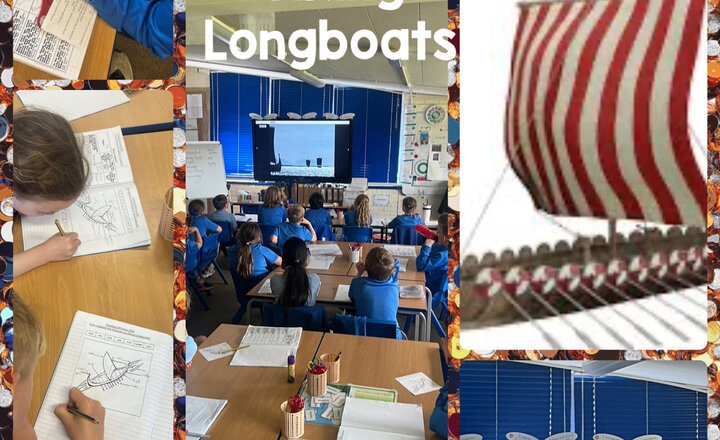
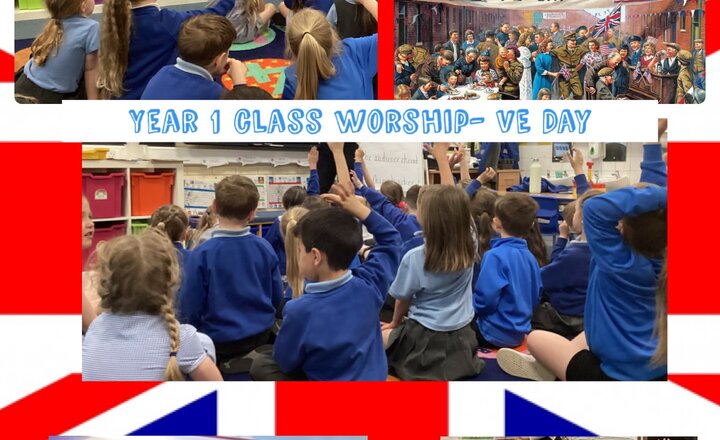
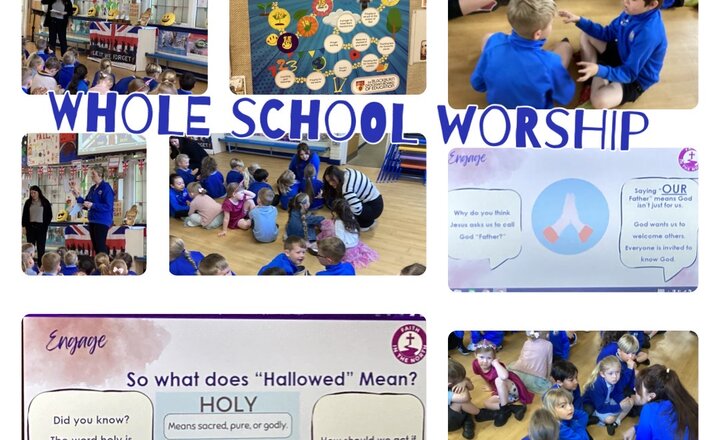
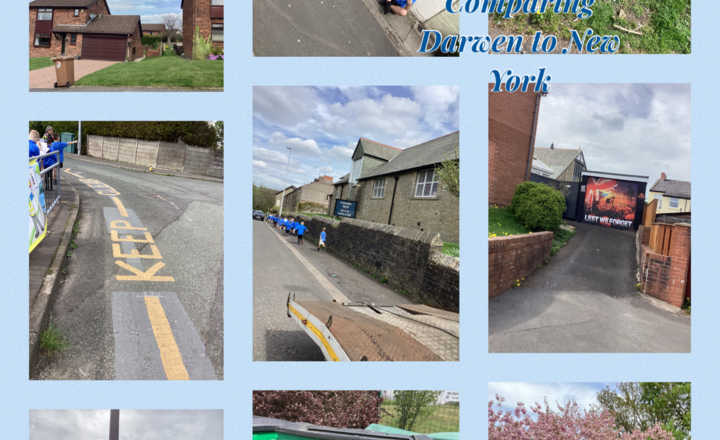
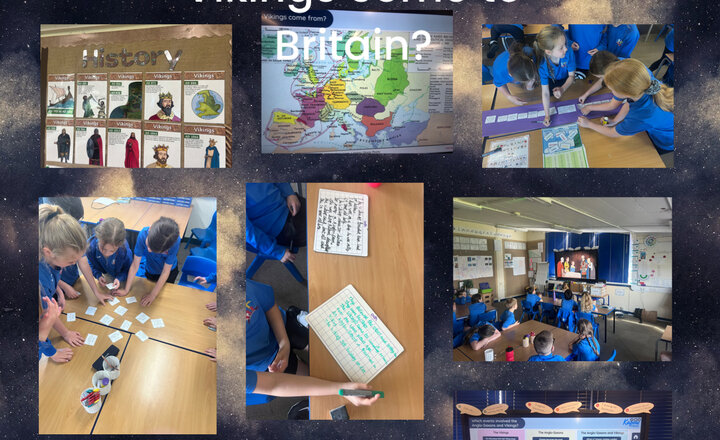
.jpeg)
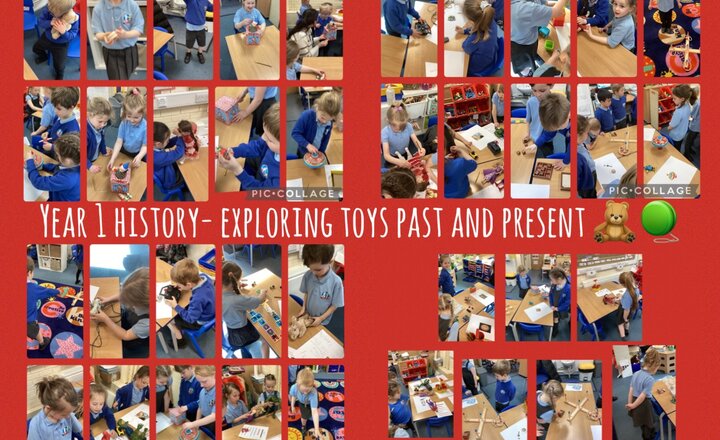
.jpeg)
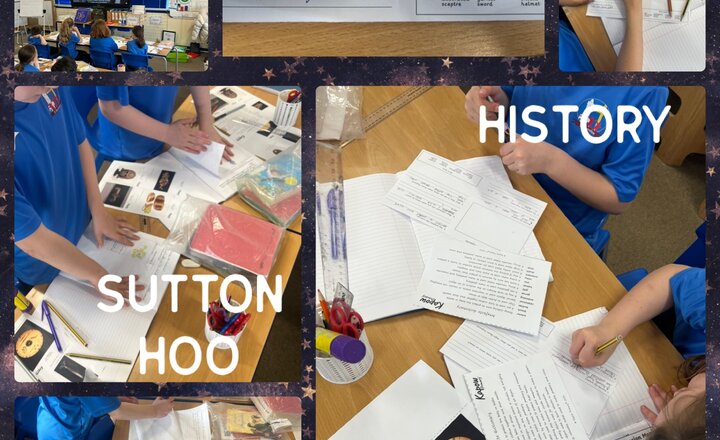
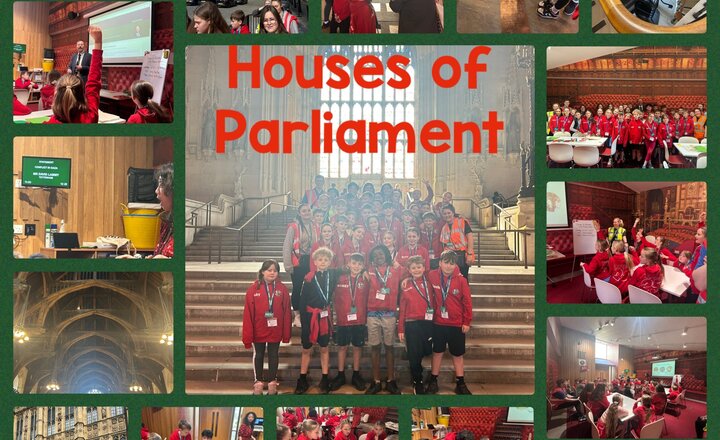
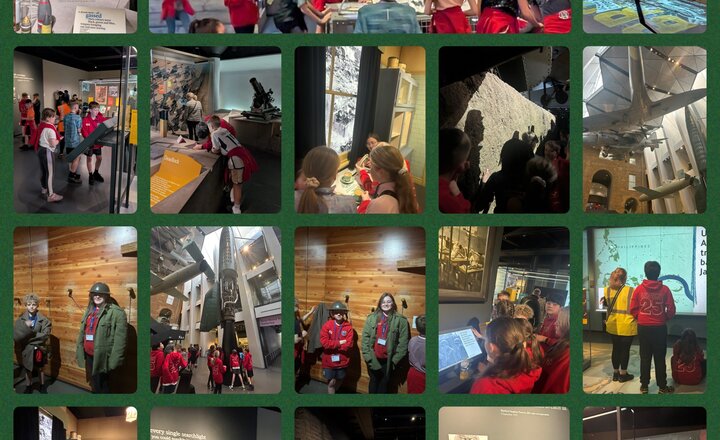
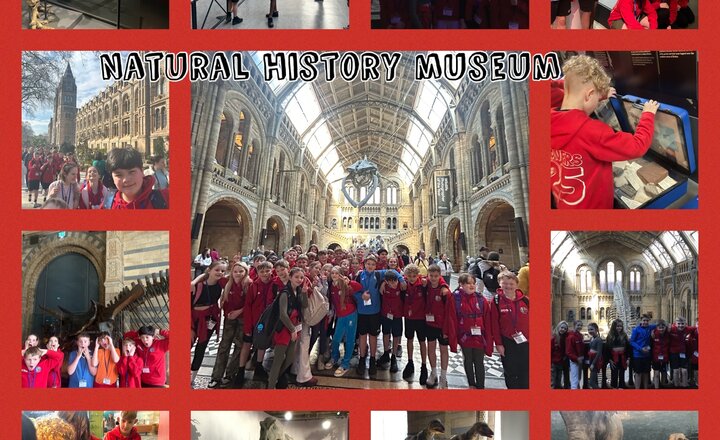
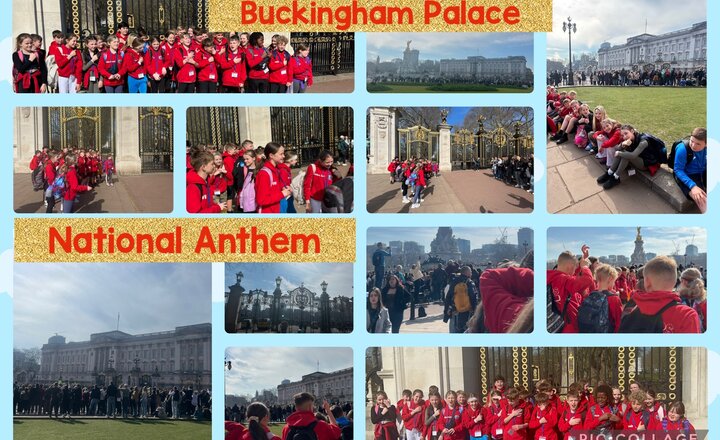
.jpeg)

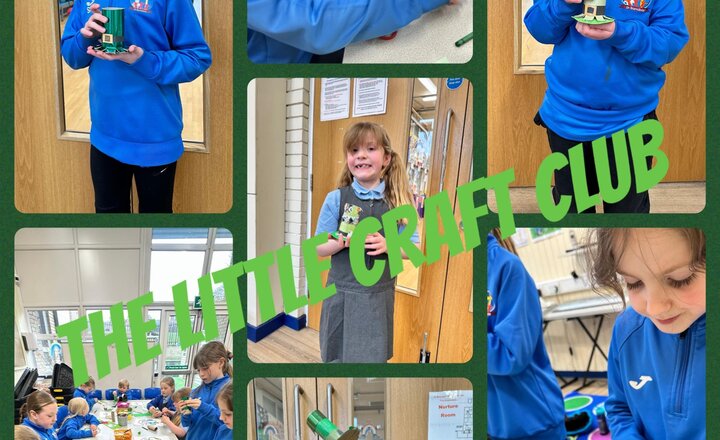
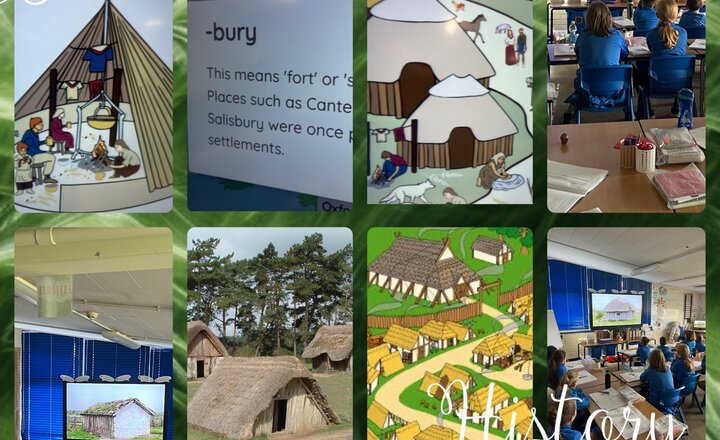
.jpg)
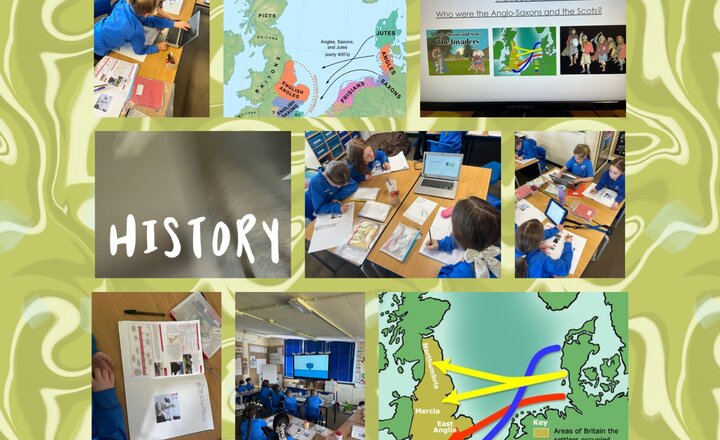
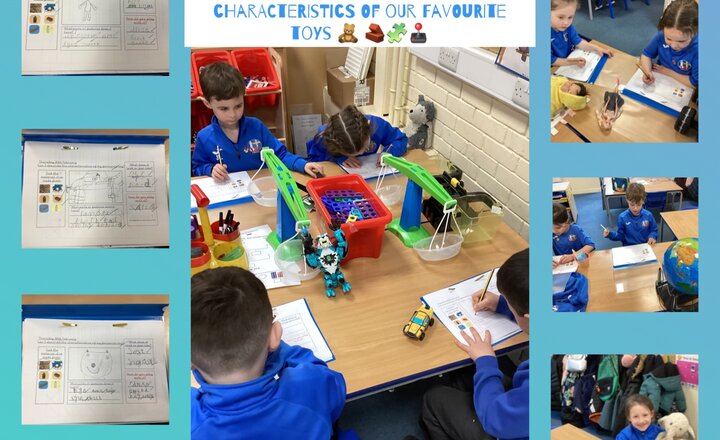
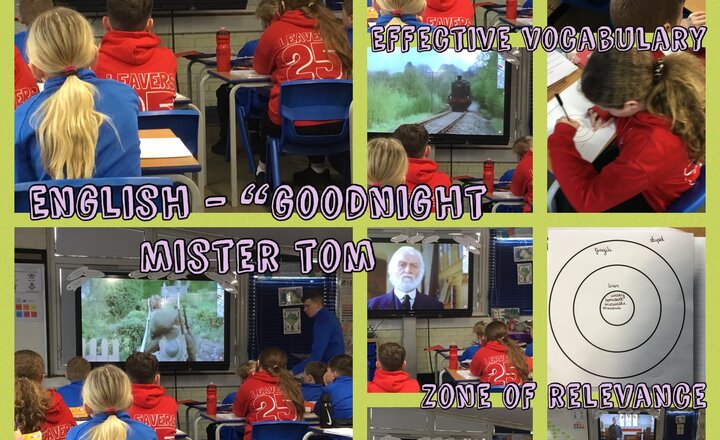
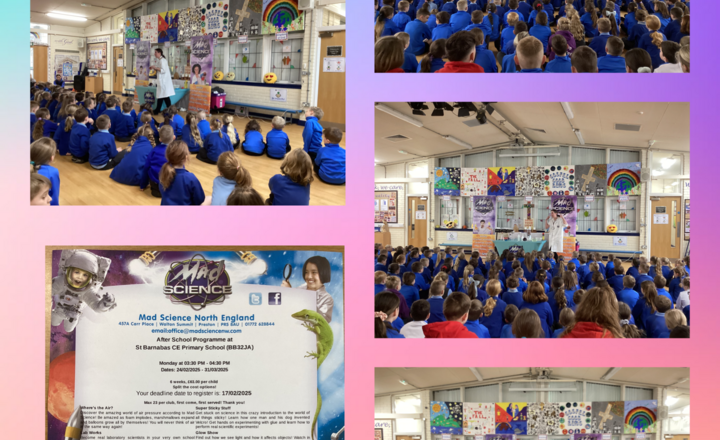
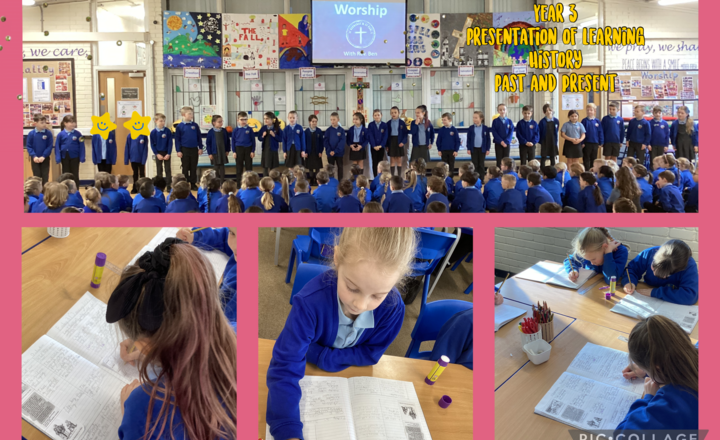
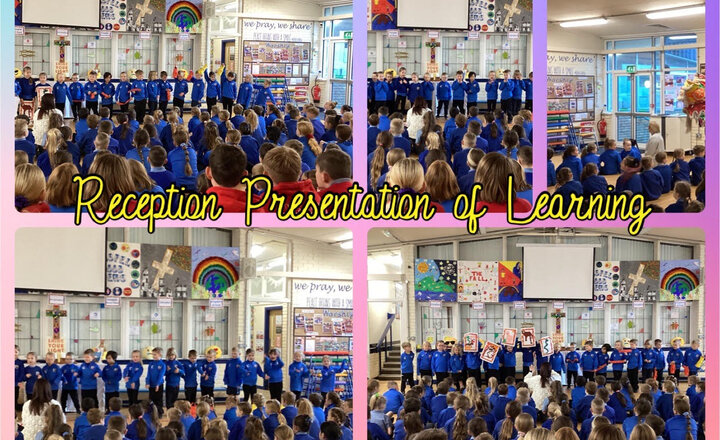
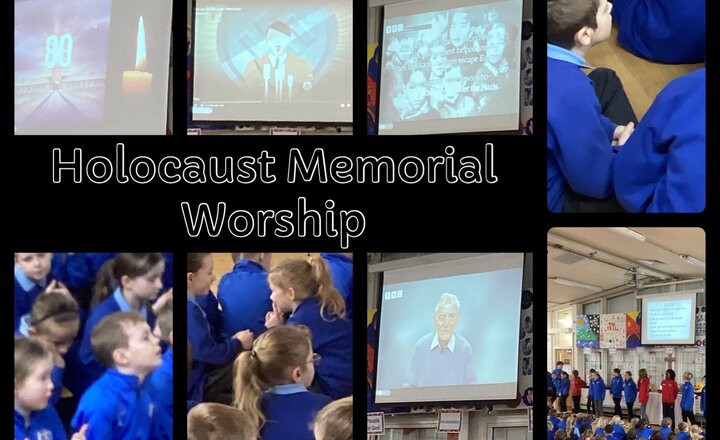
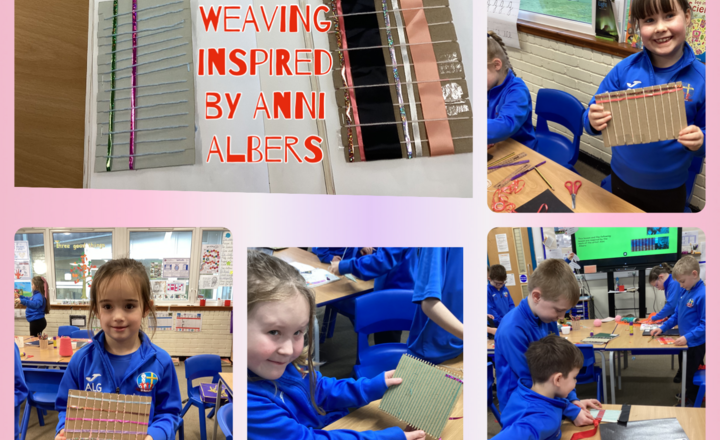
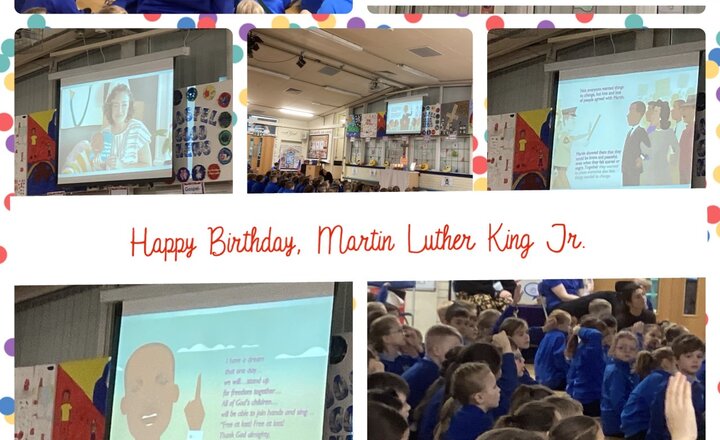
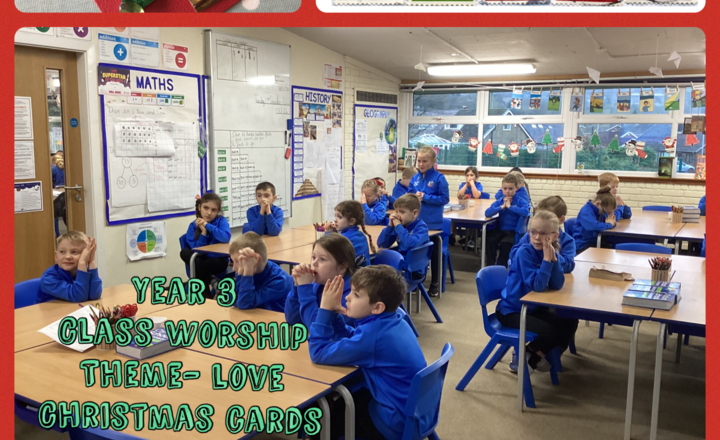
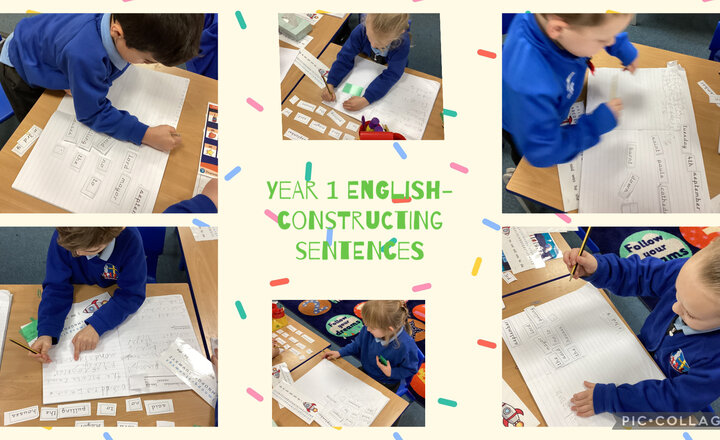
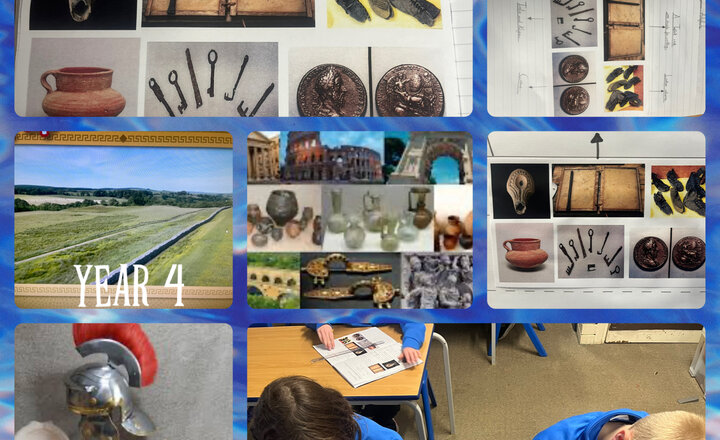
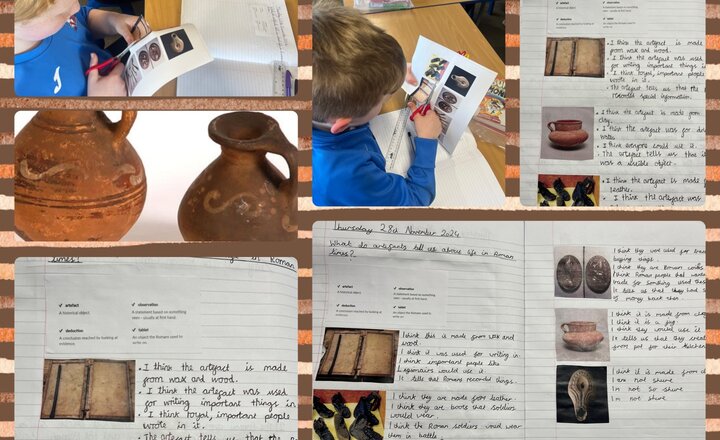
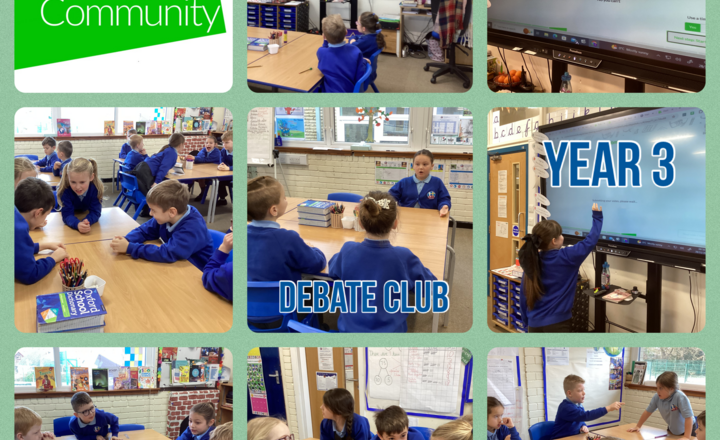
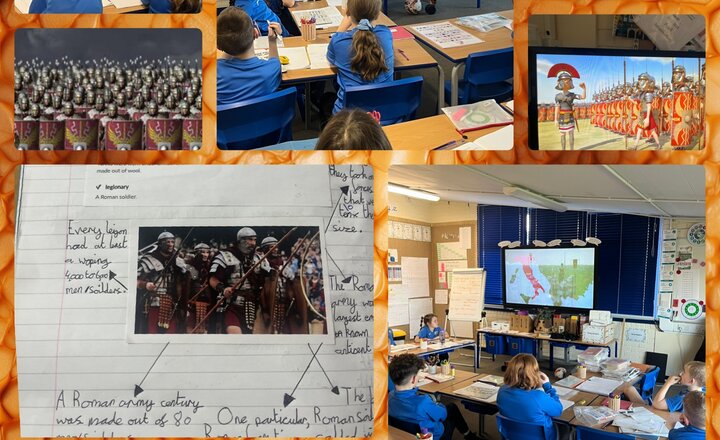
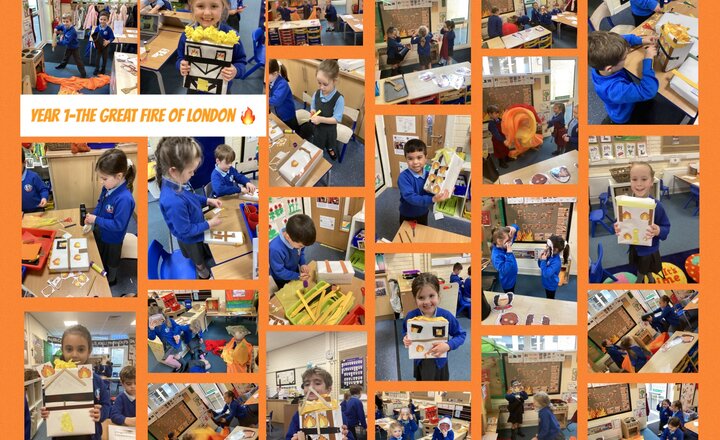
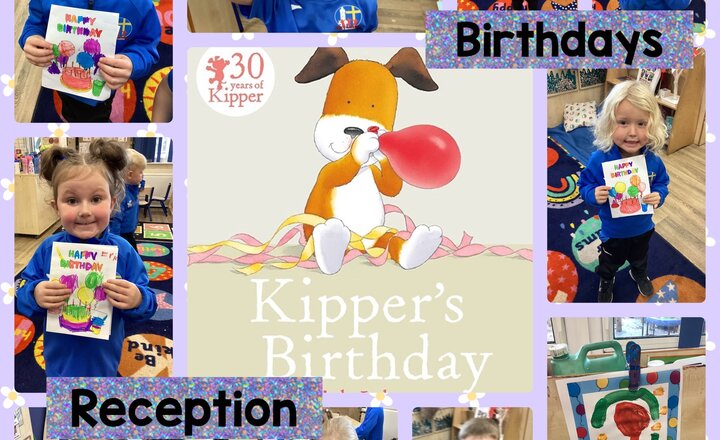
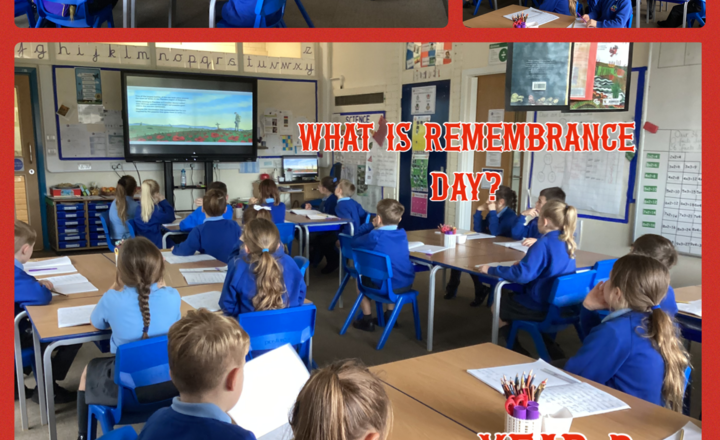
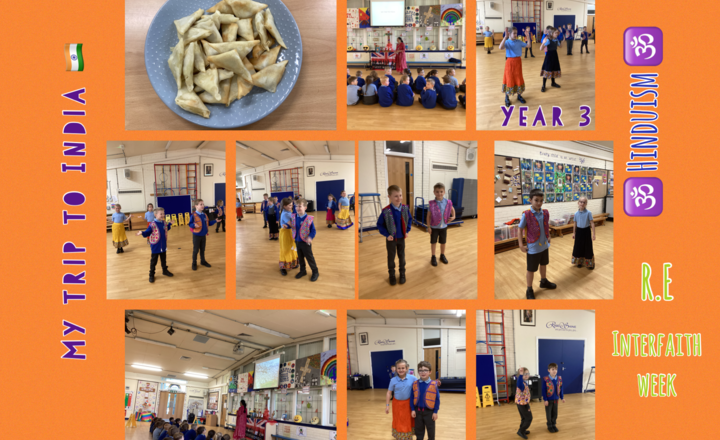
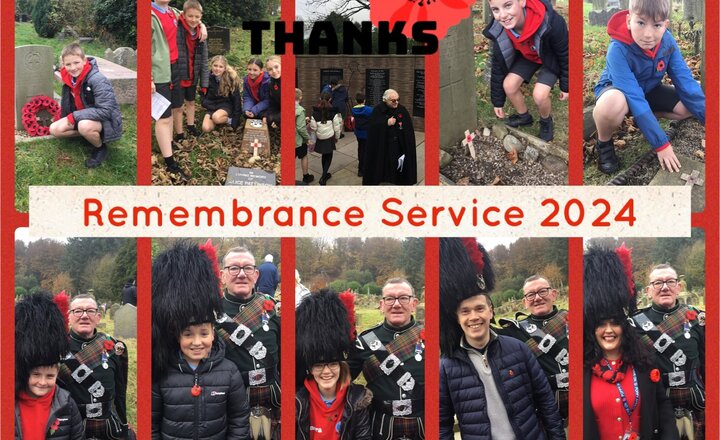
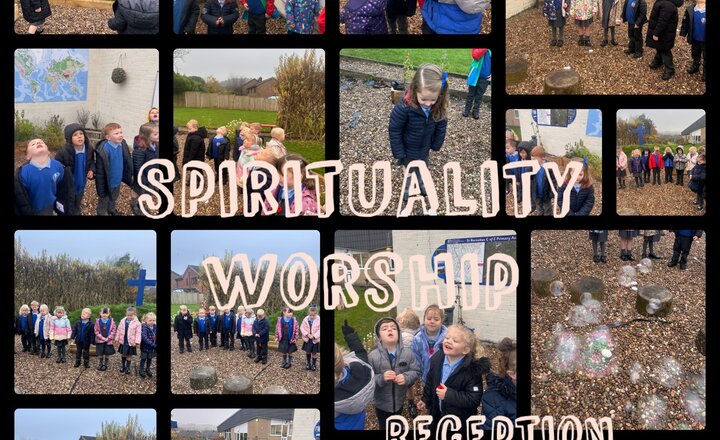
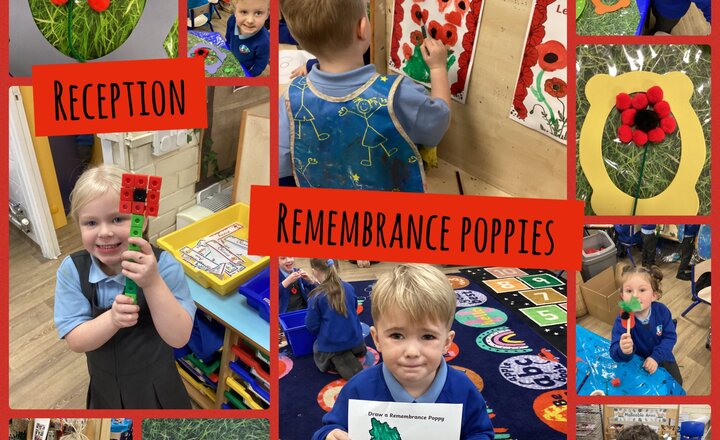
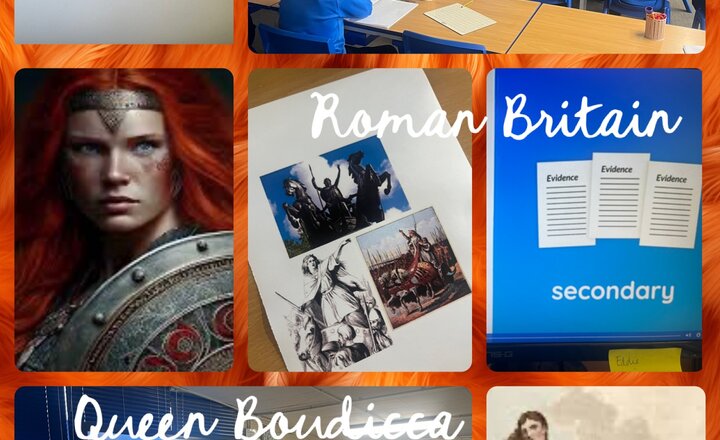
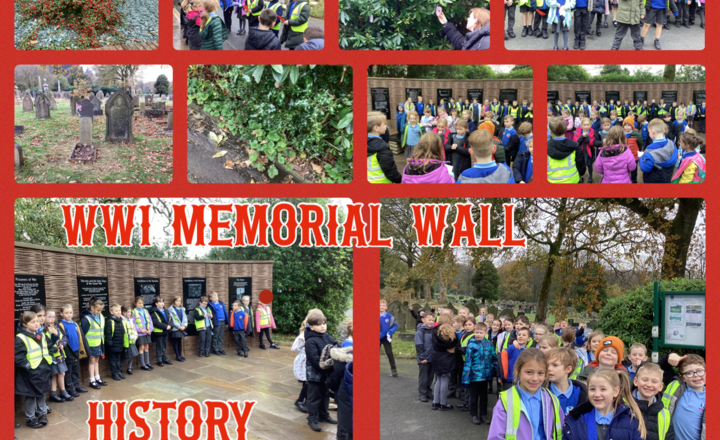
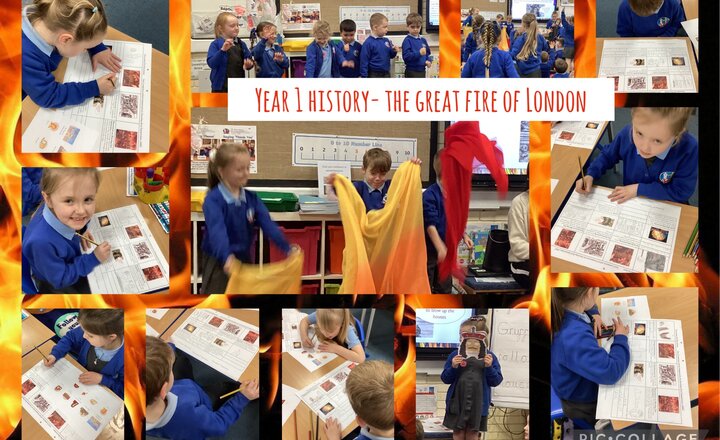
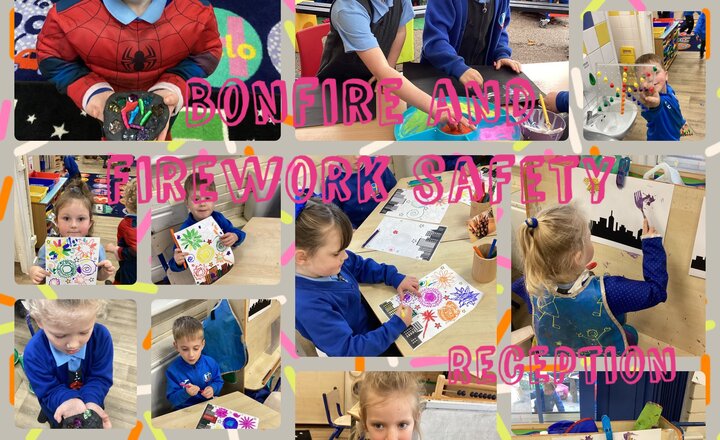
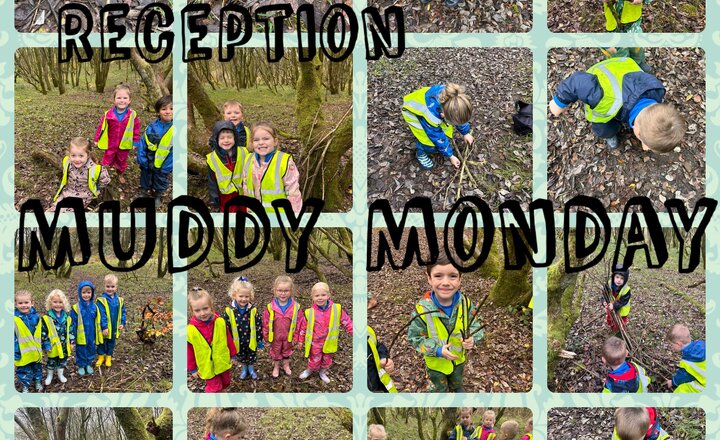
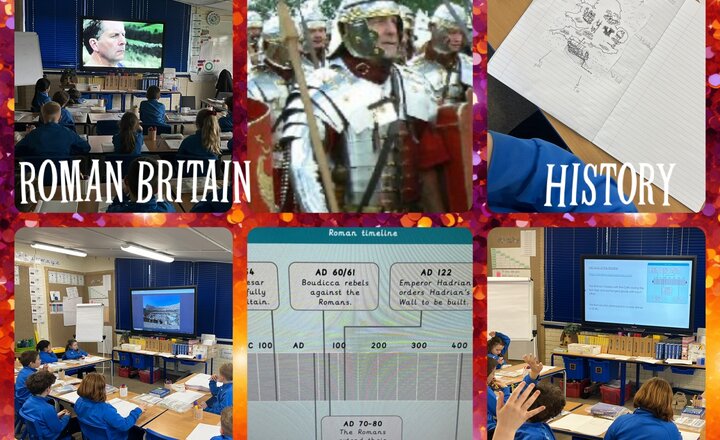
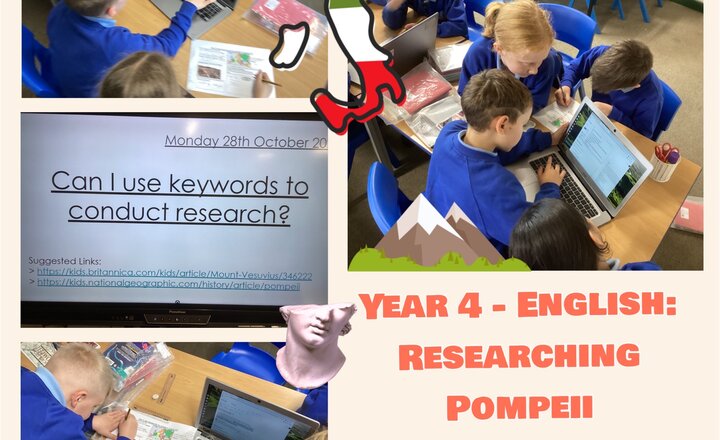
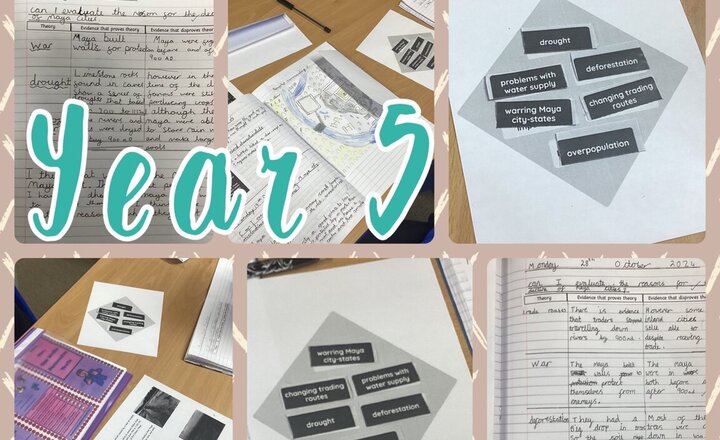
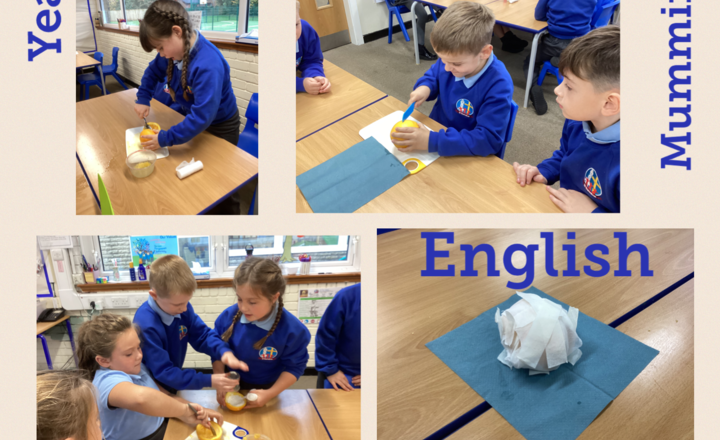

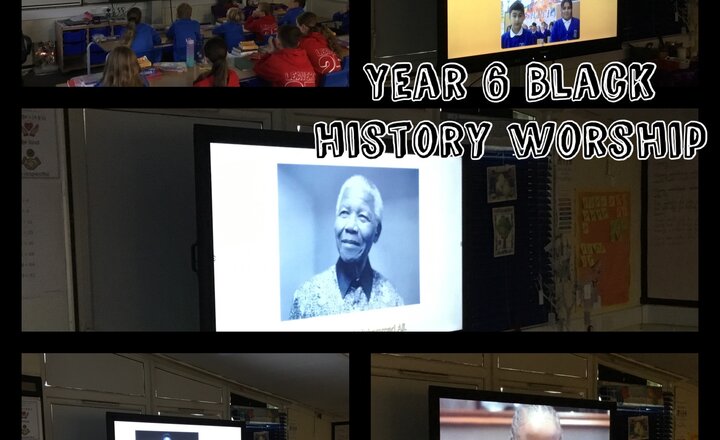
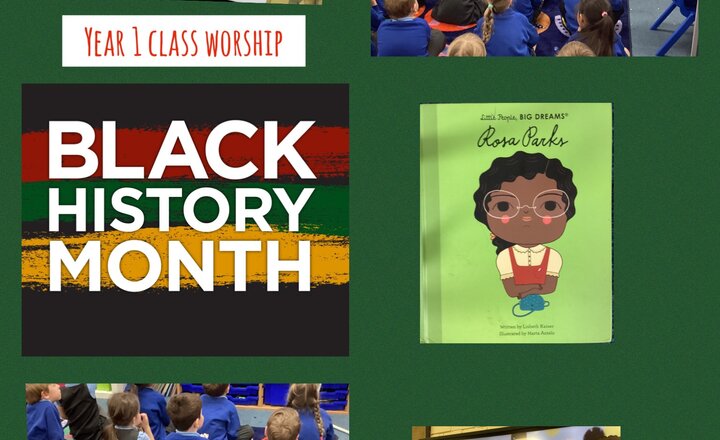
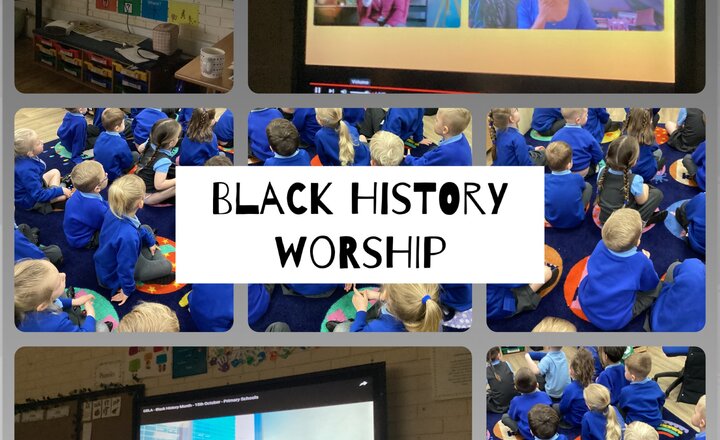
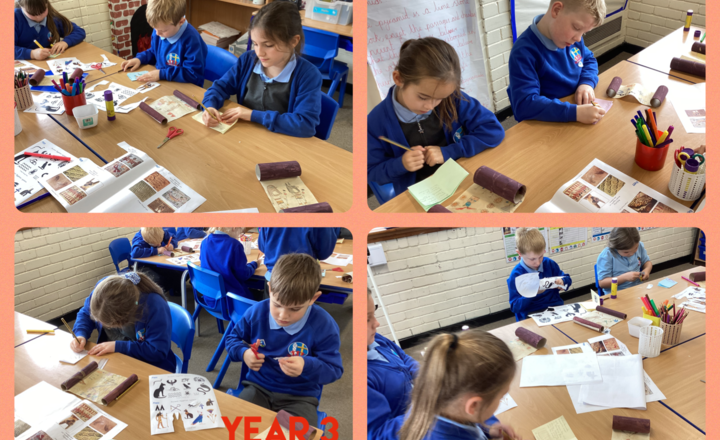
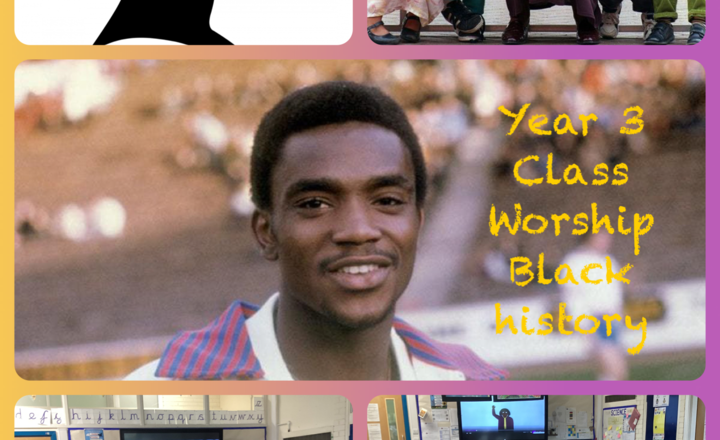

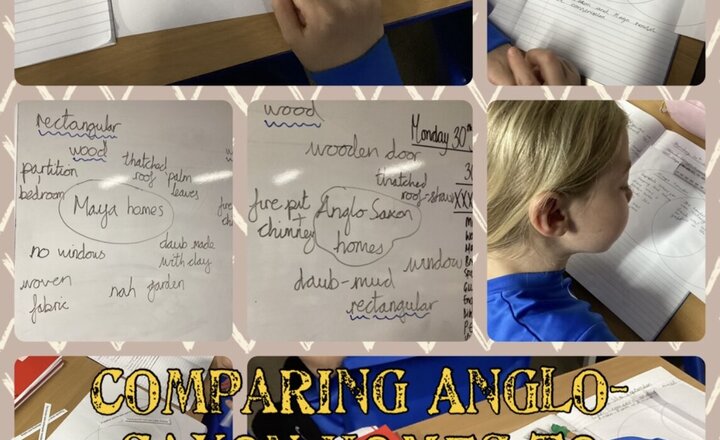
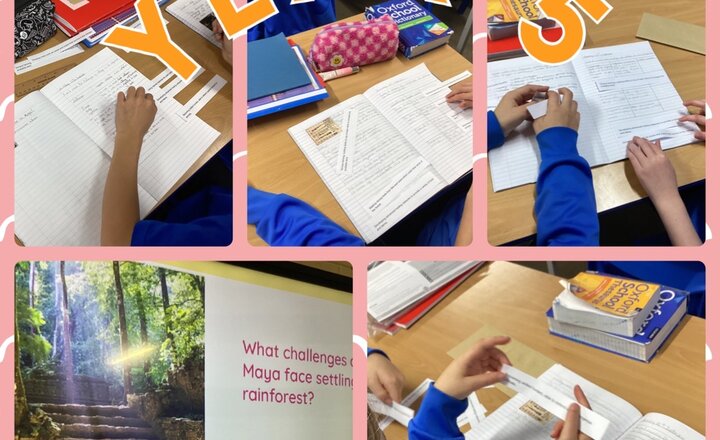
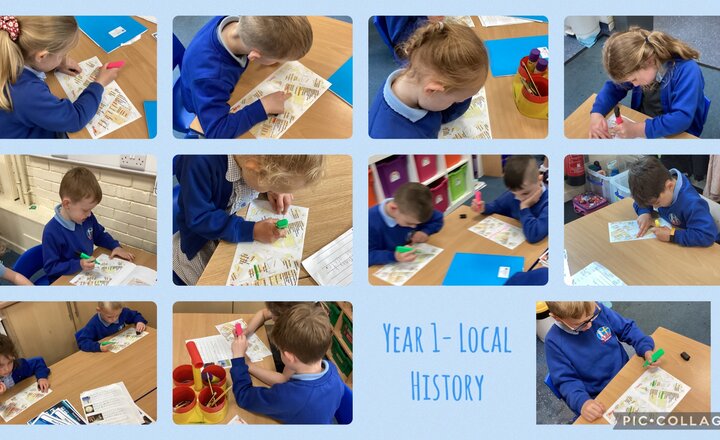

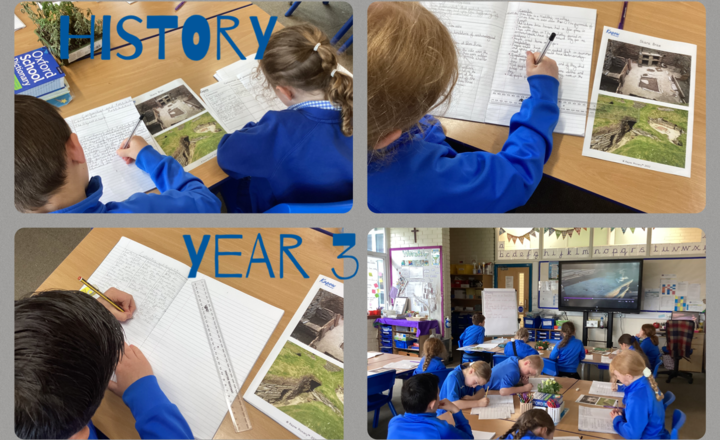
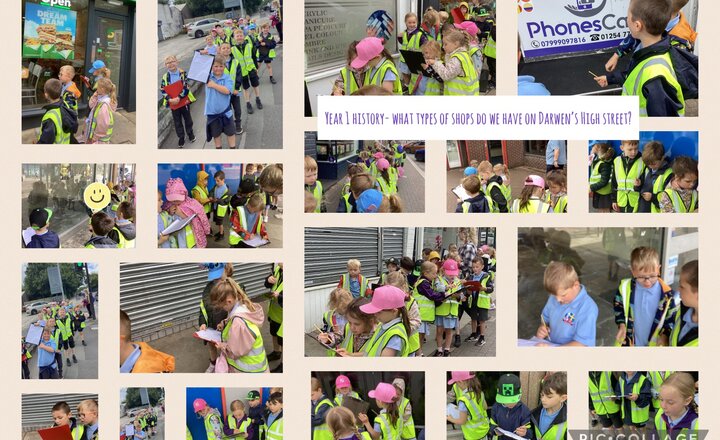
.png)
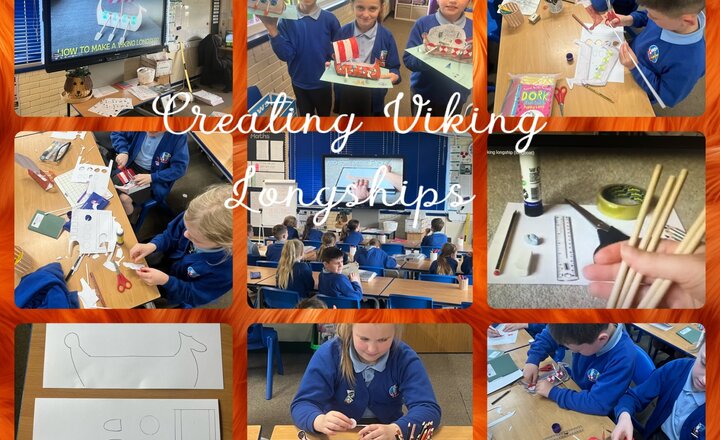
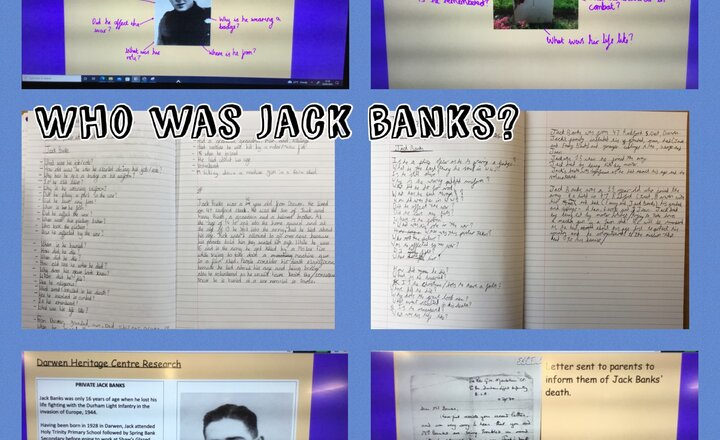
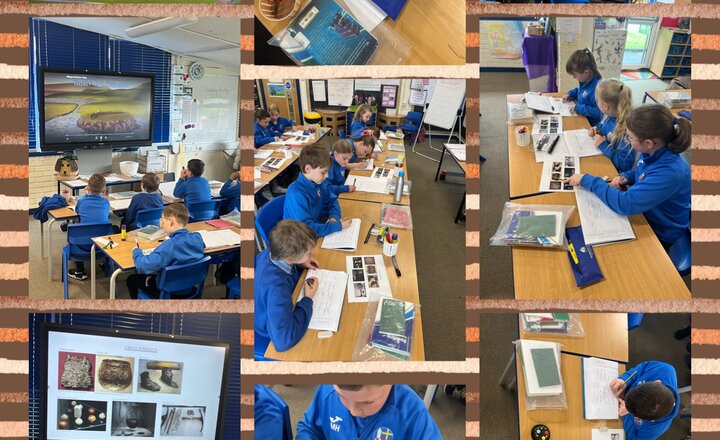
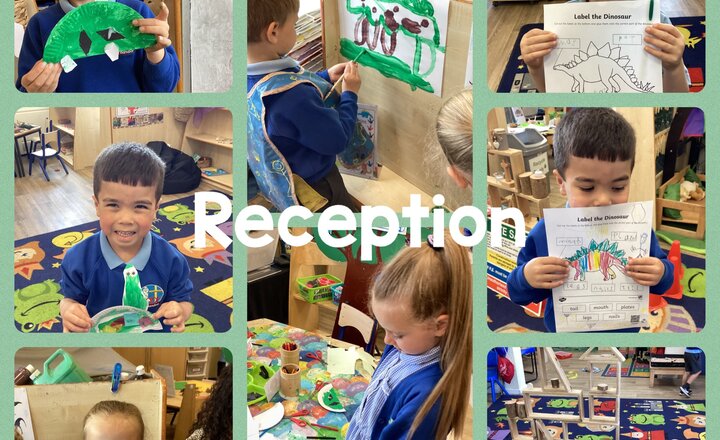
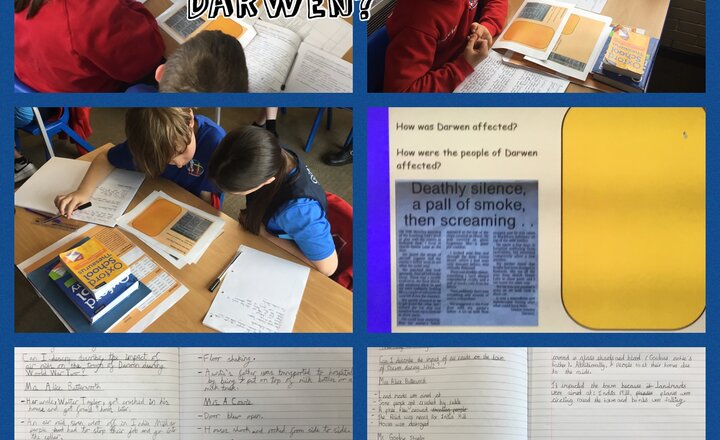
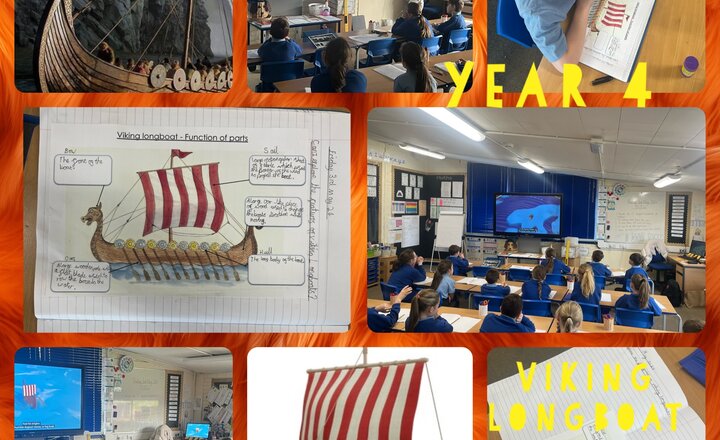
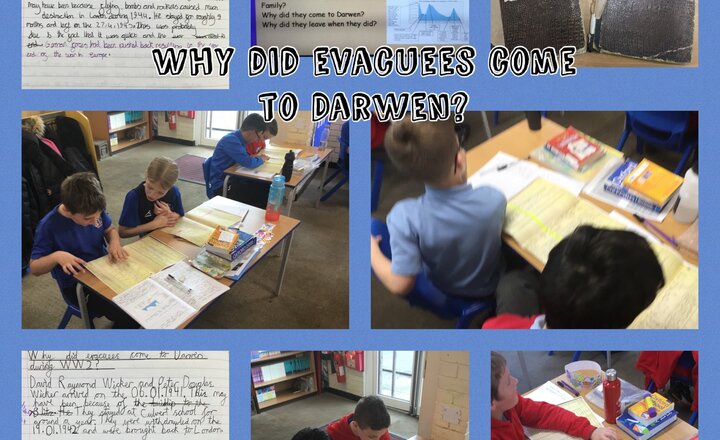
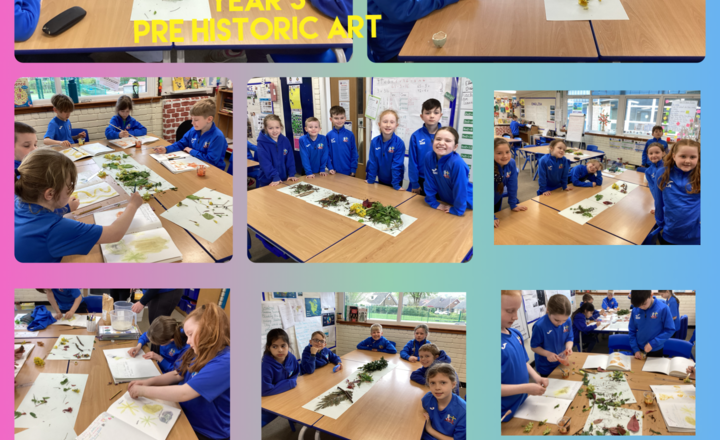
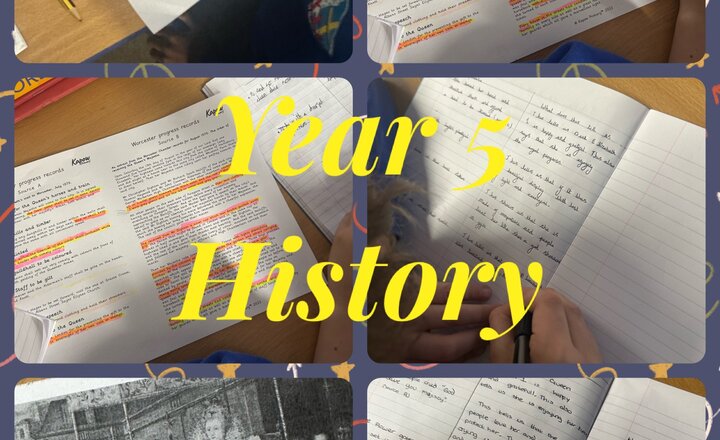
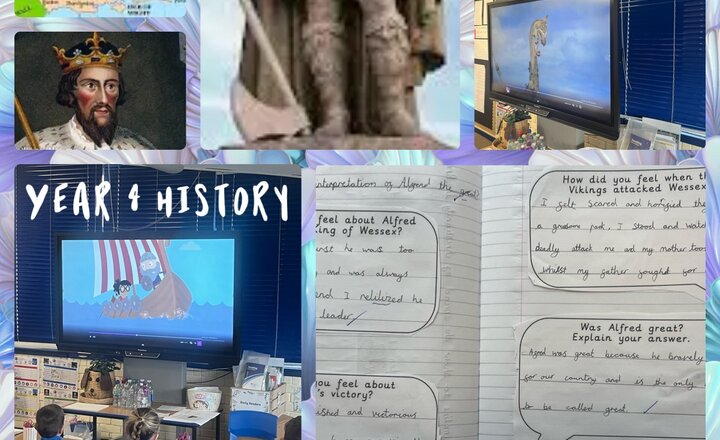
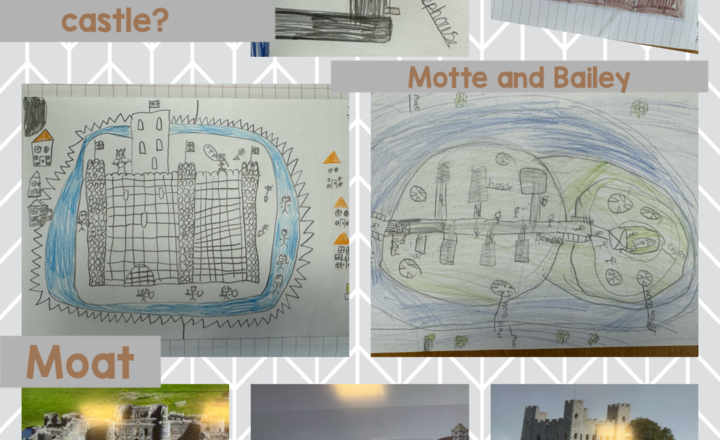
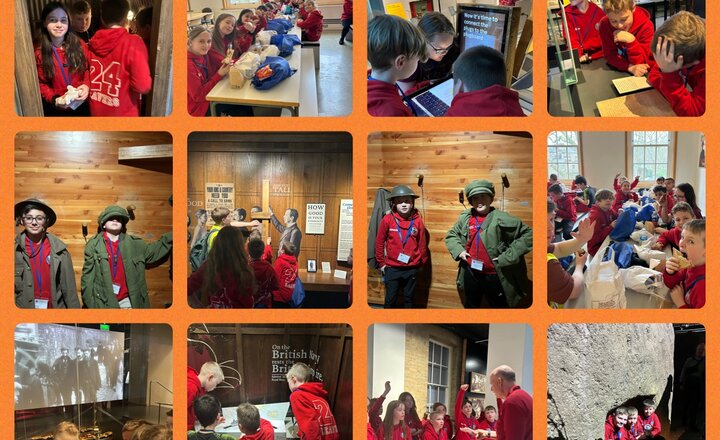
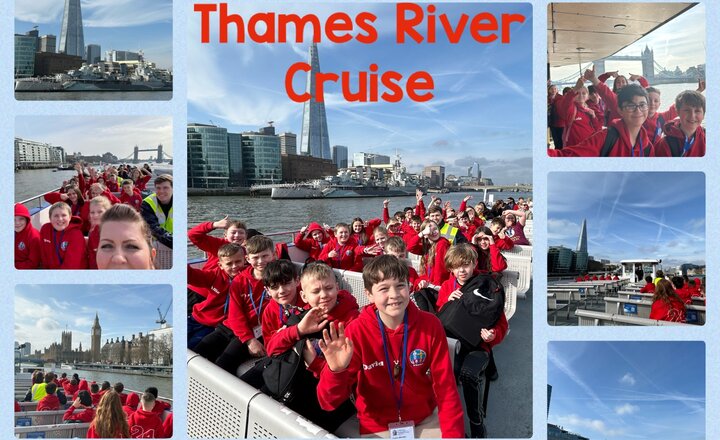
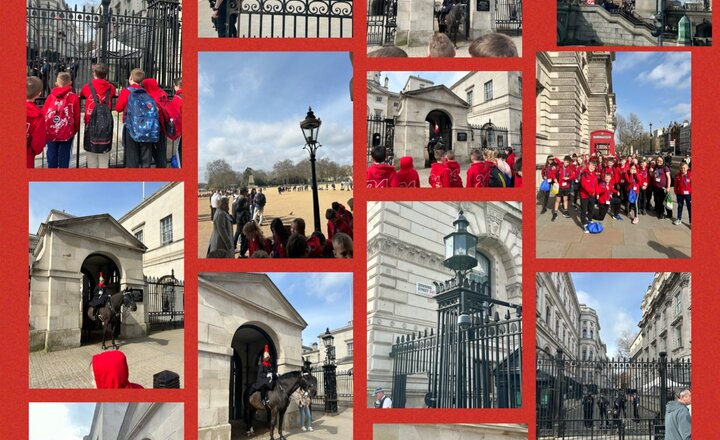
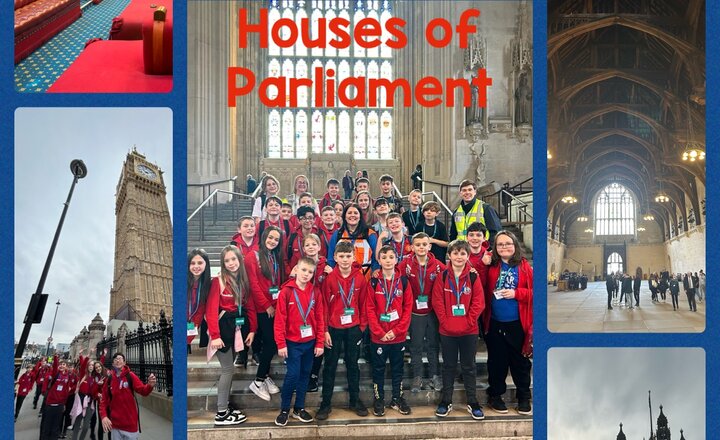
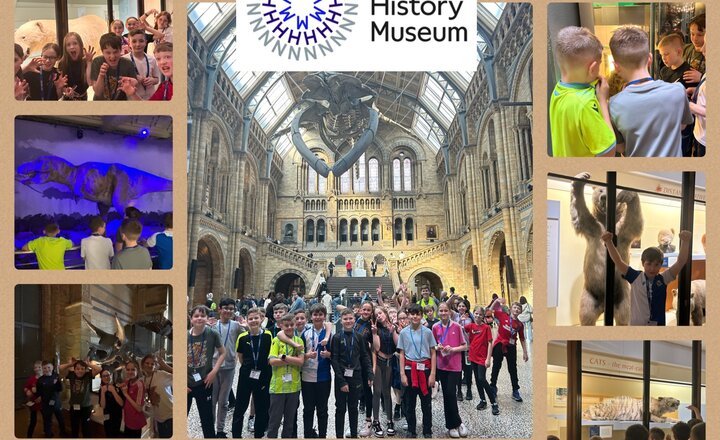
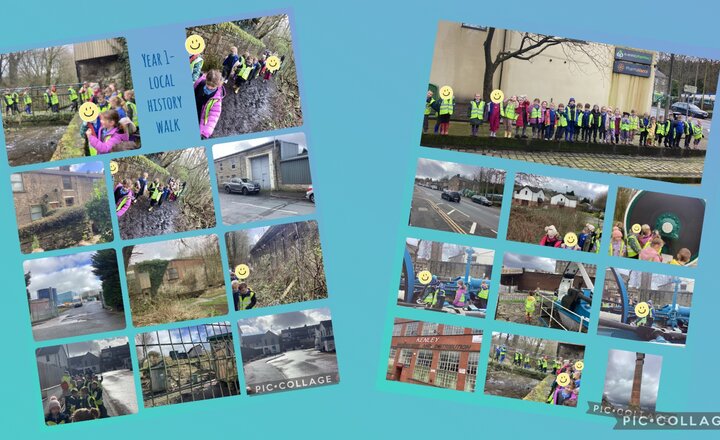
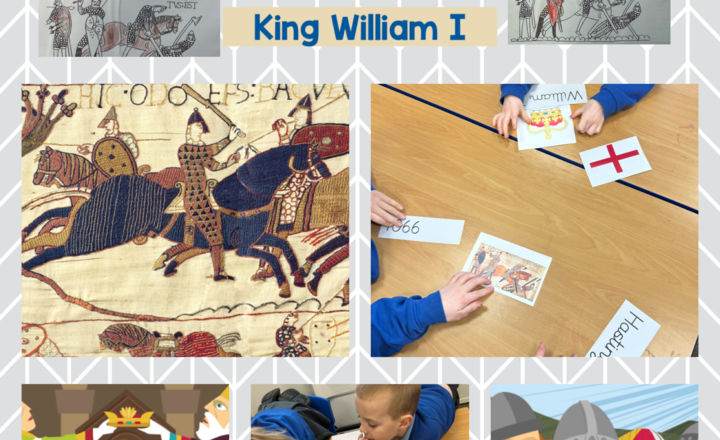
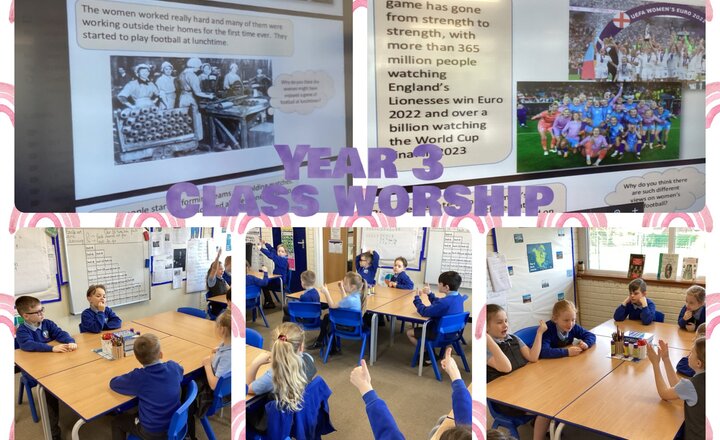
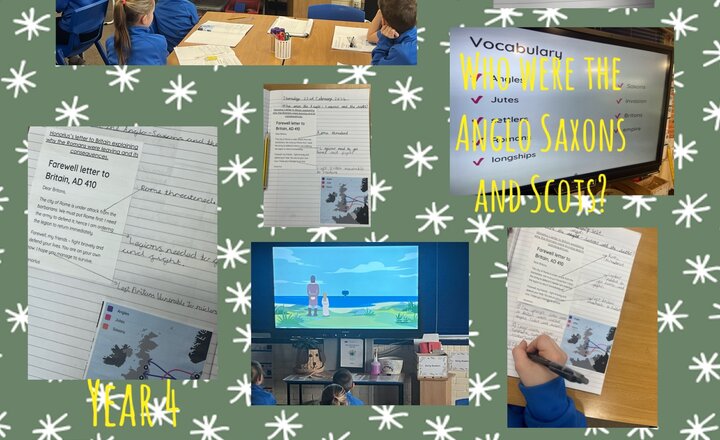
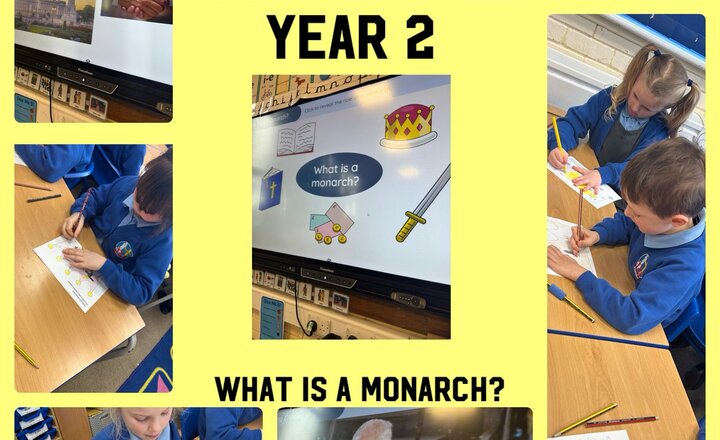
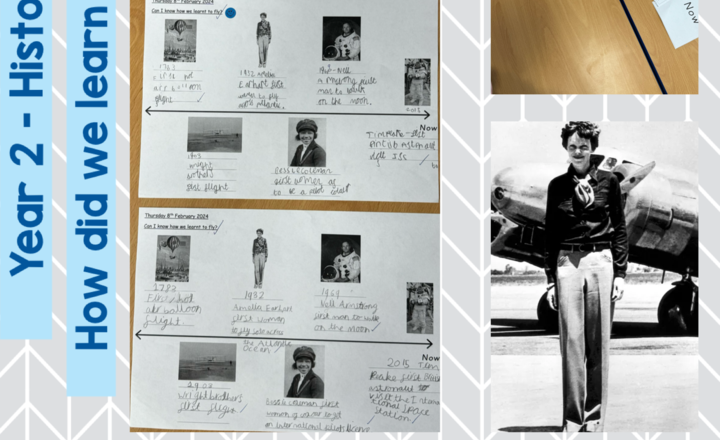
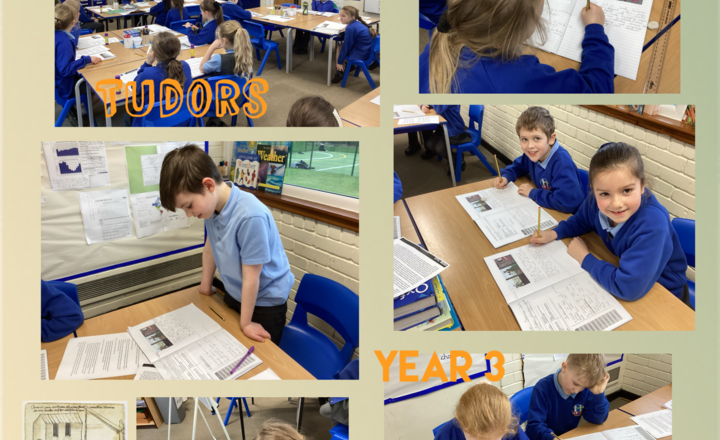
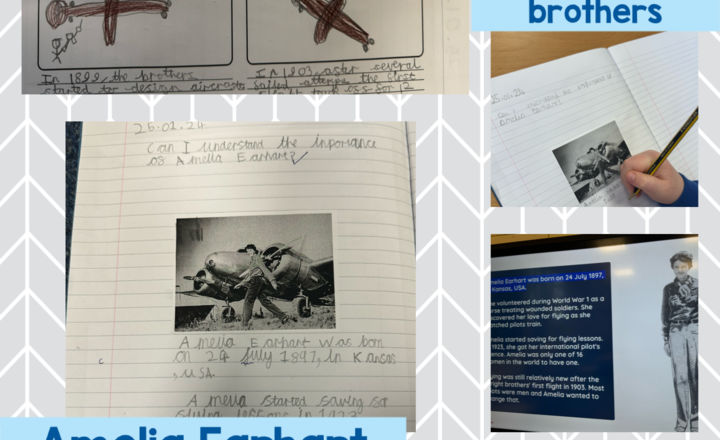
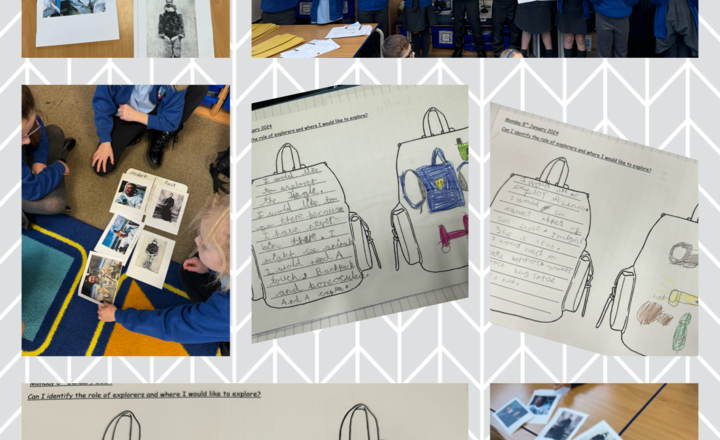




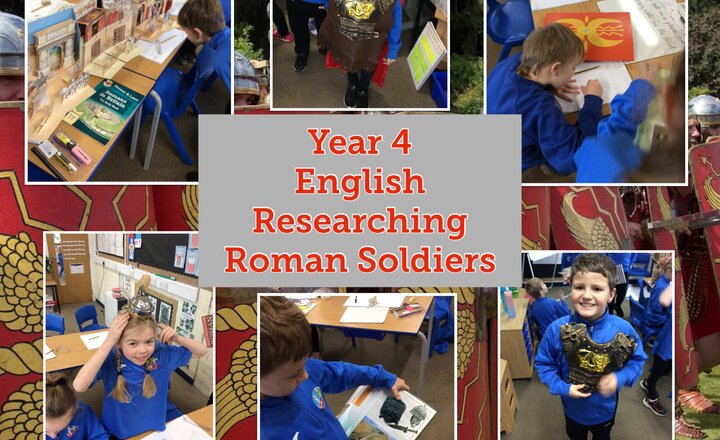
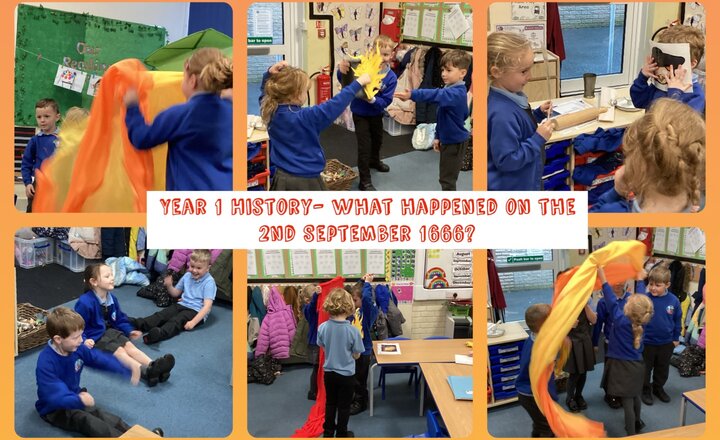

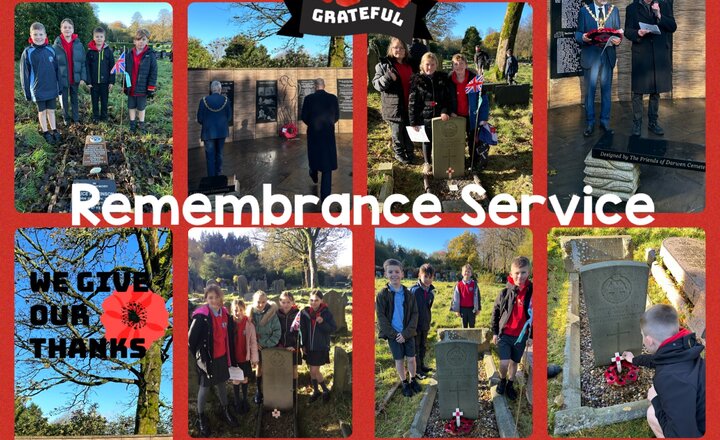
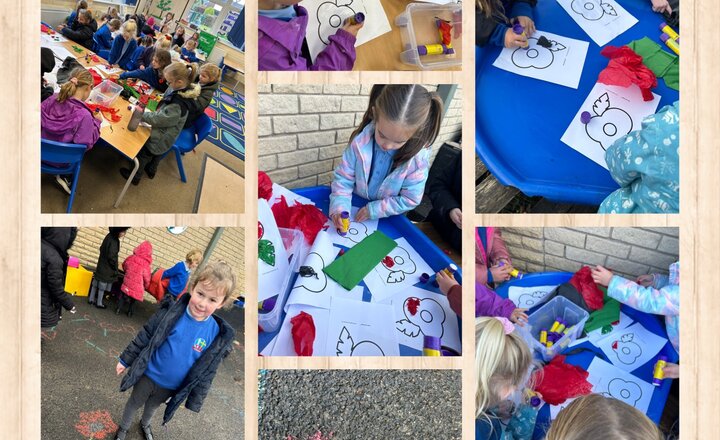
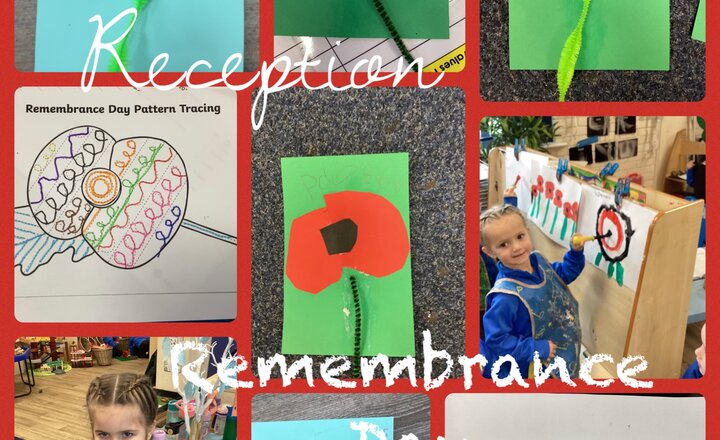
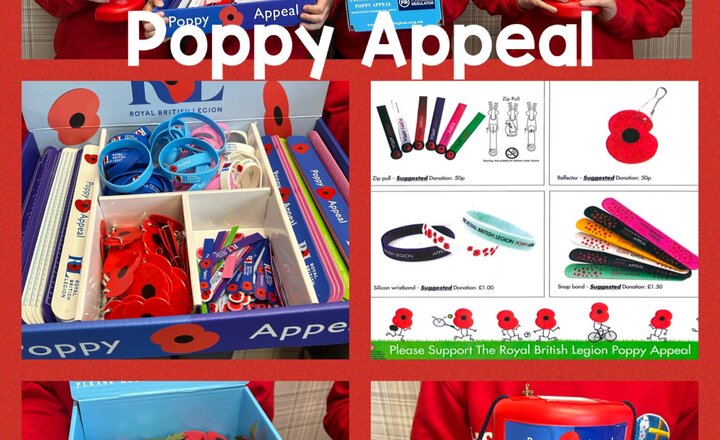
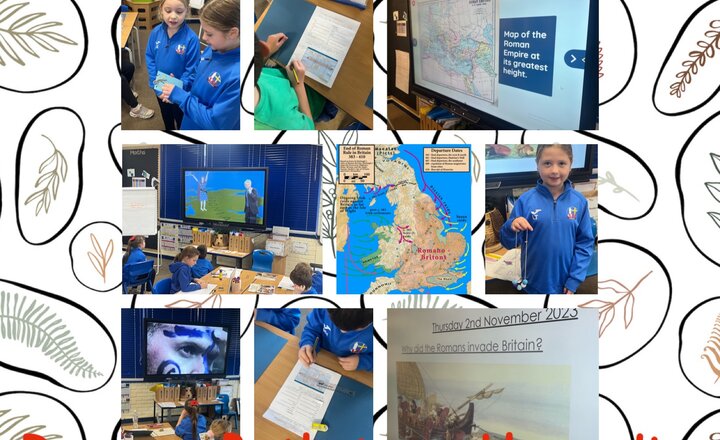
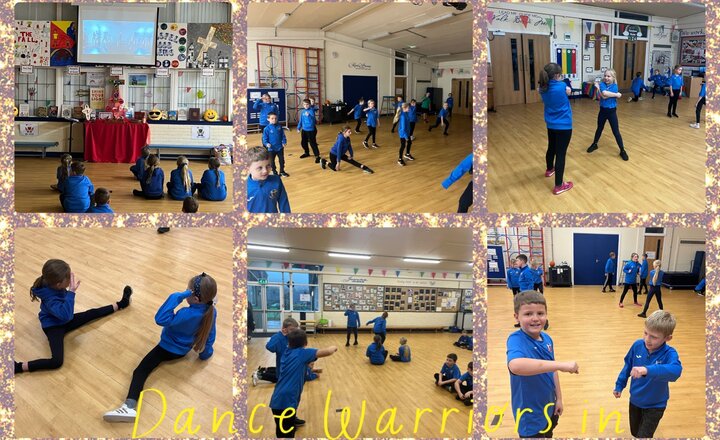
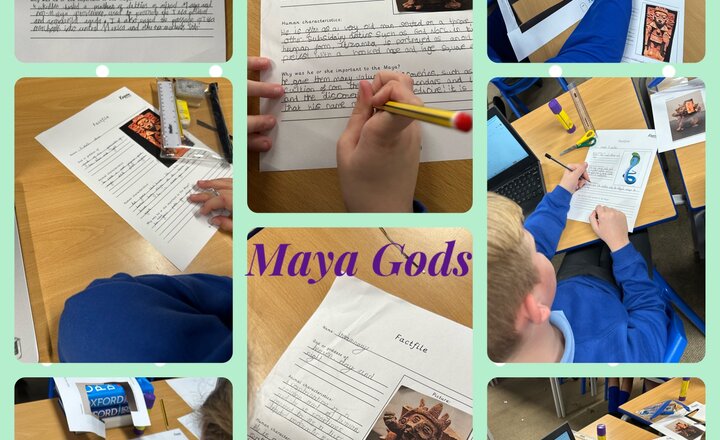
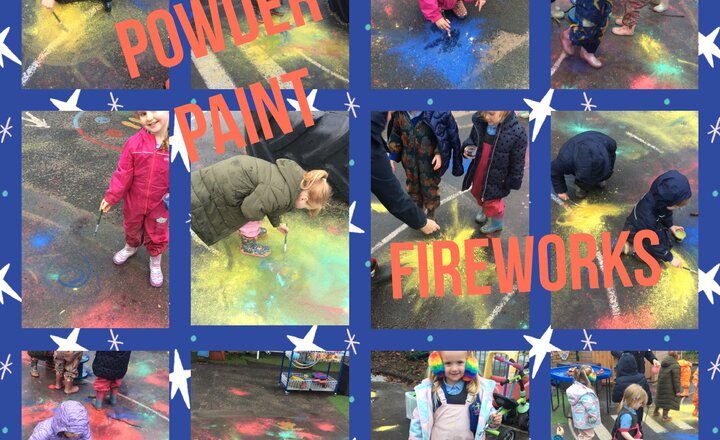
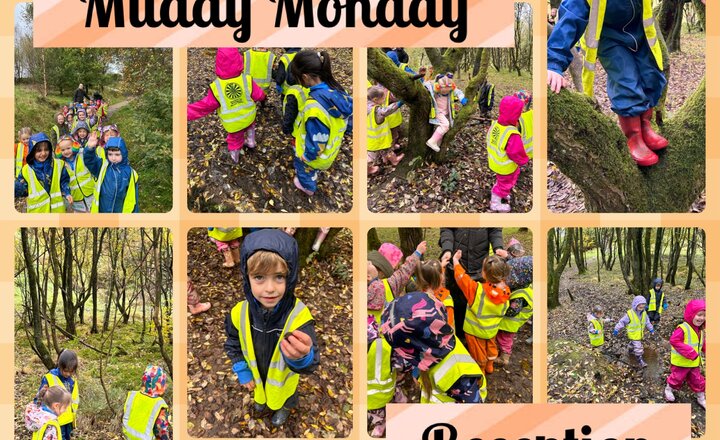
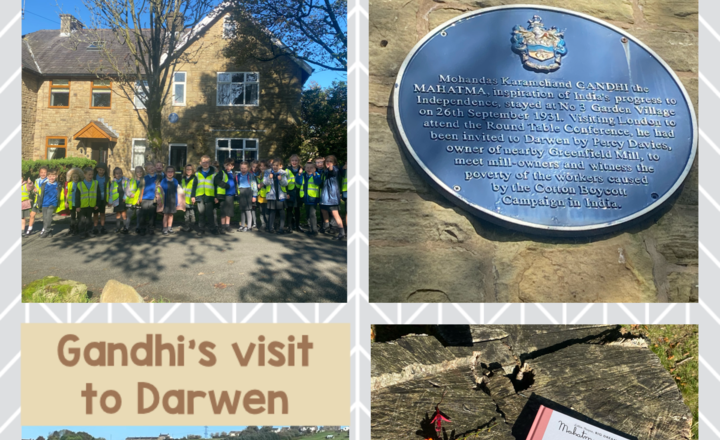
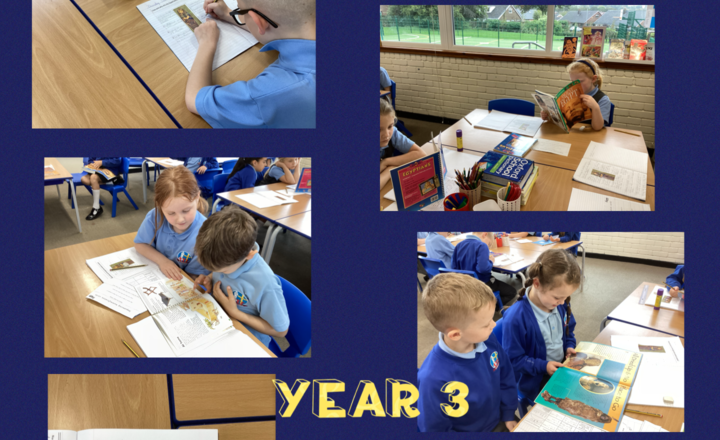
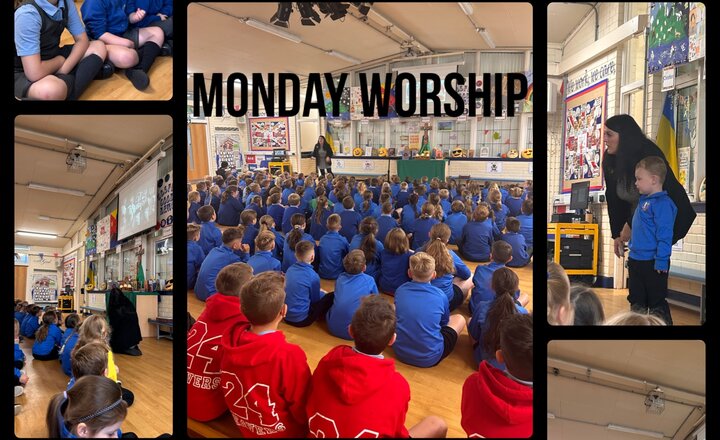
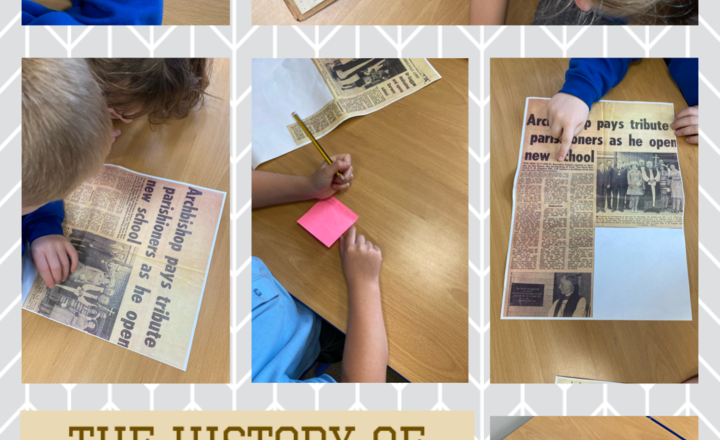
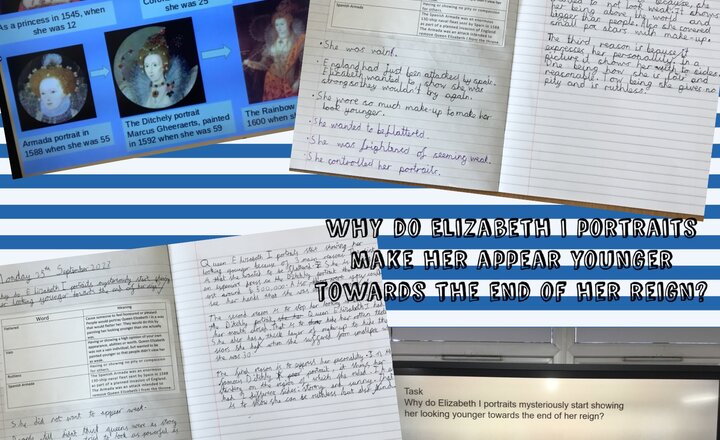
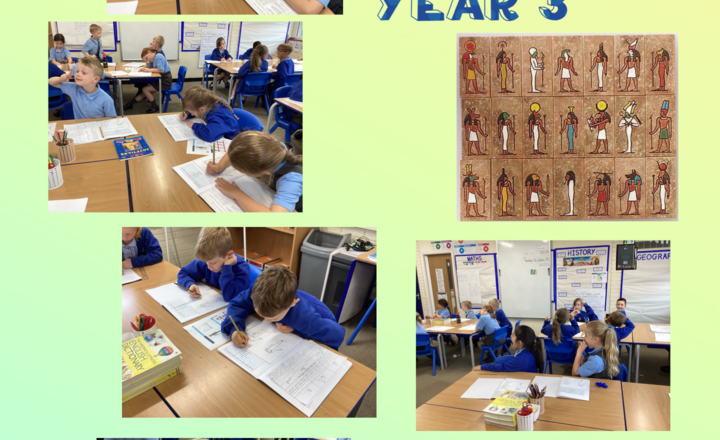
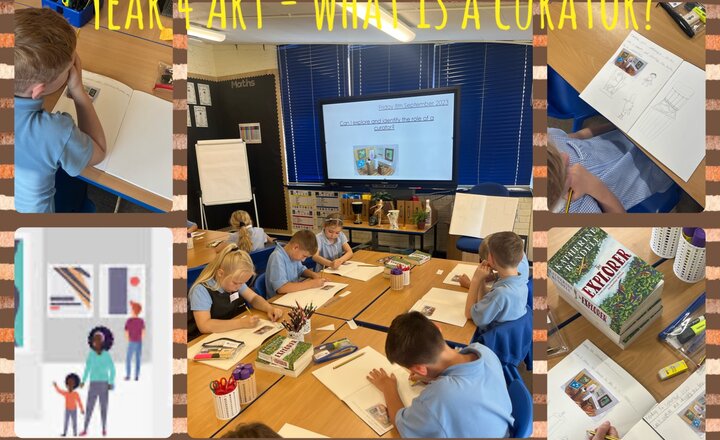
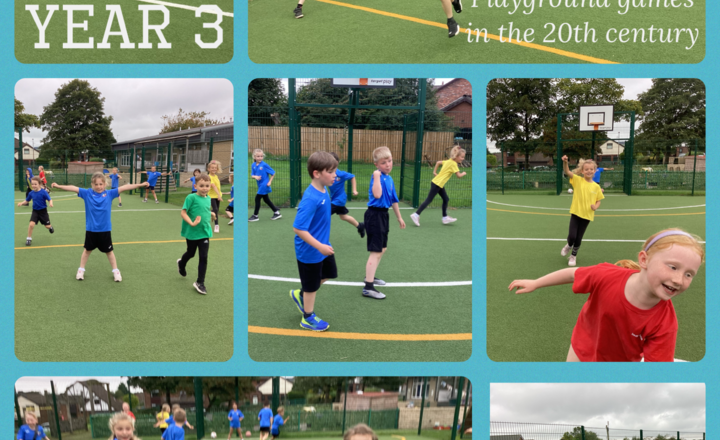
.png)
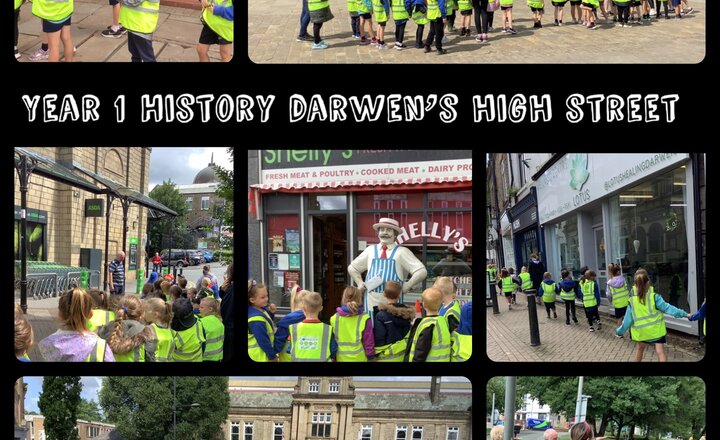
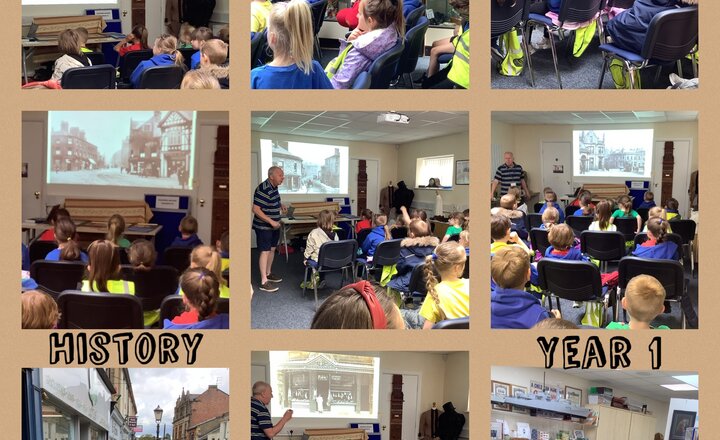
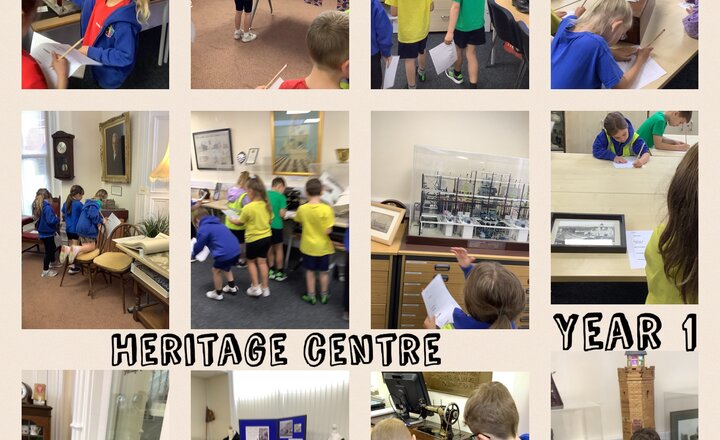
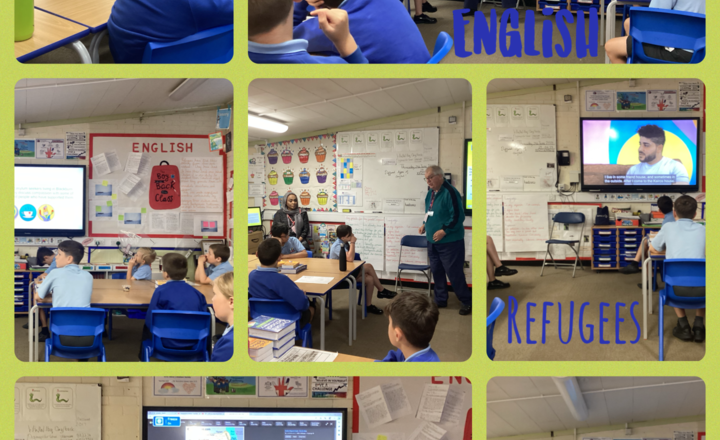
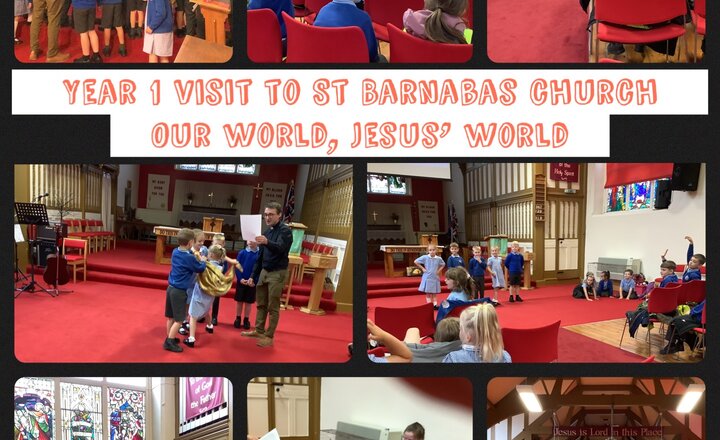
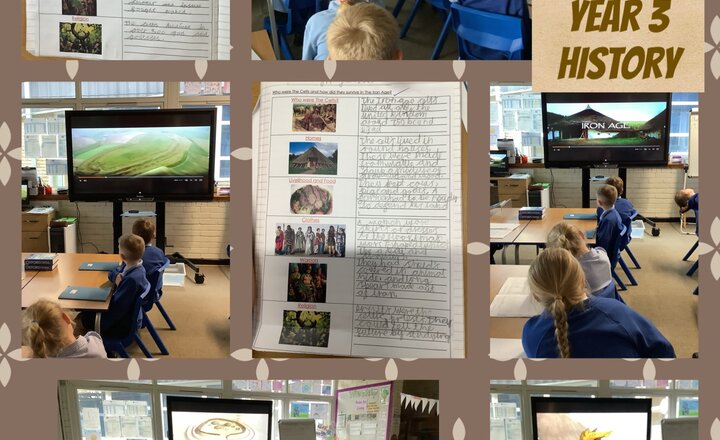
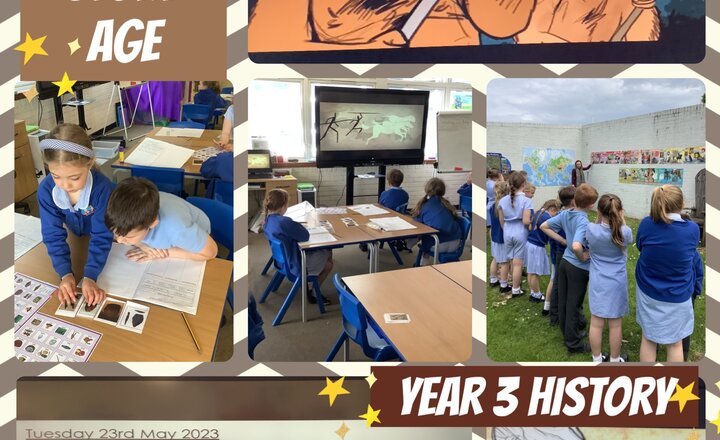
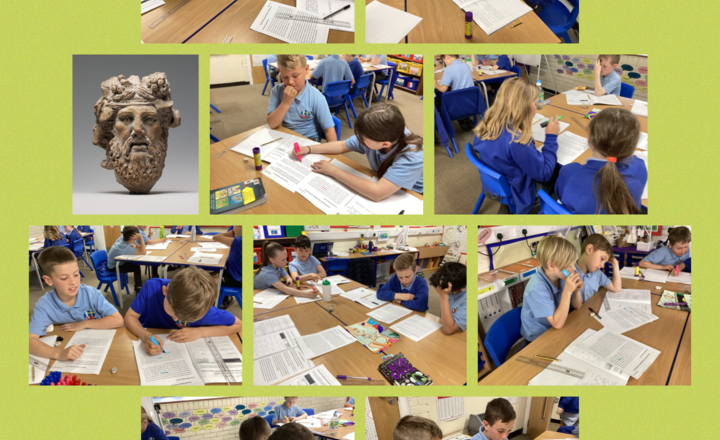
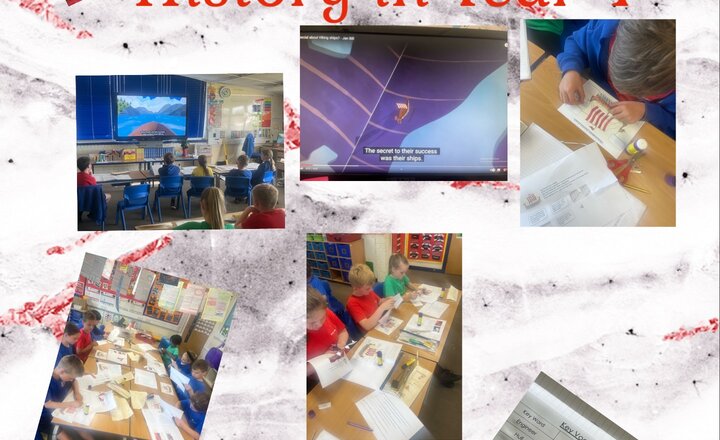
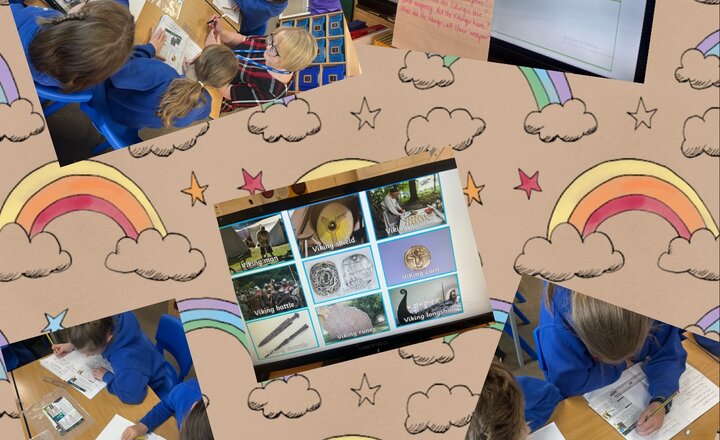
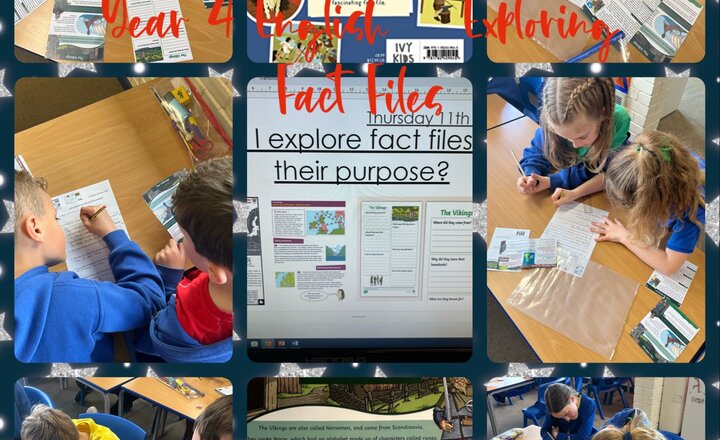
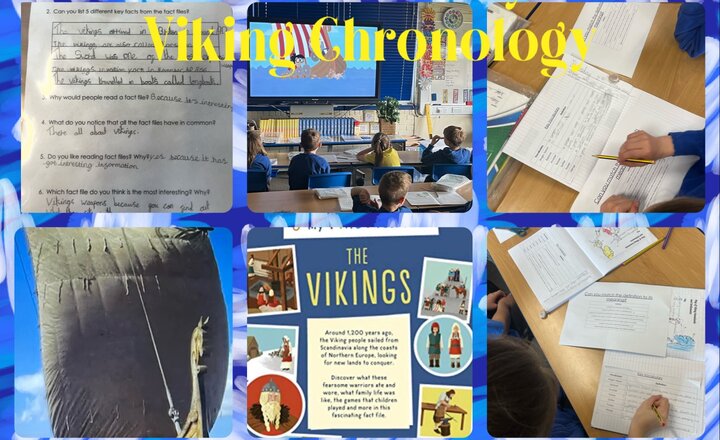
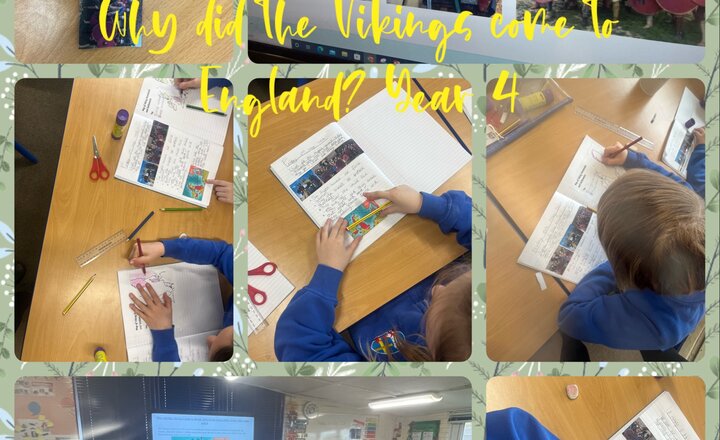
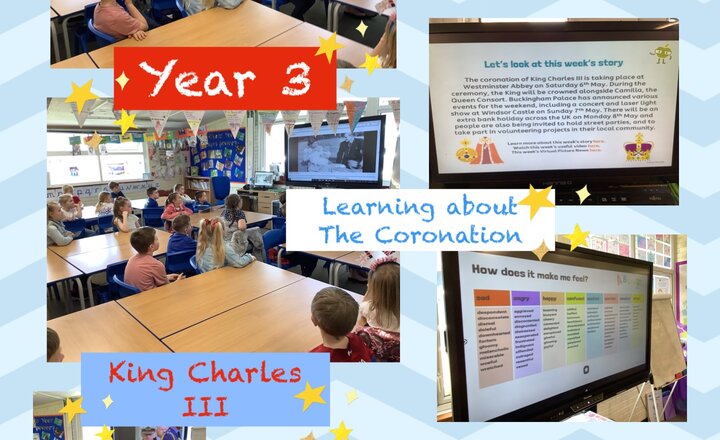
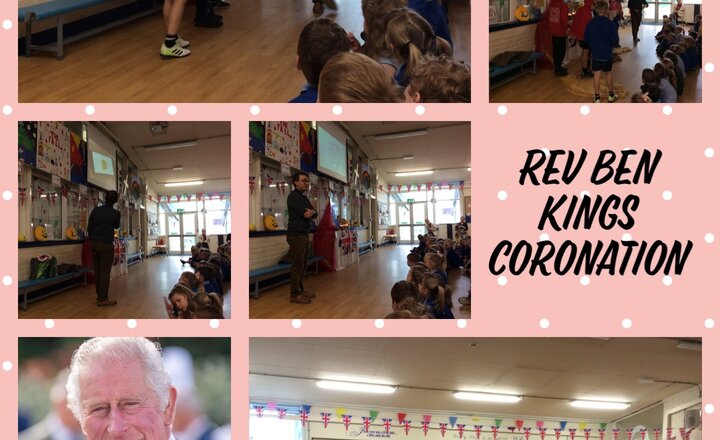
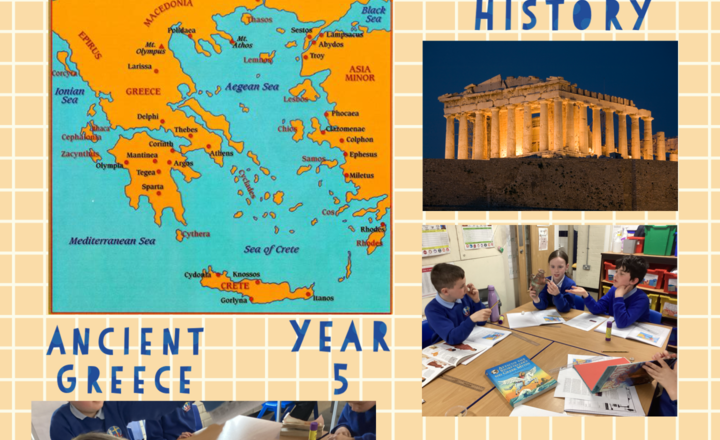
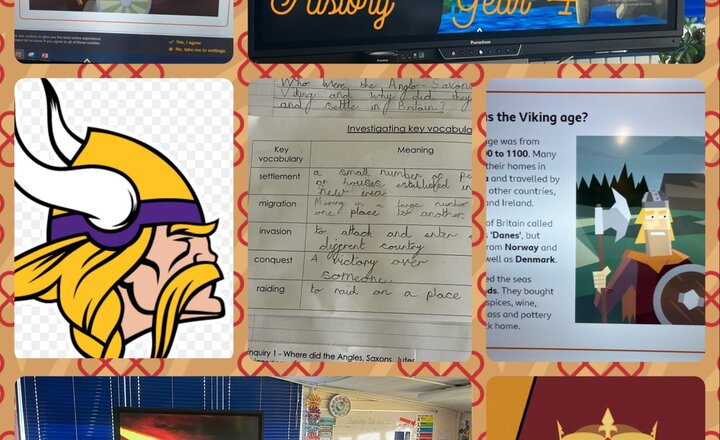
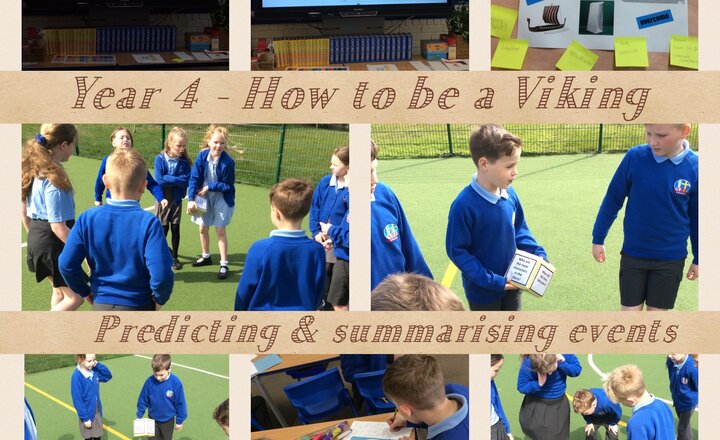
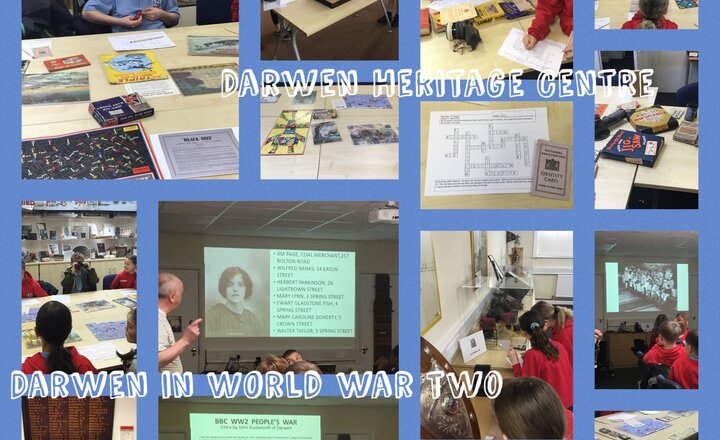
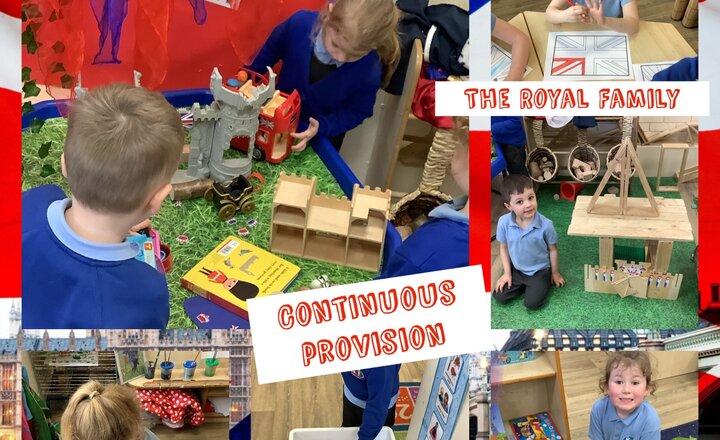
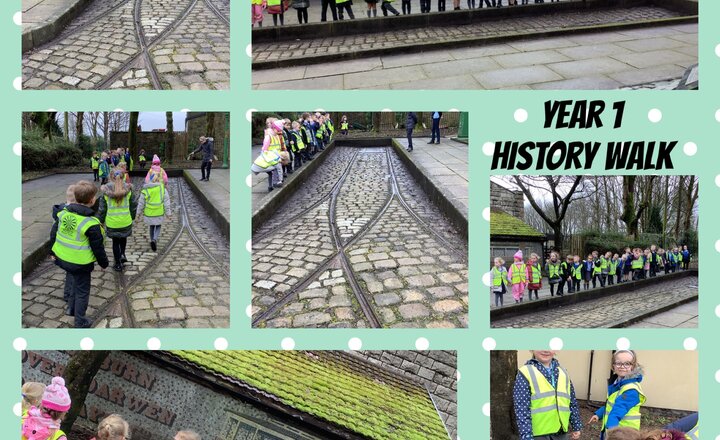
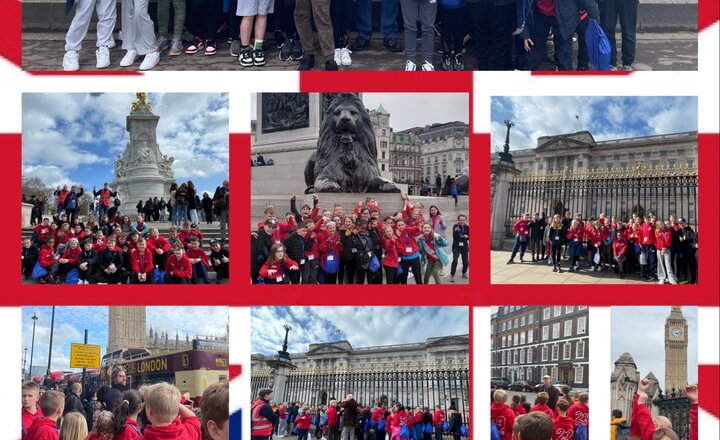
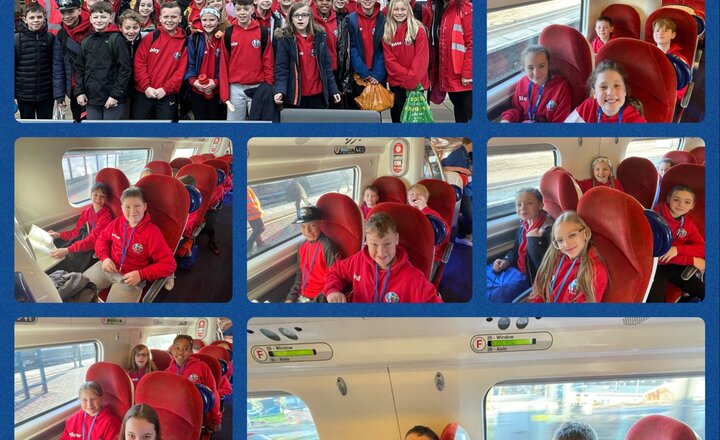
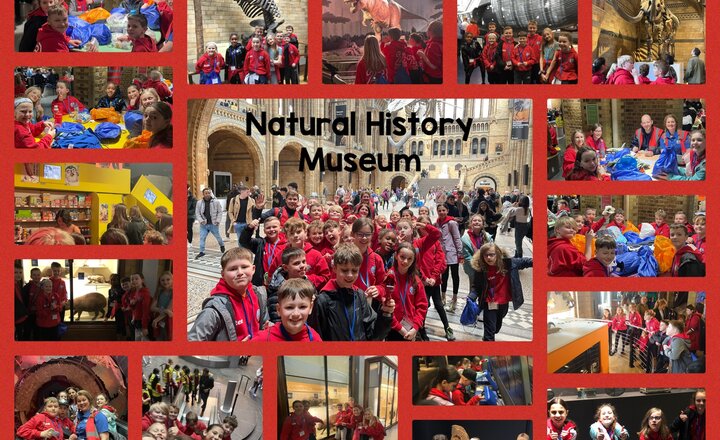
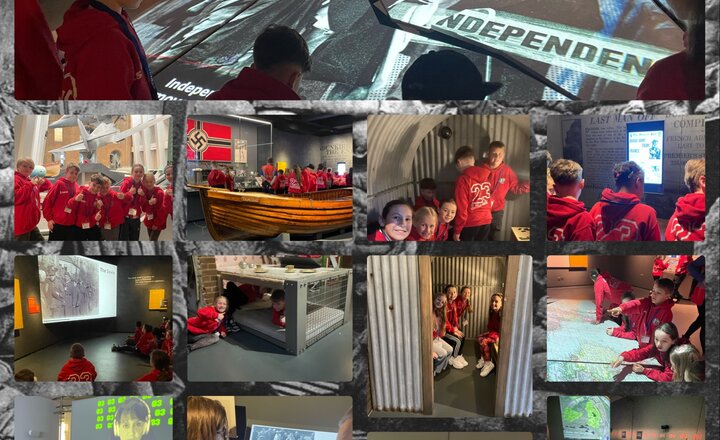
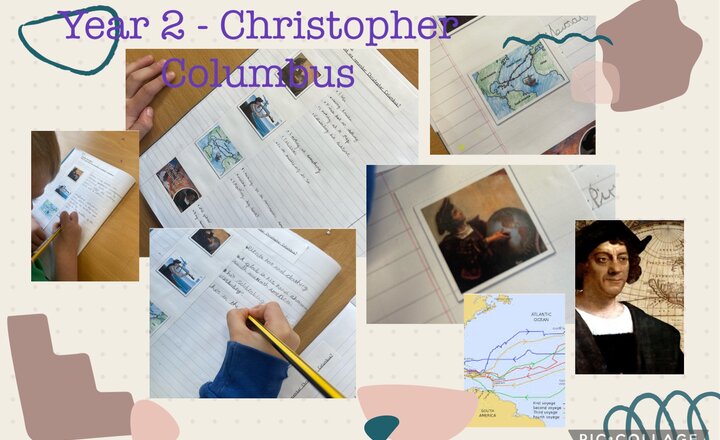
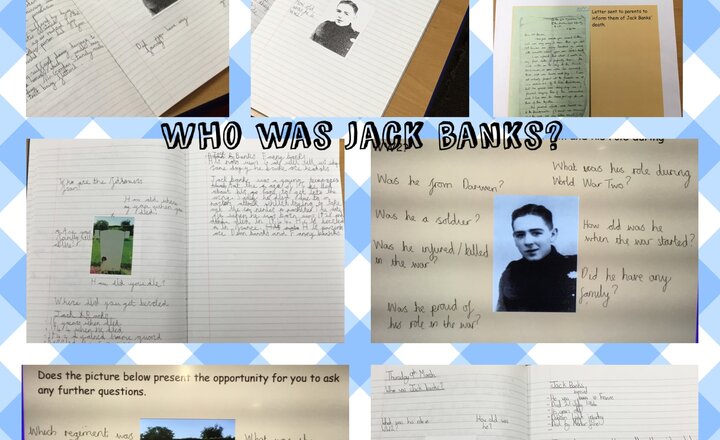
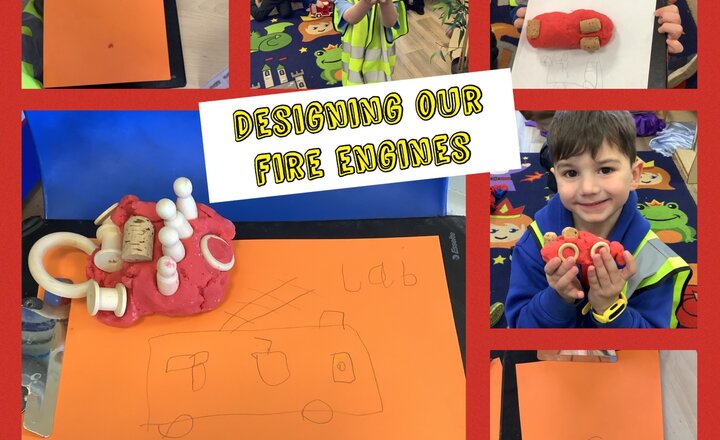
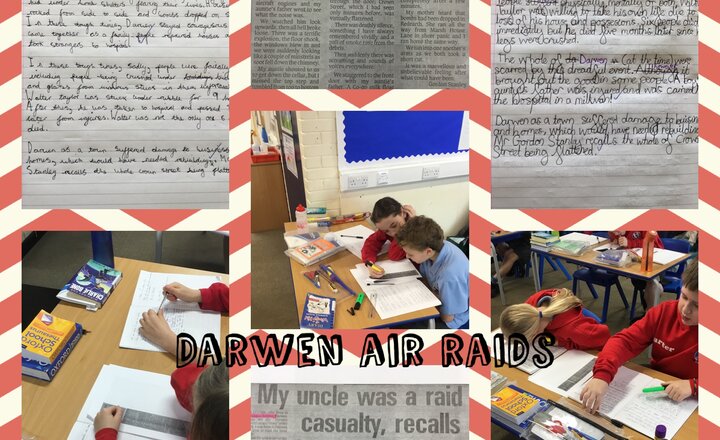
.jpg)
